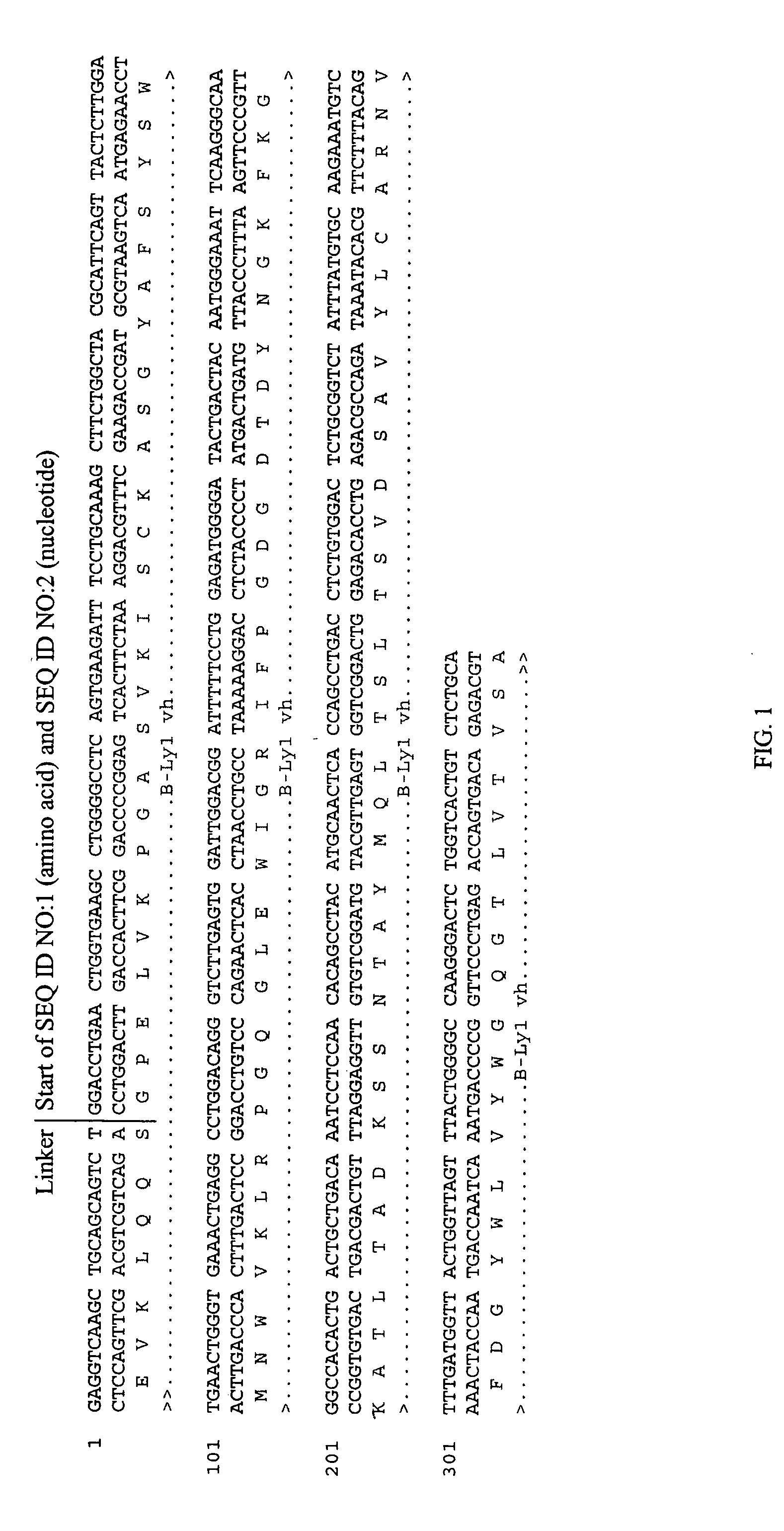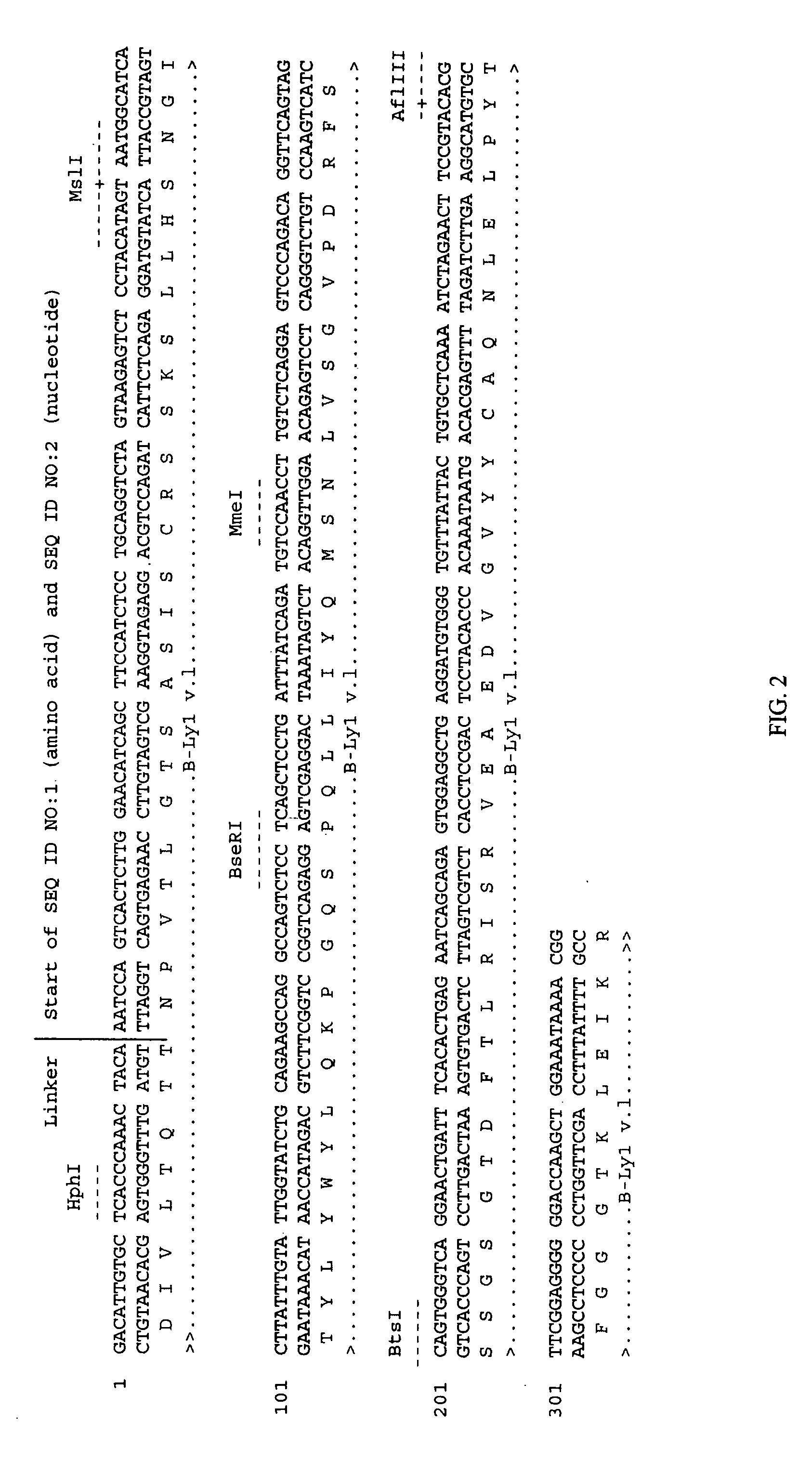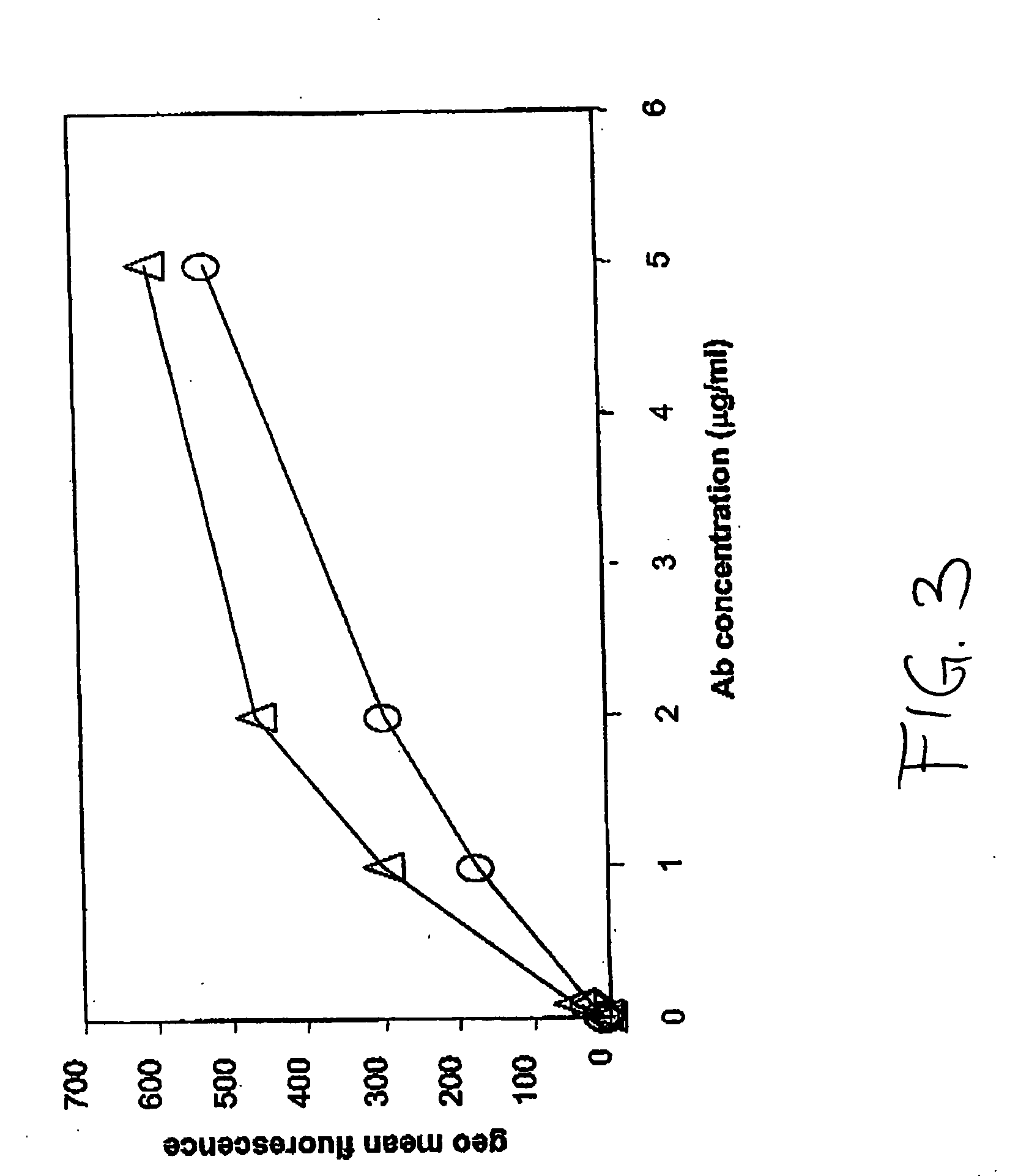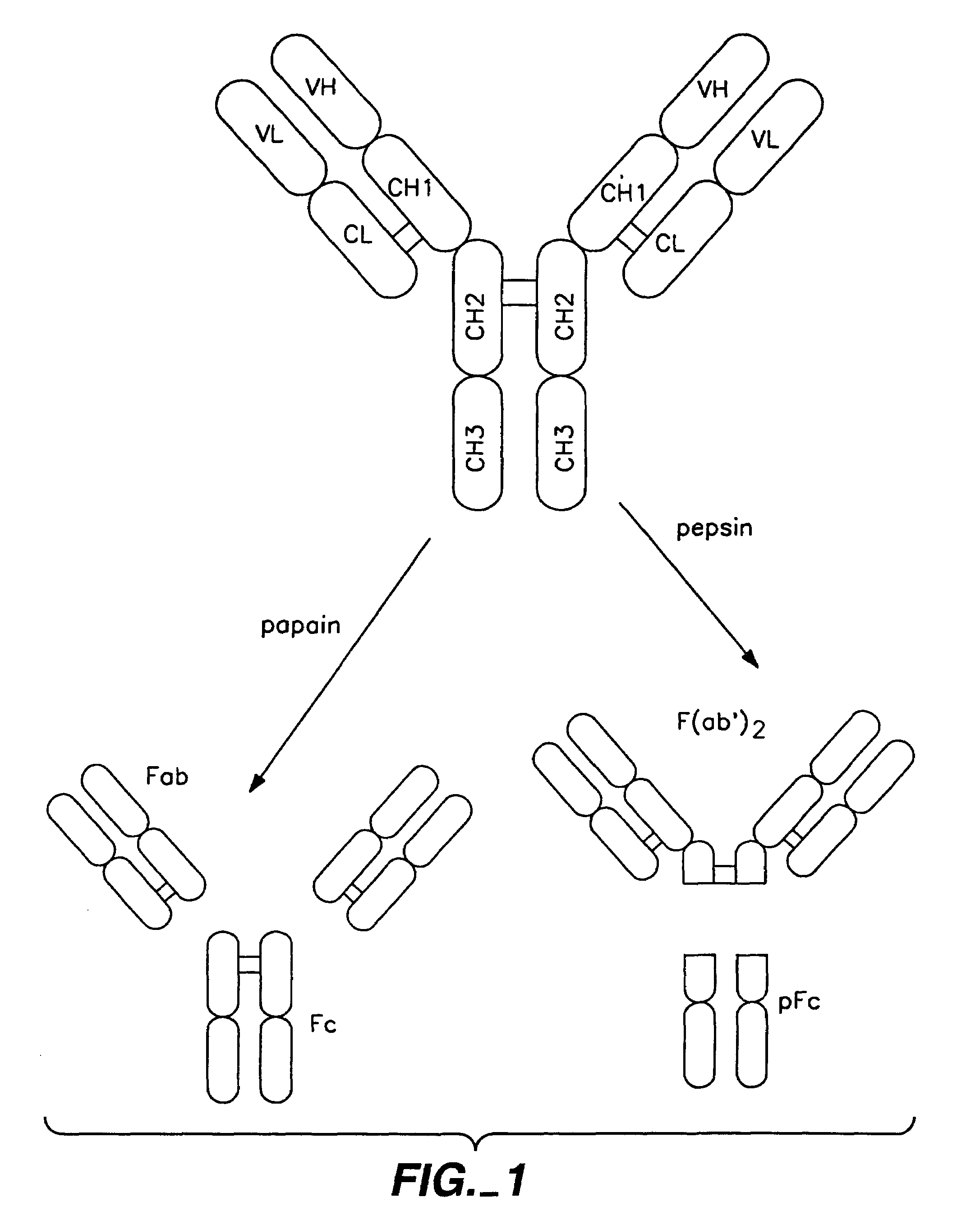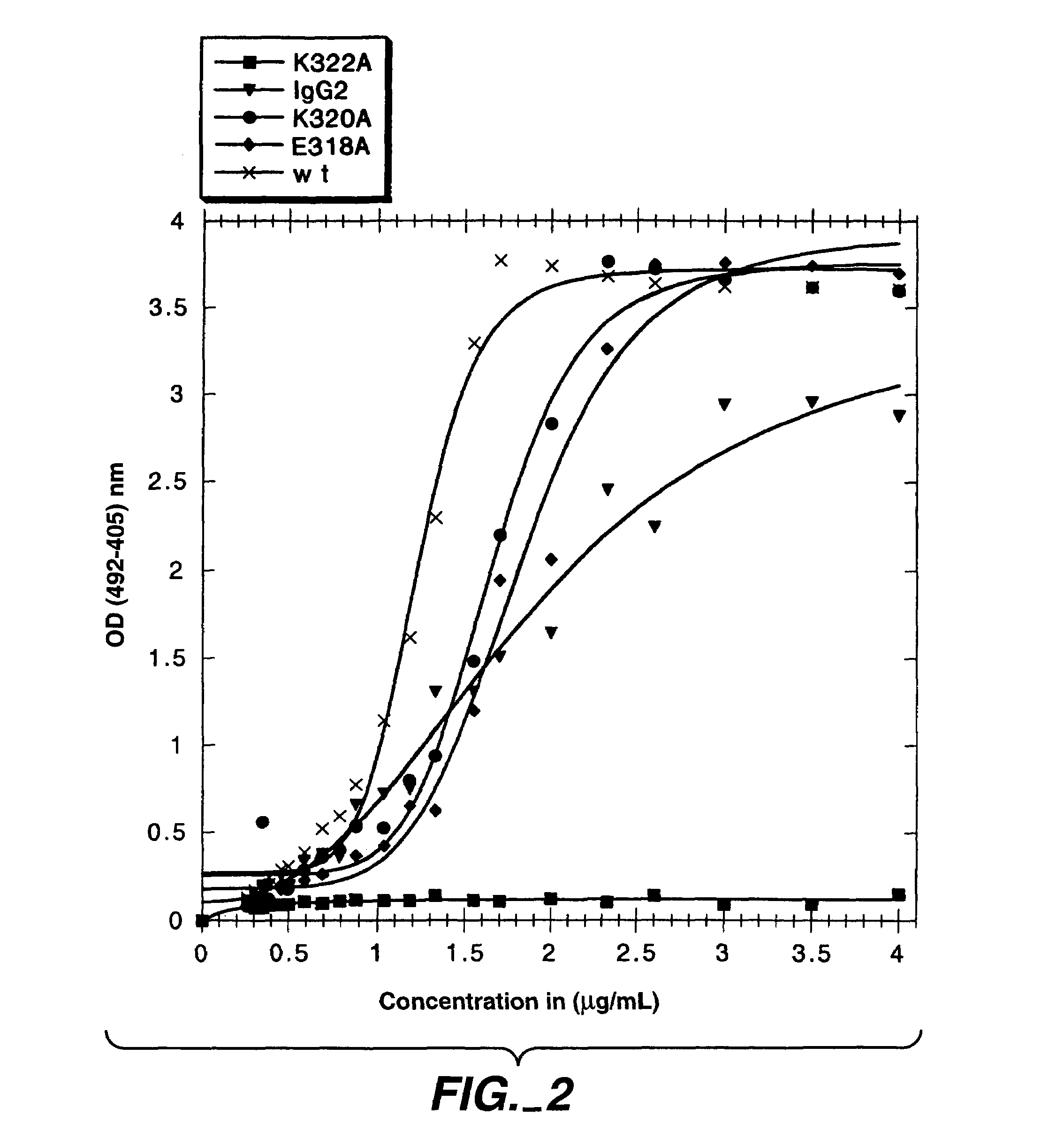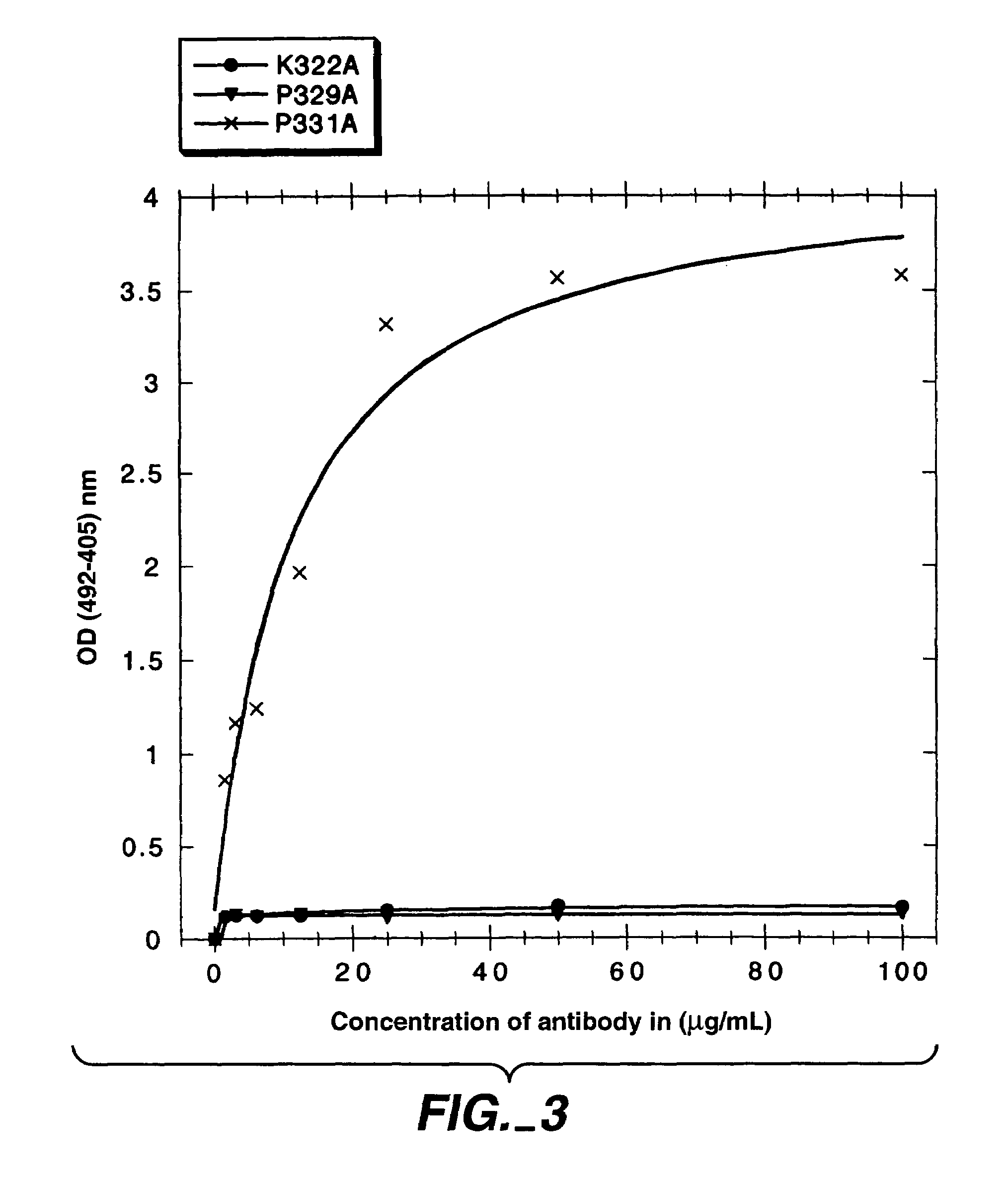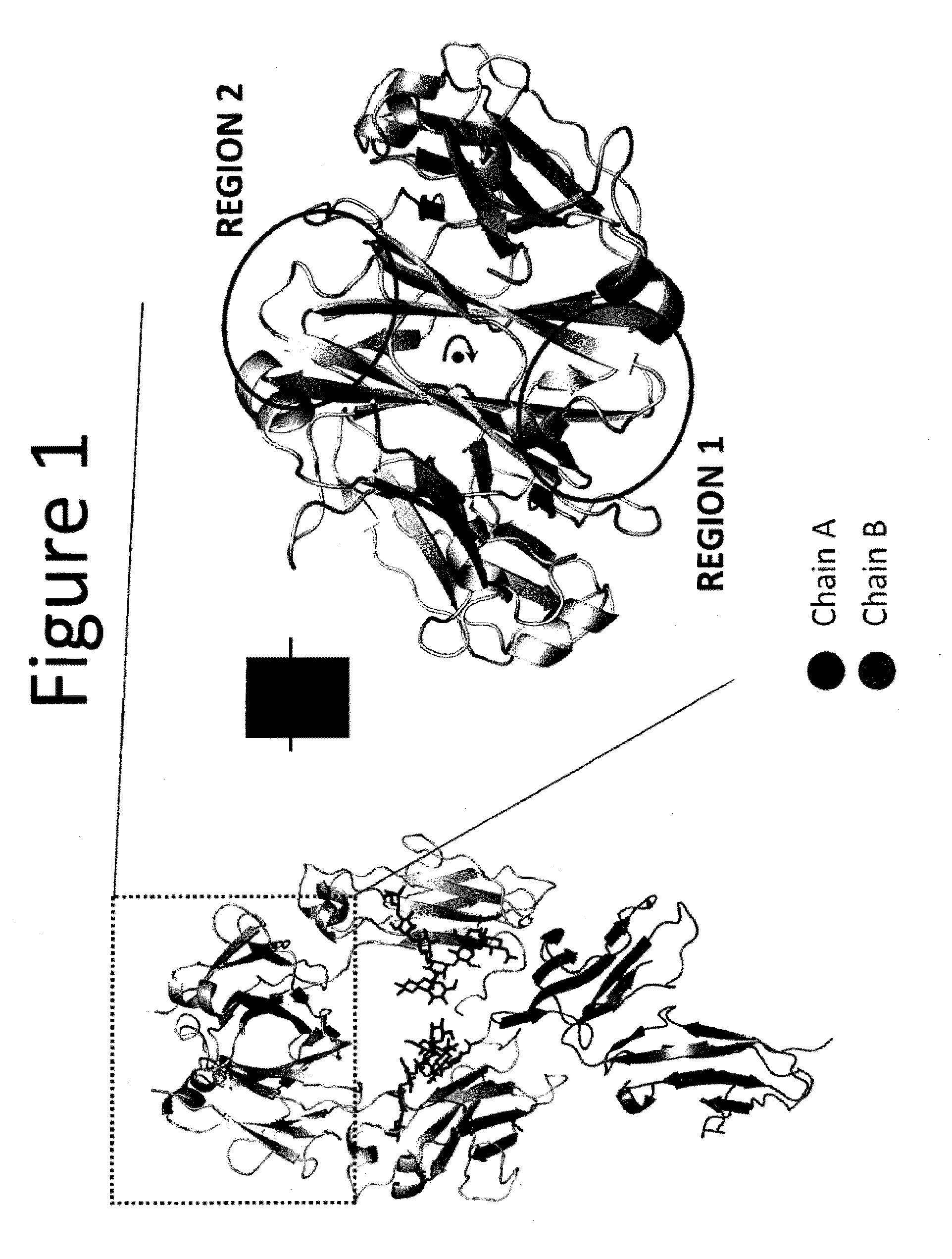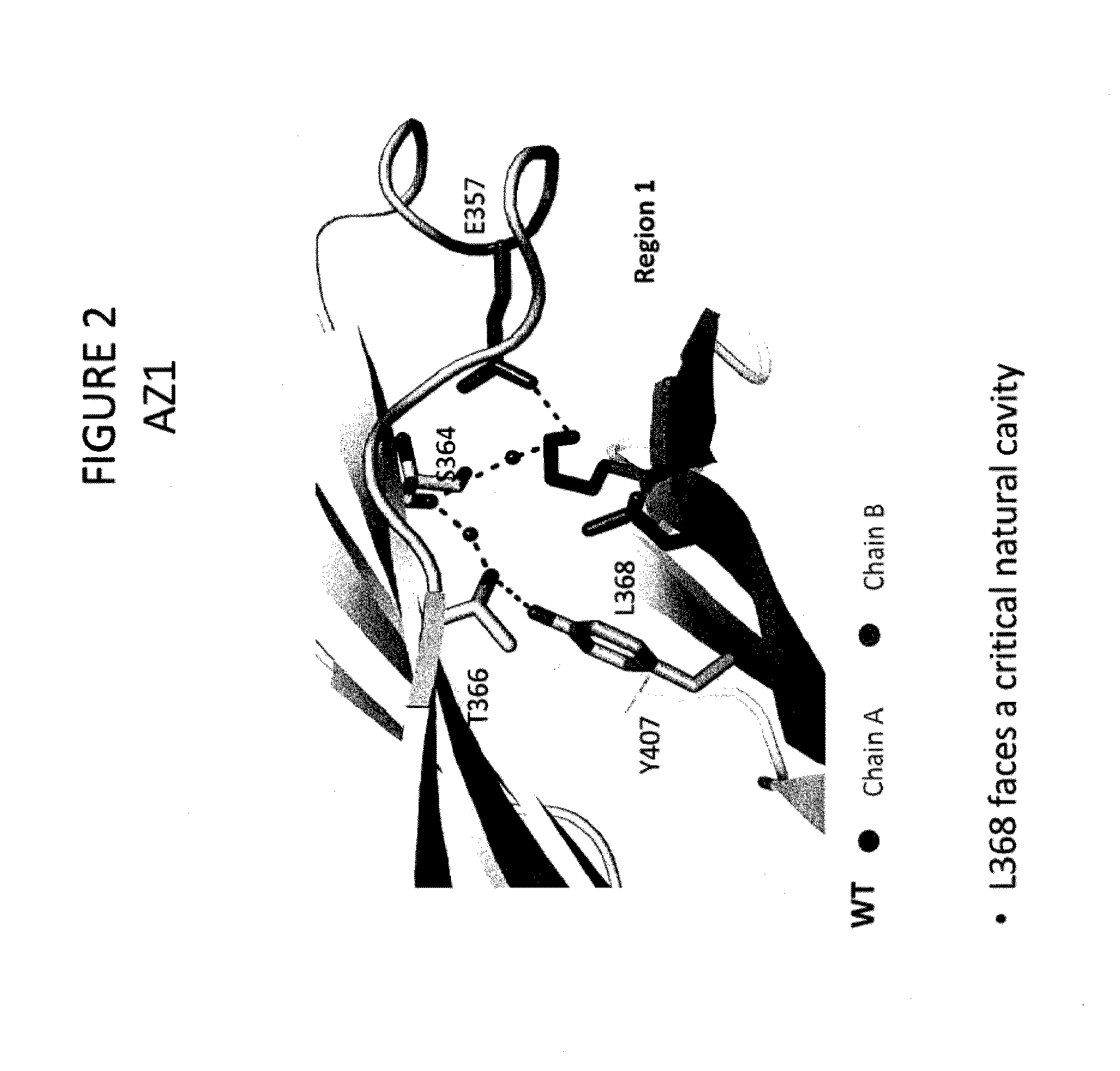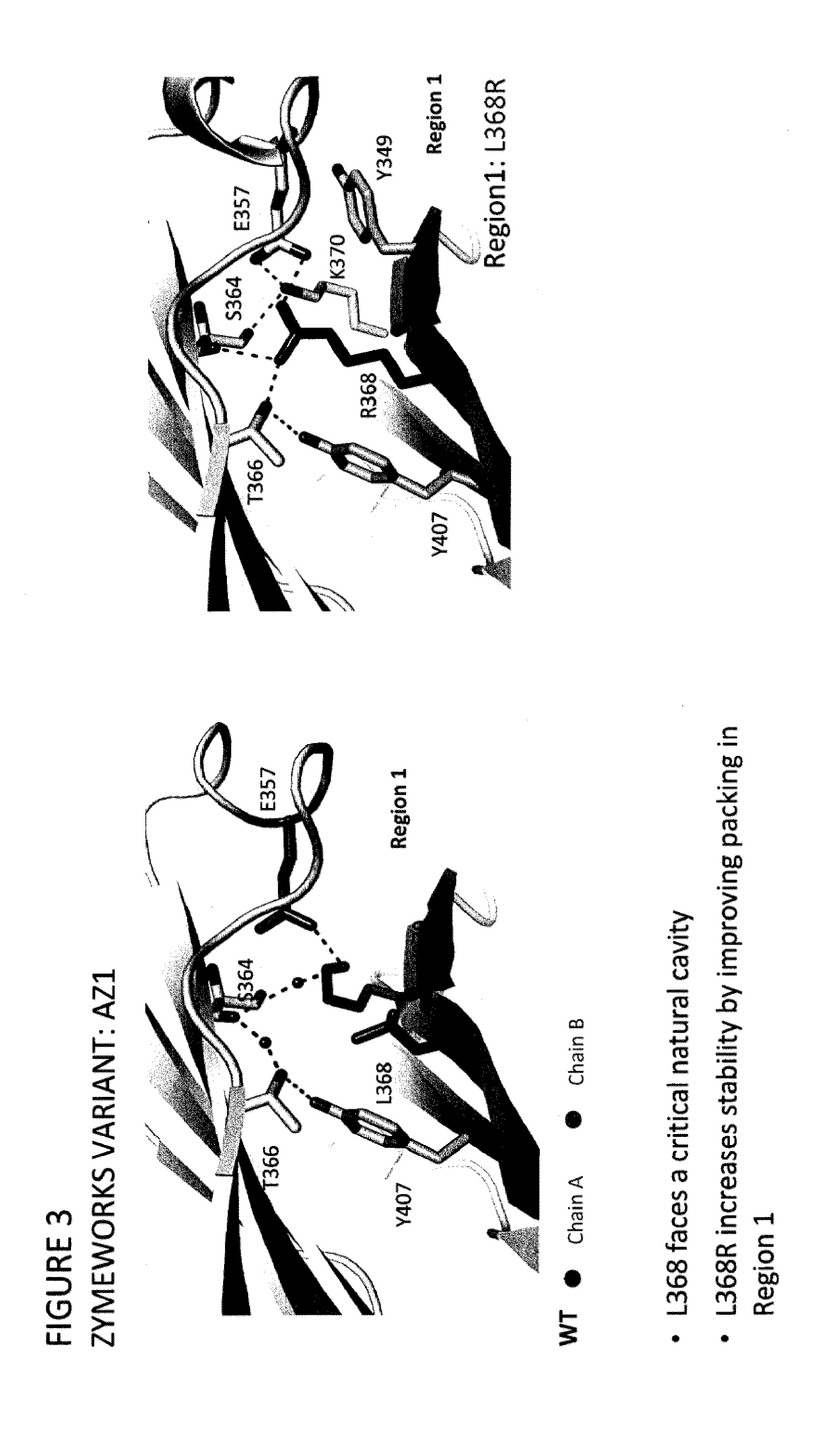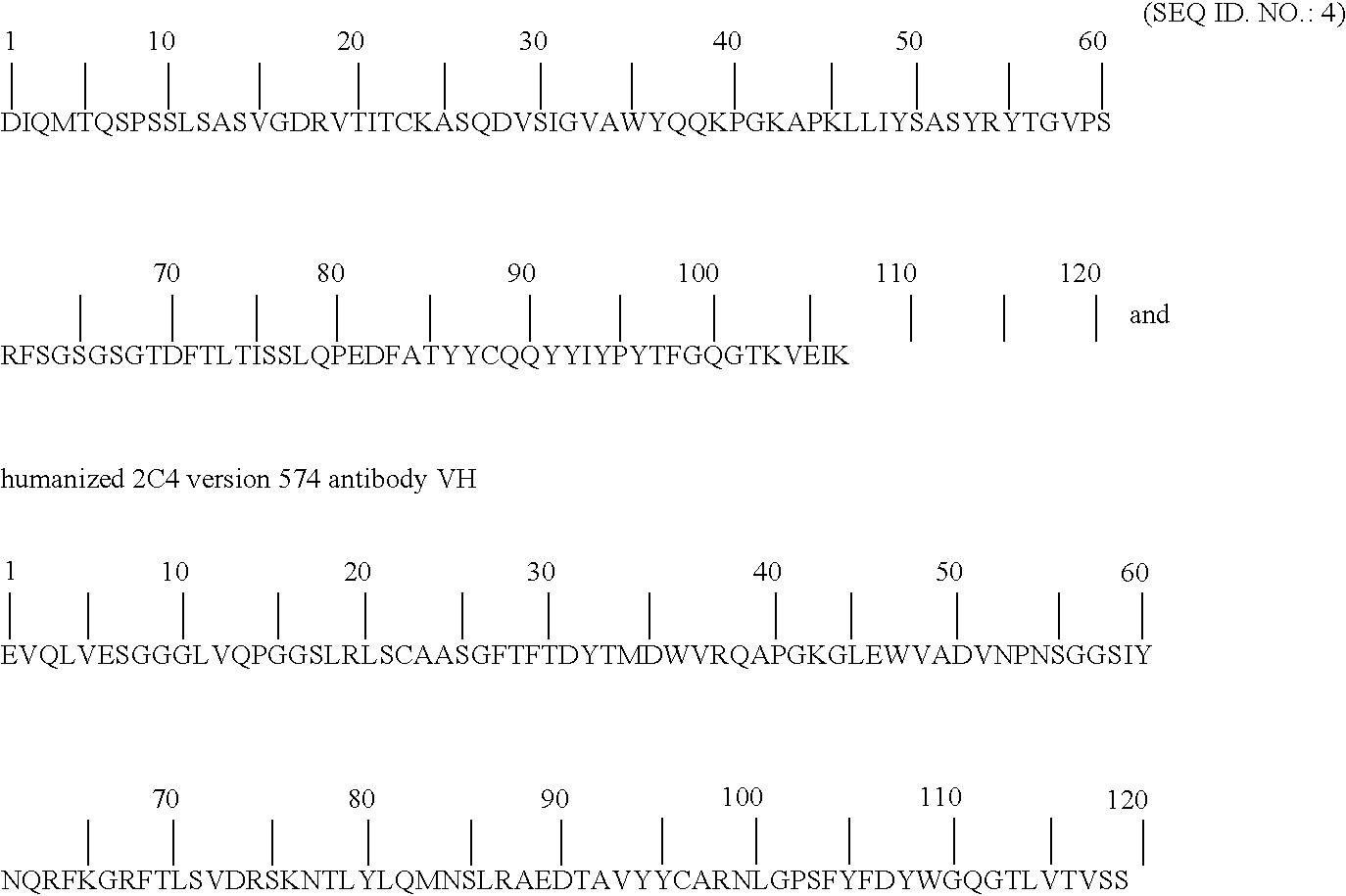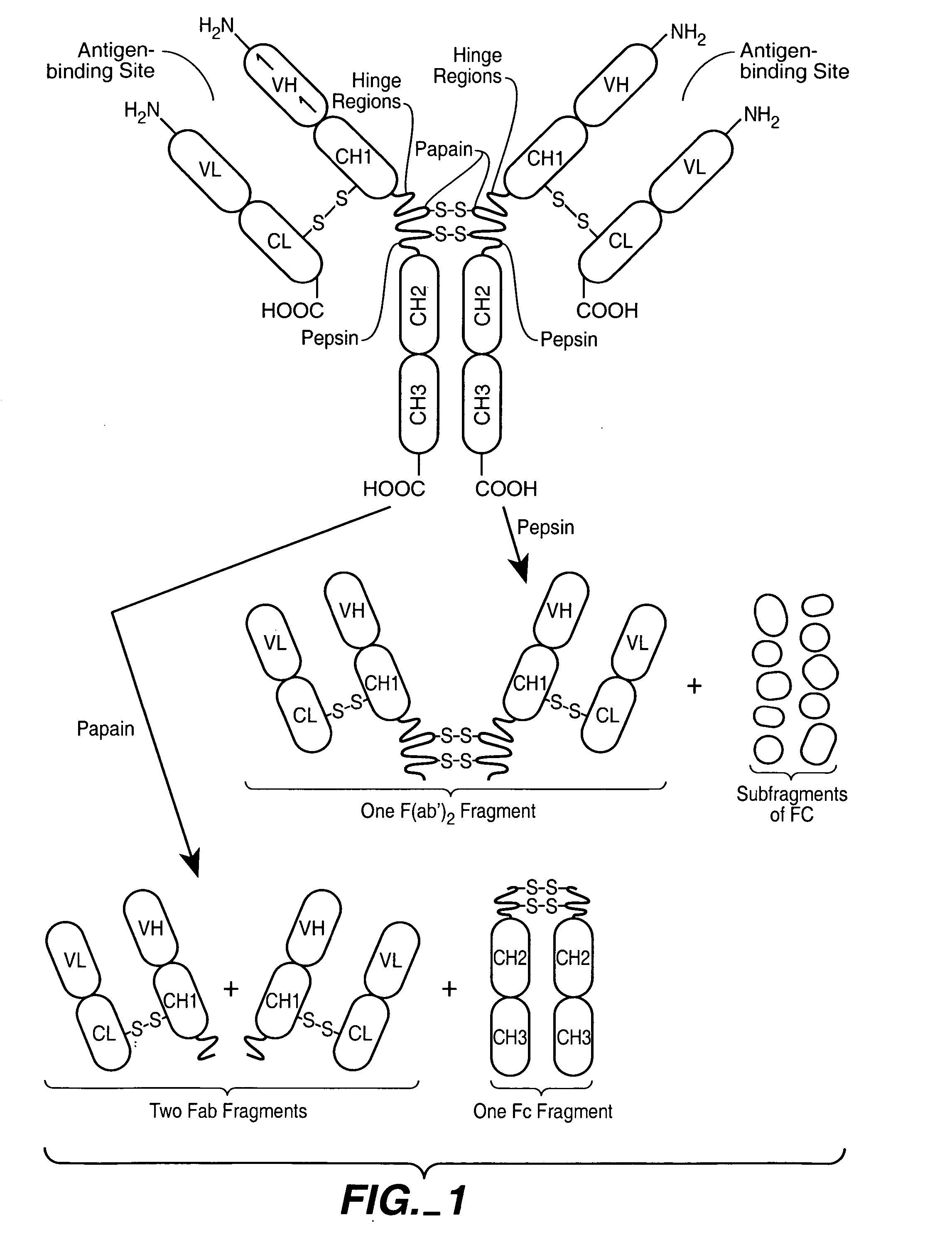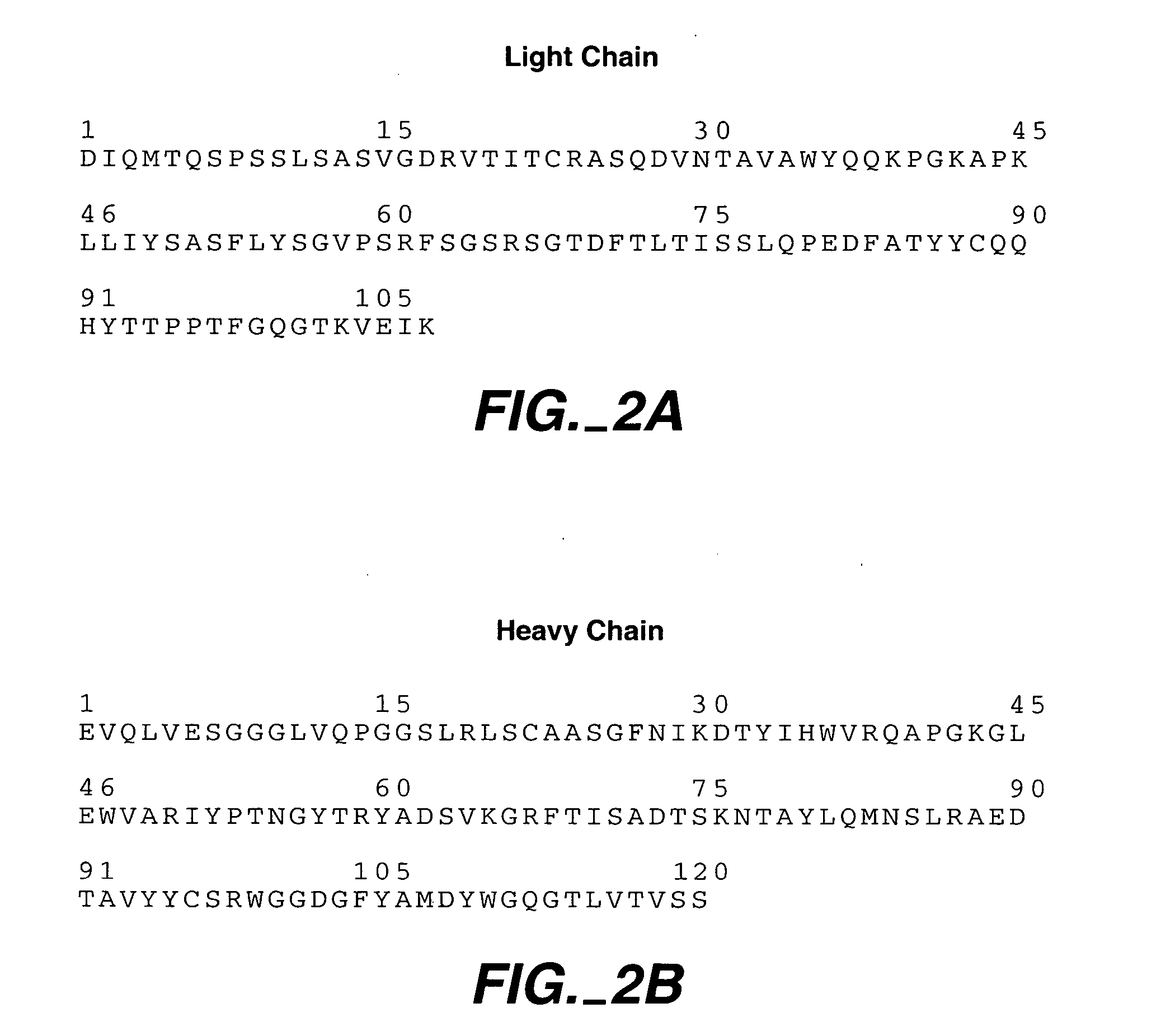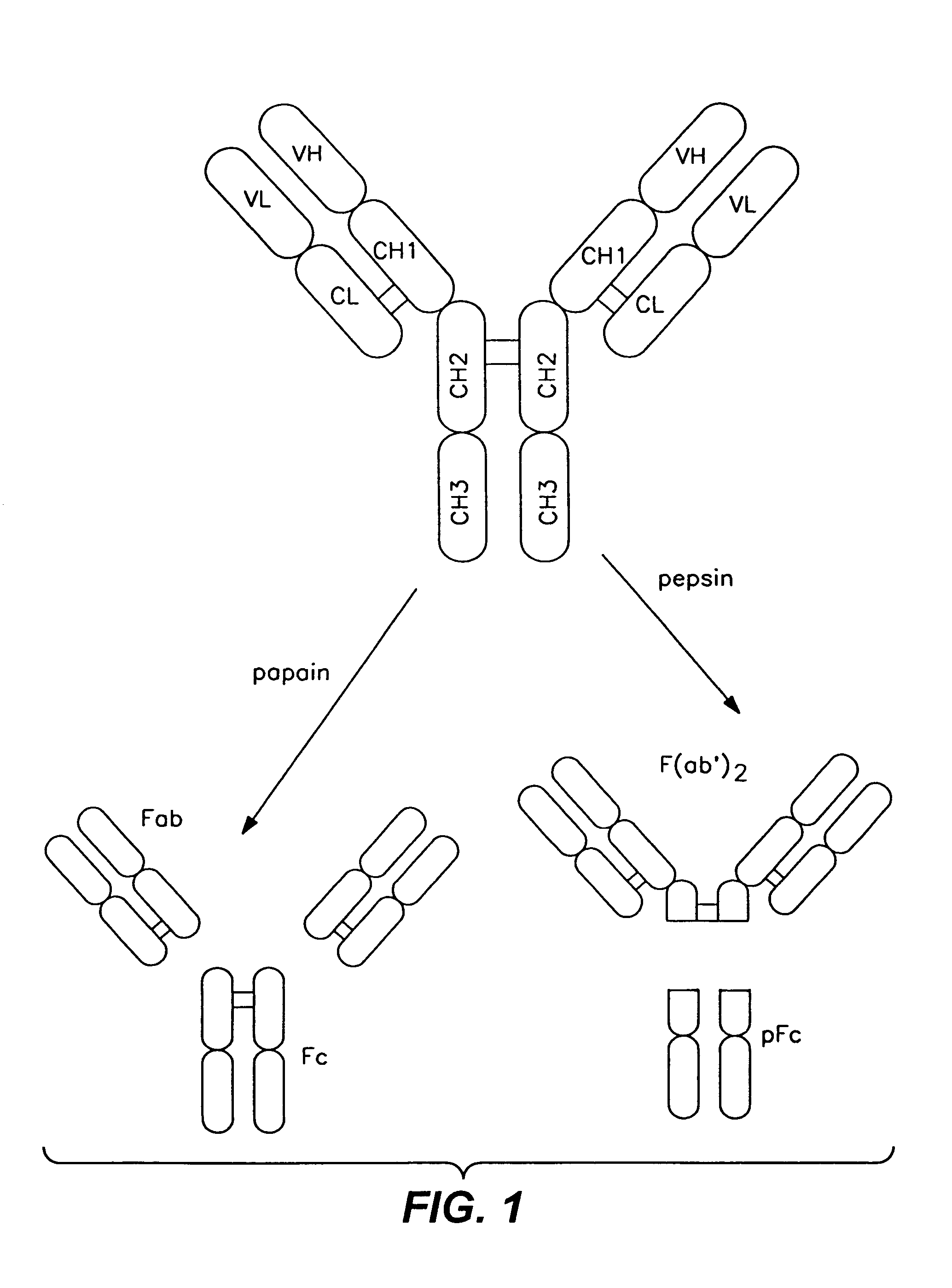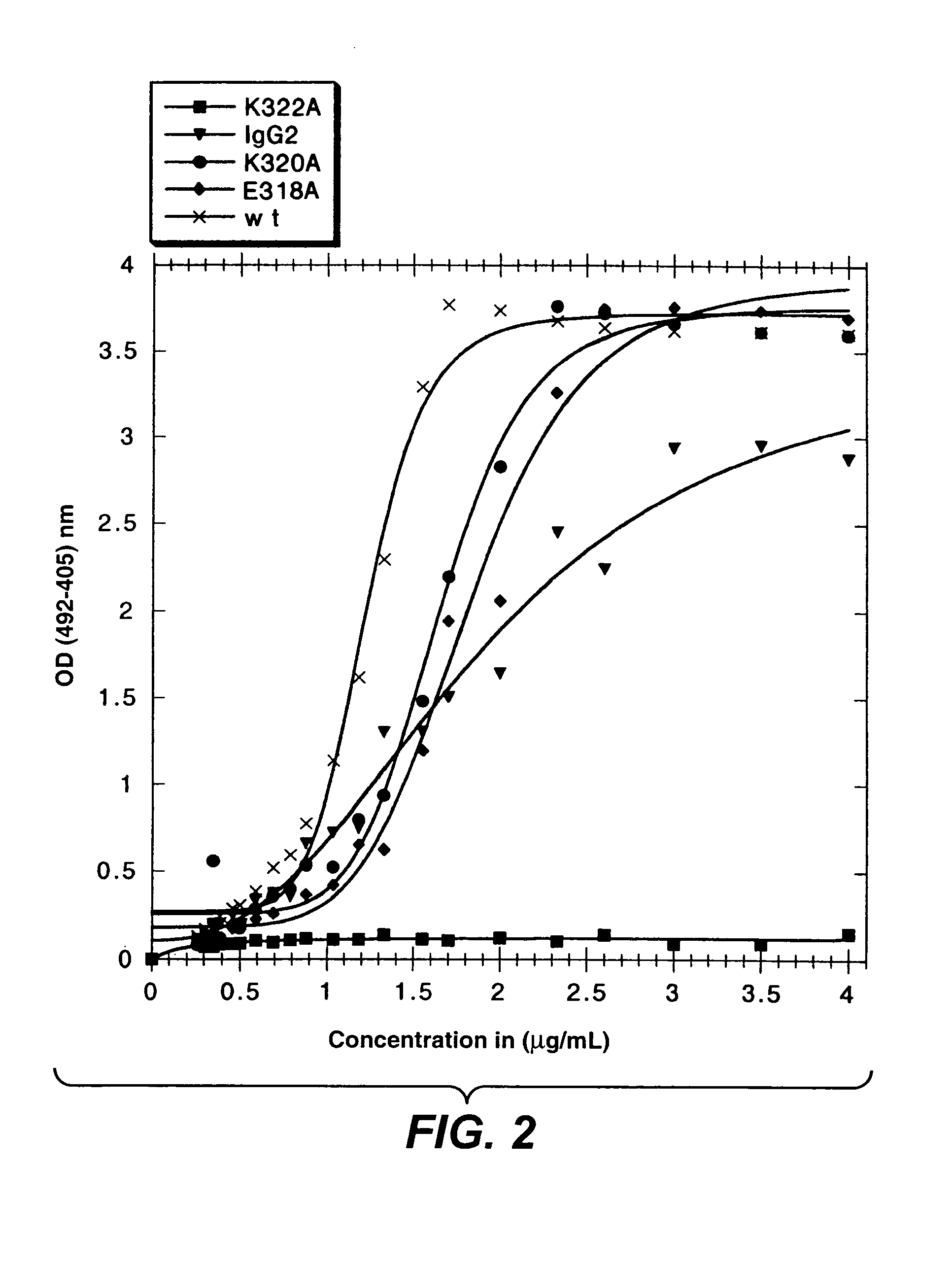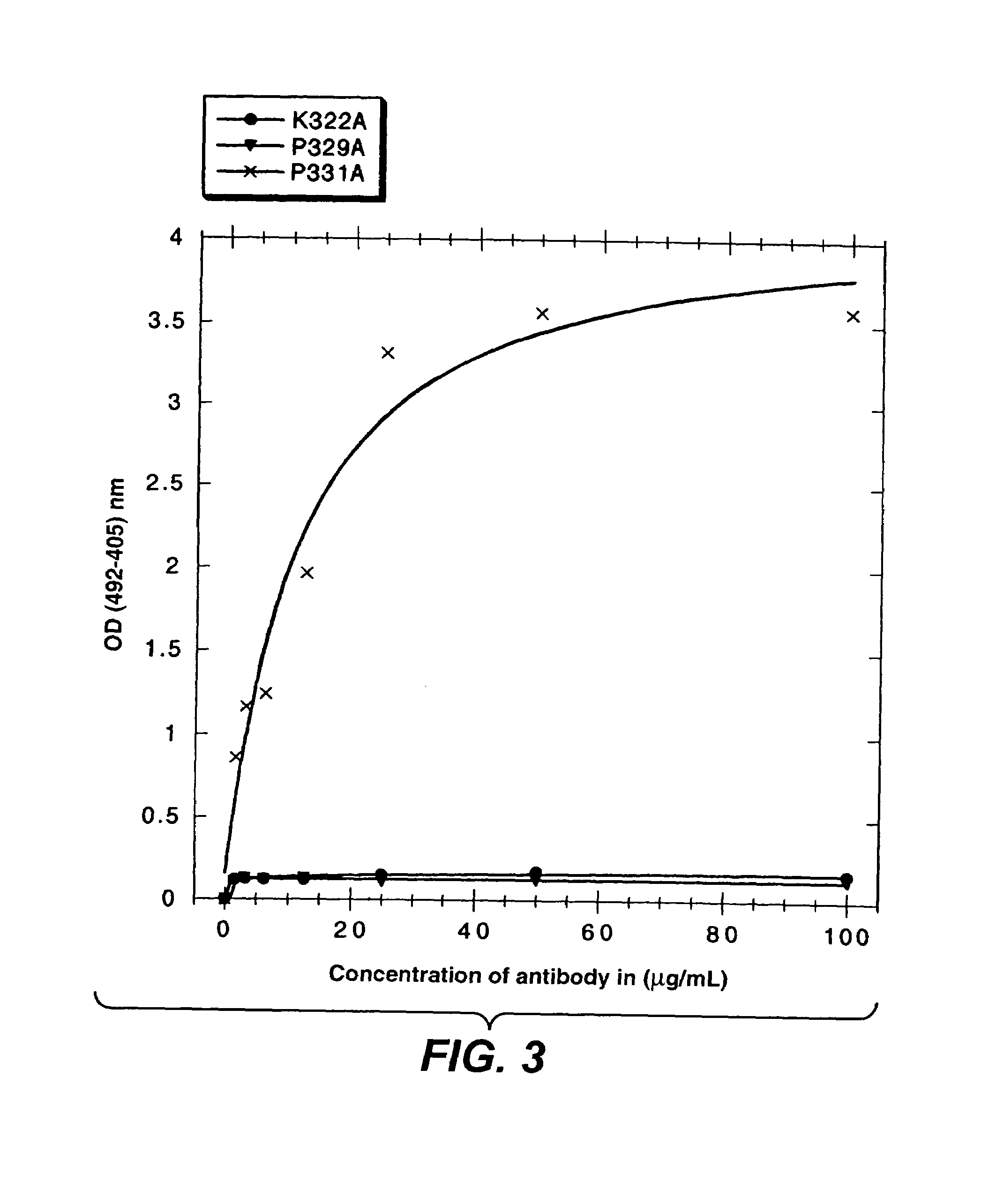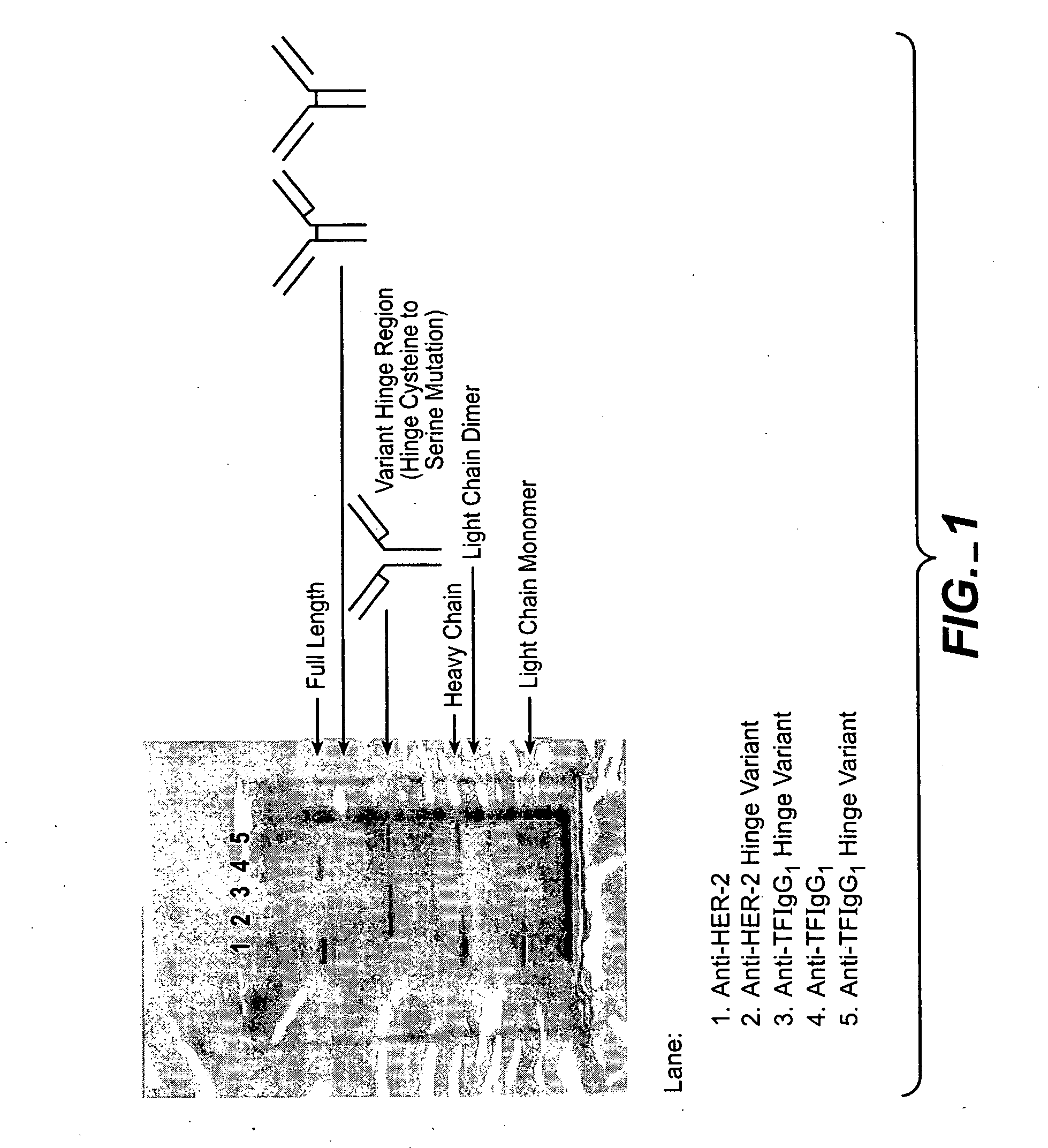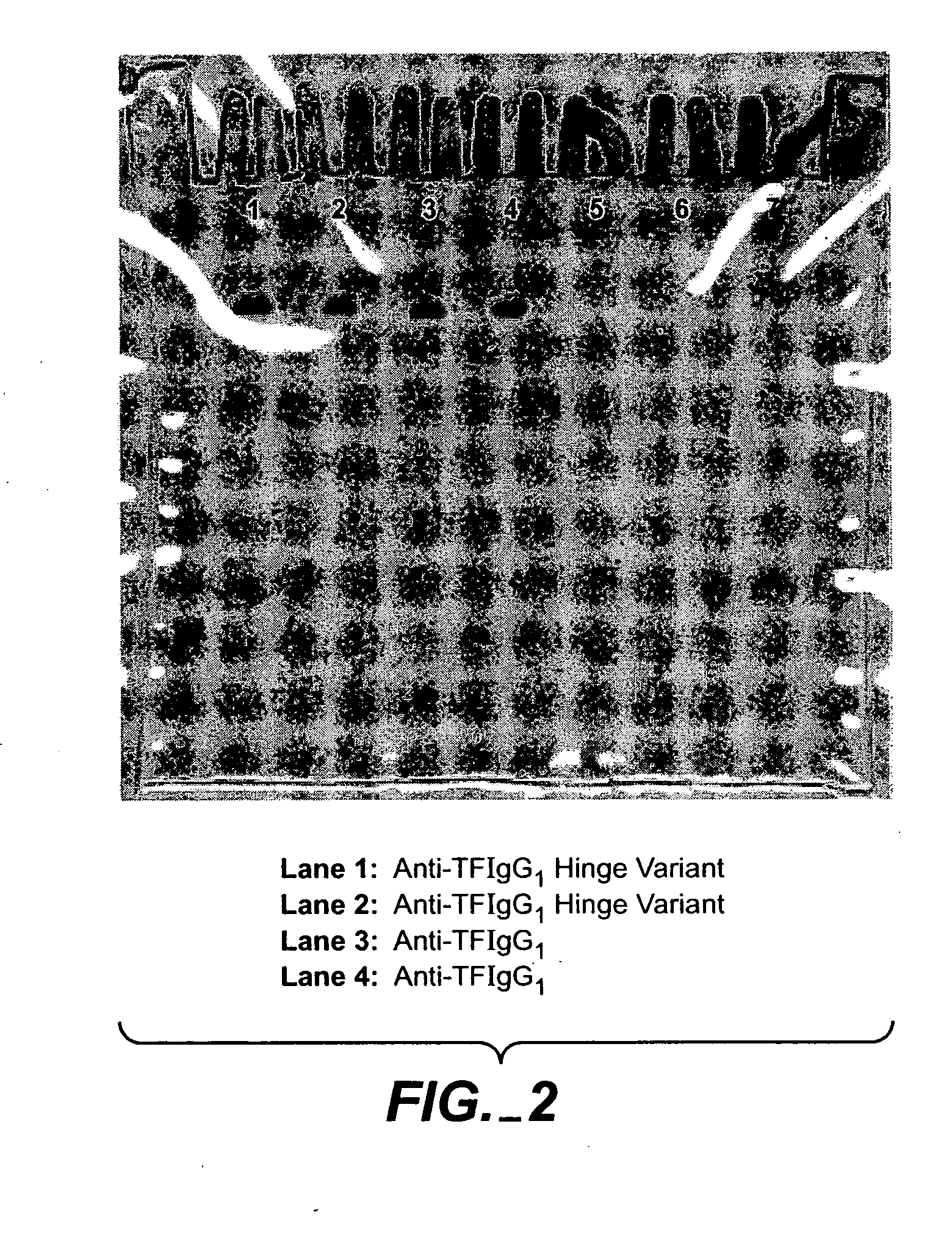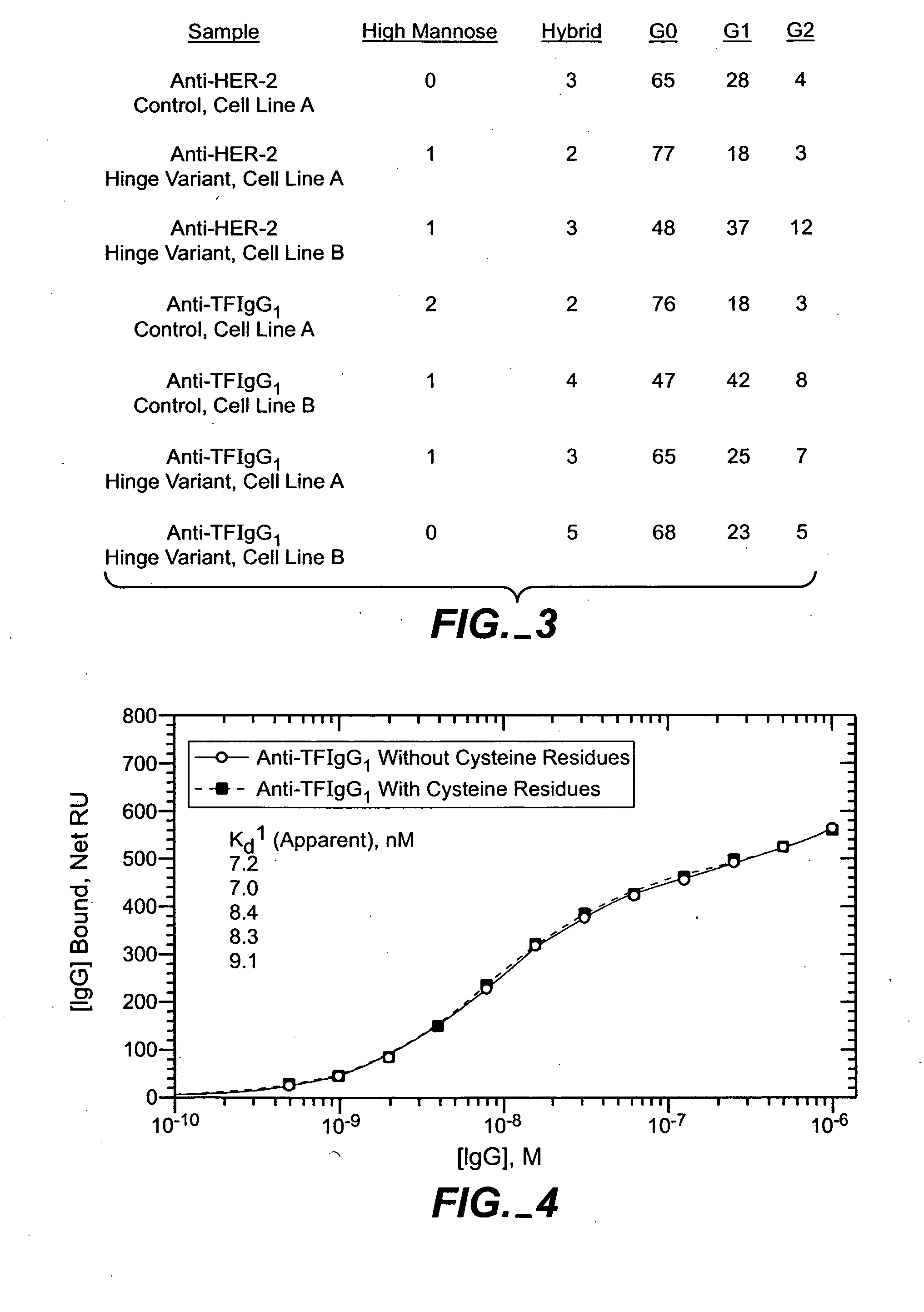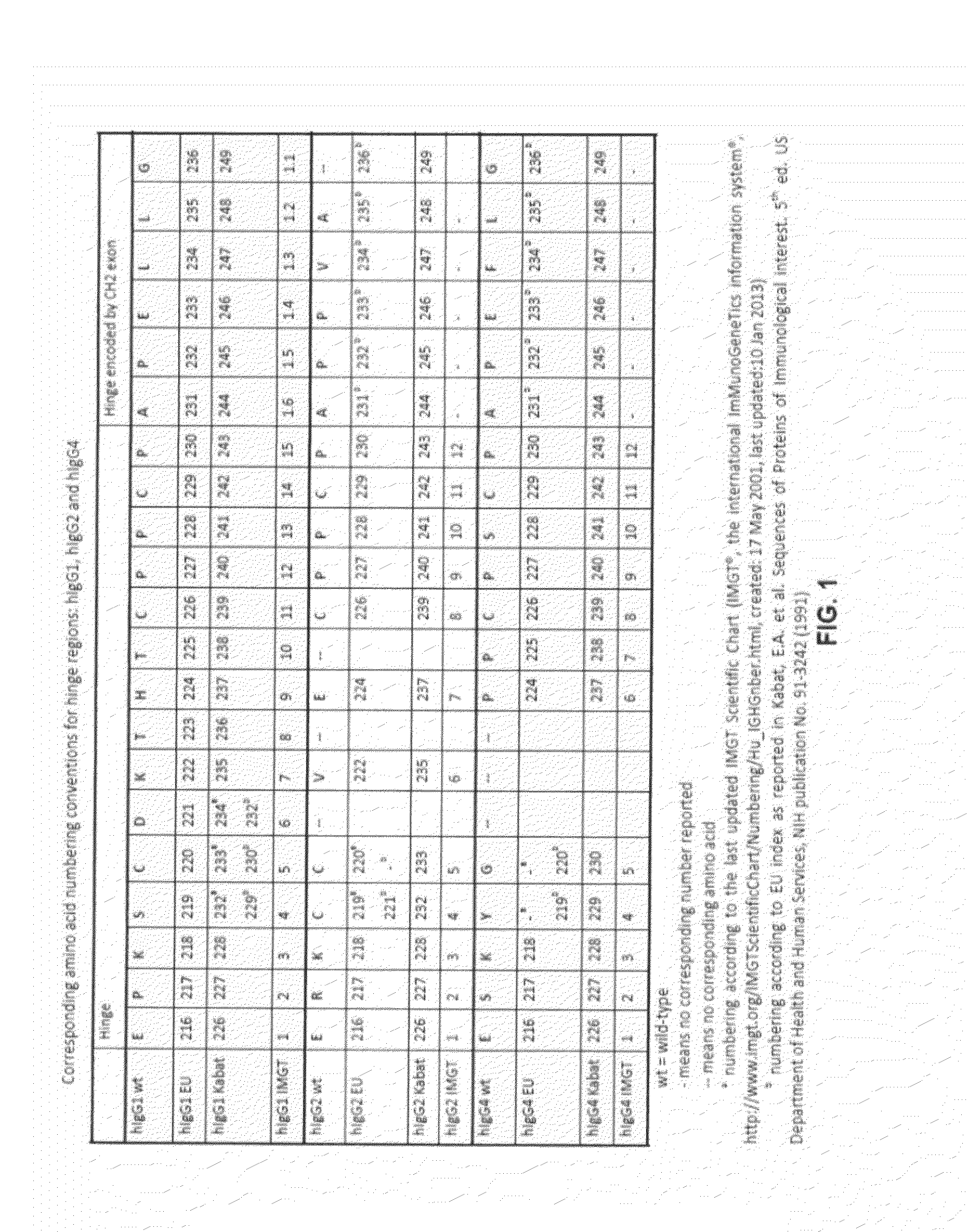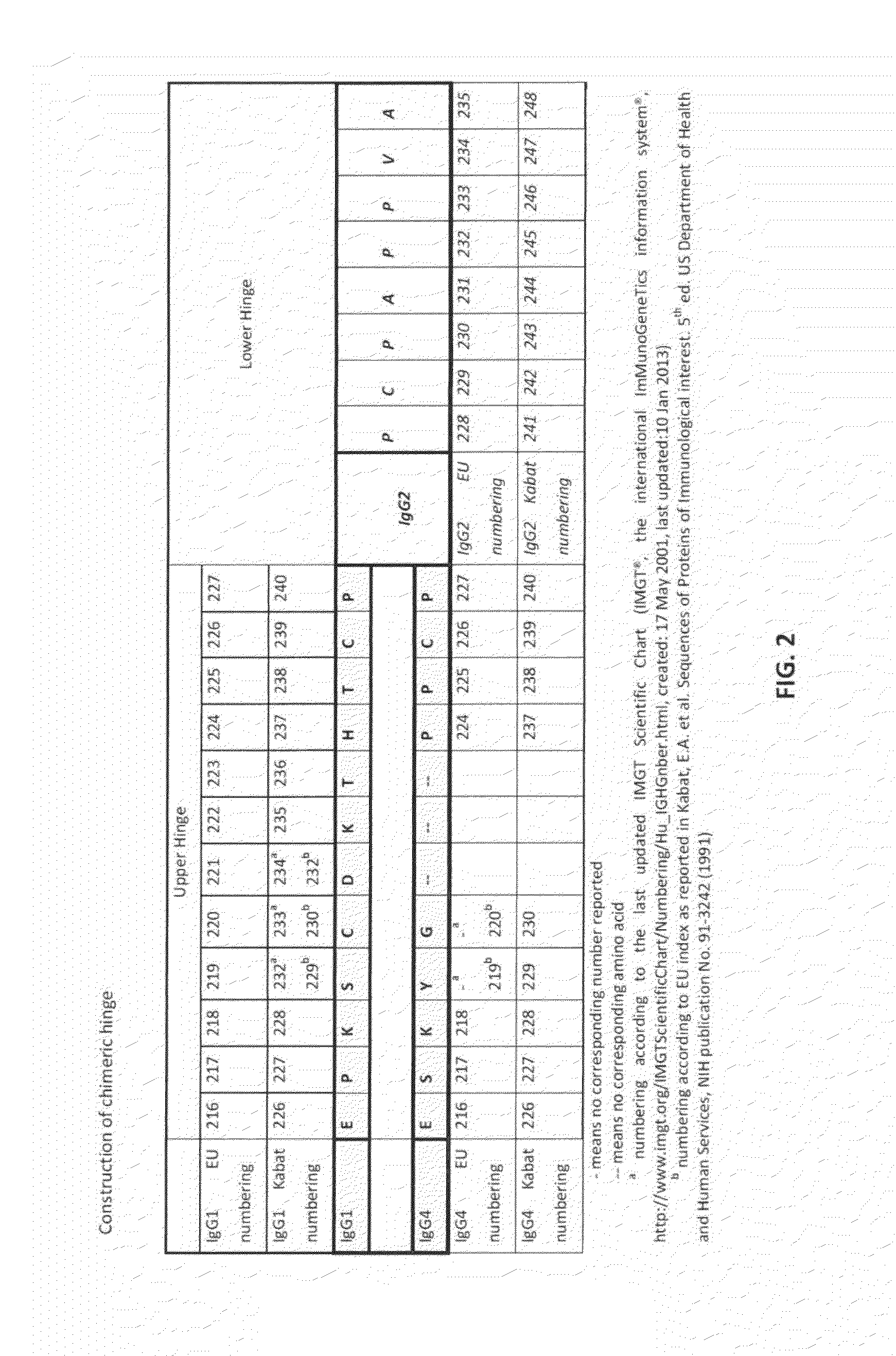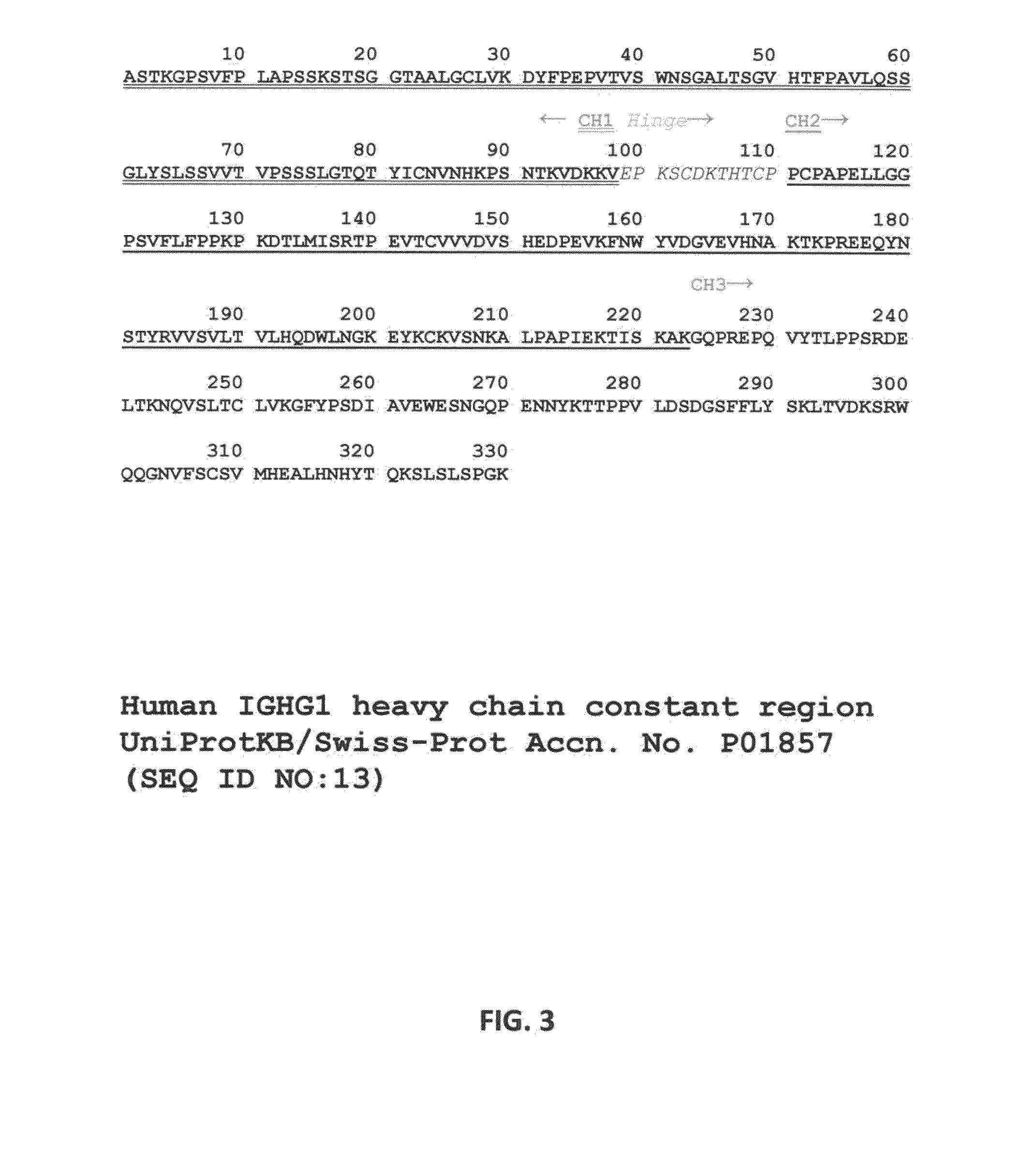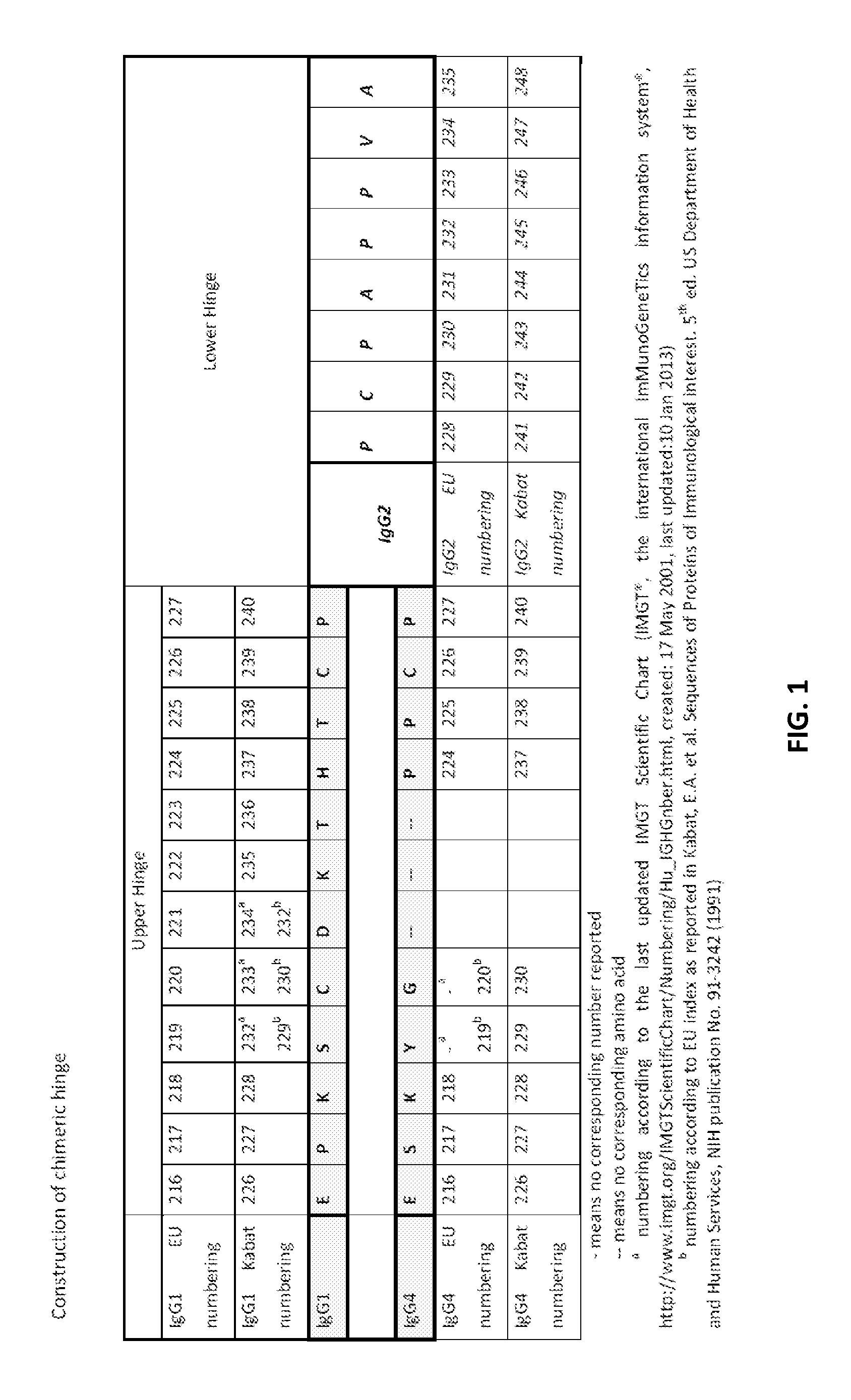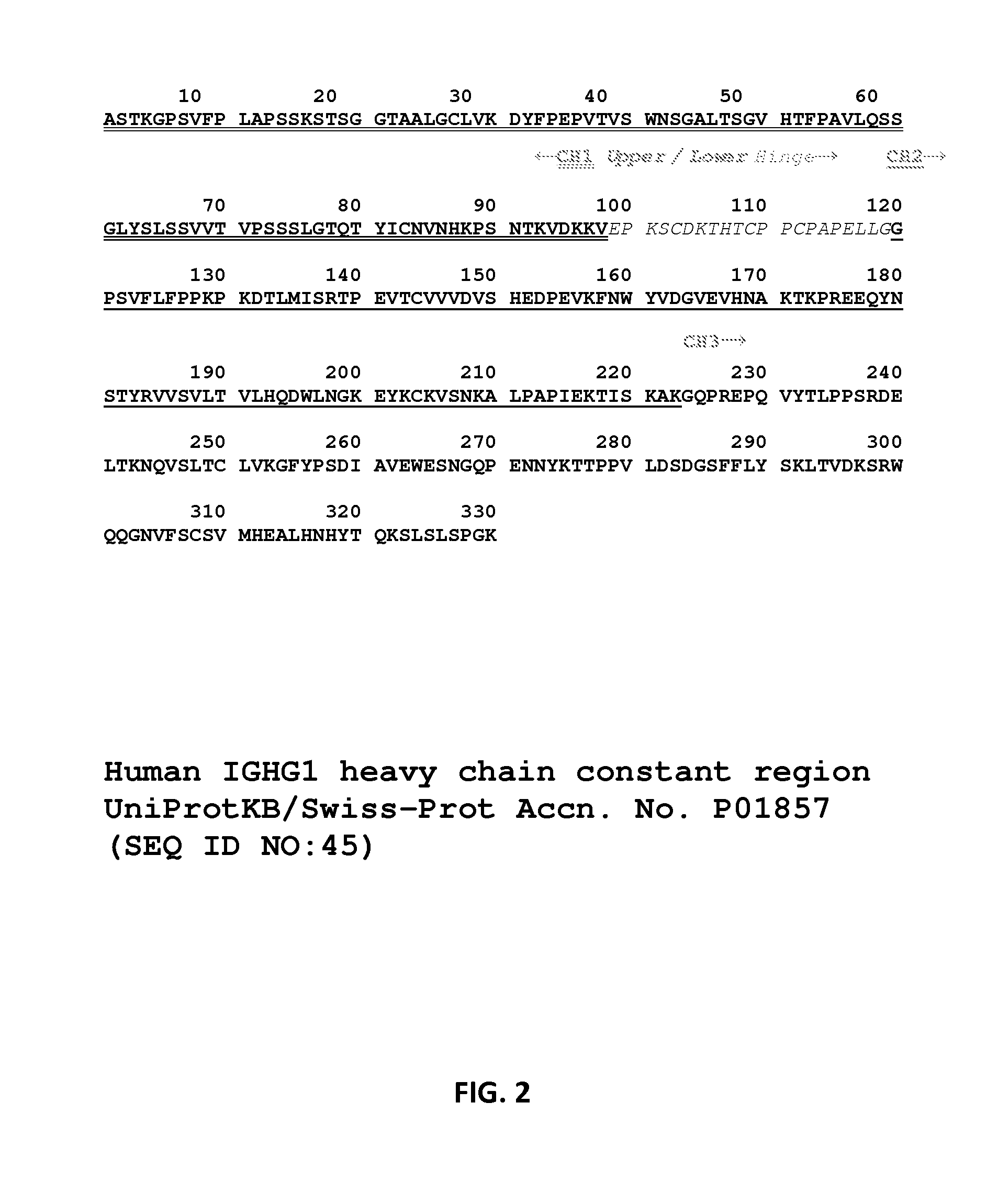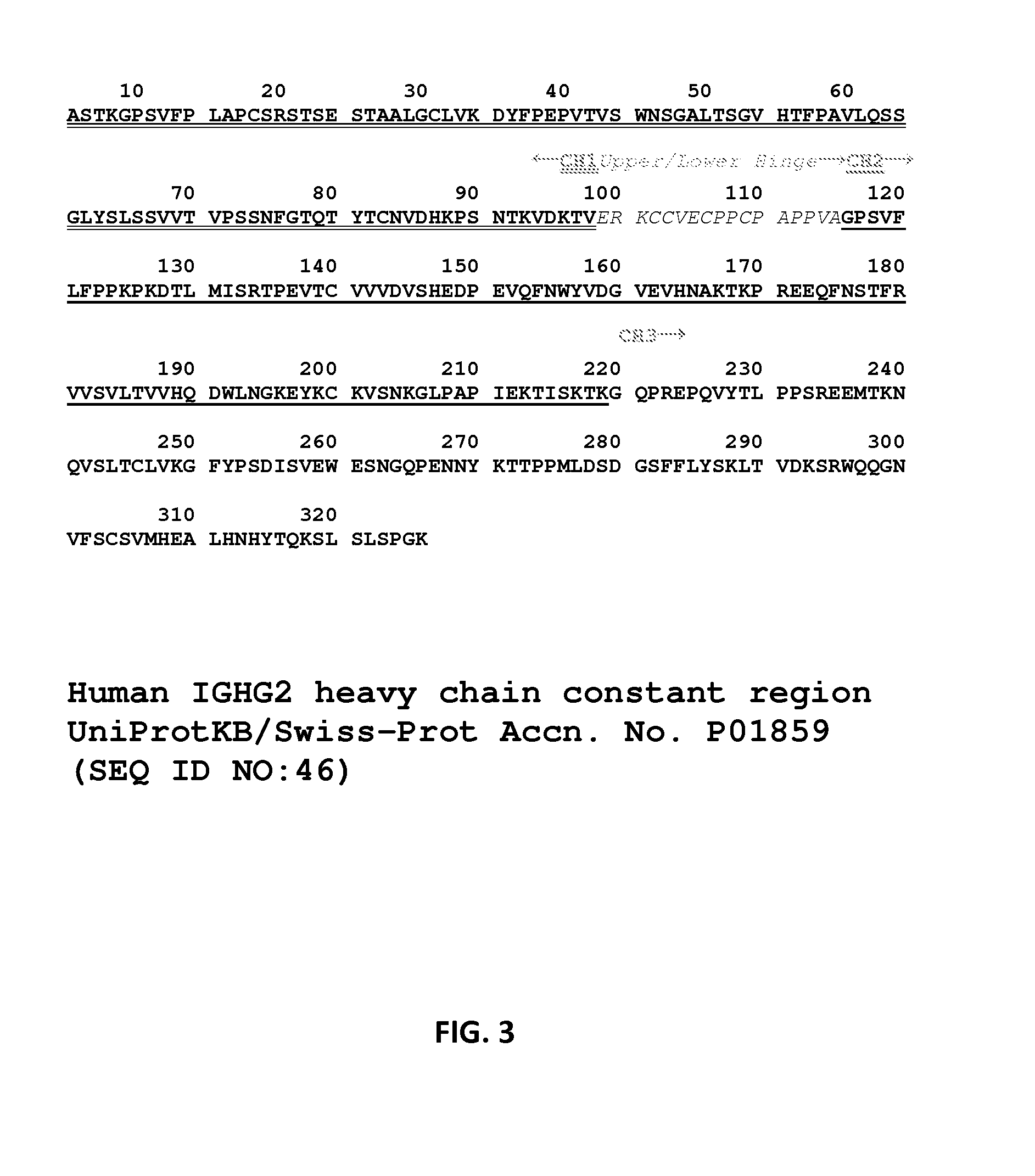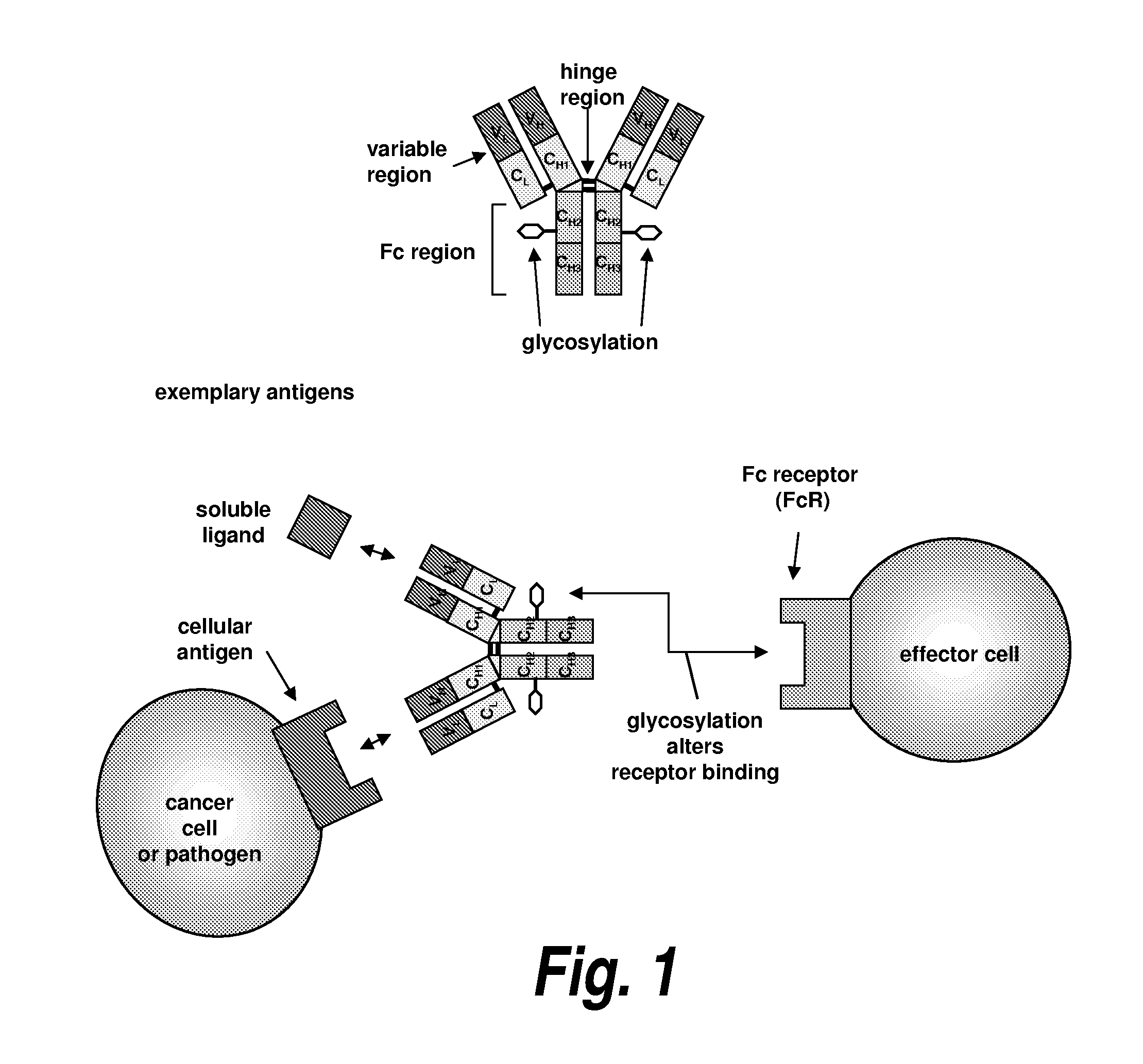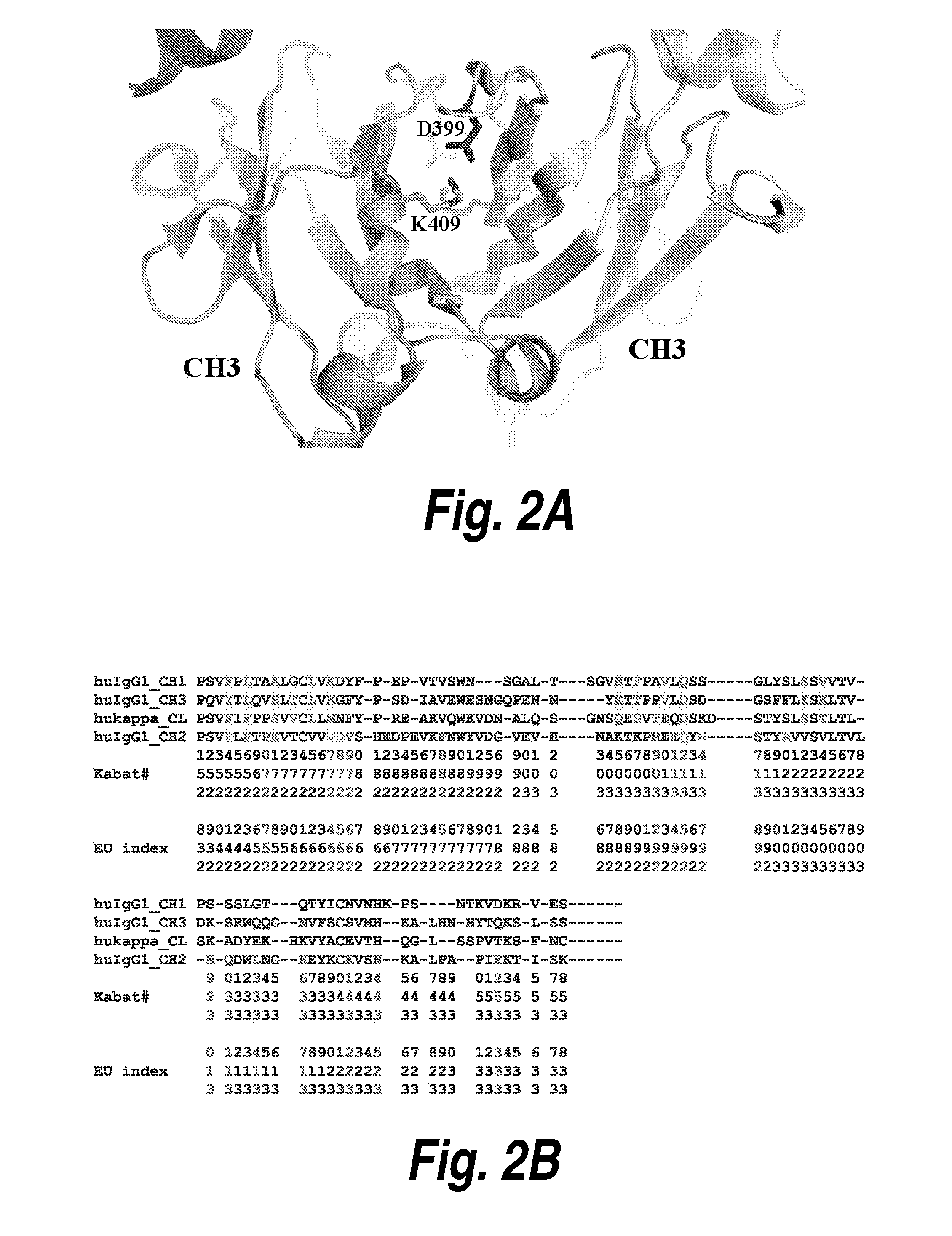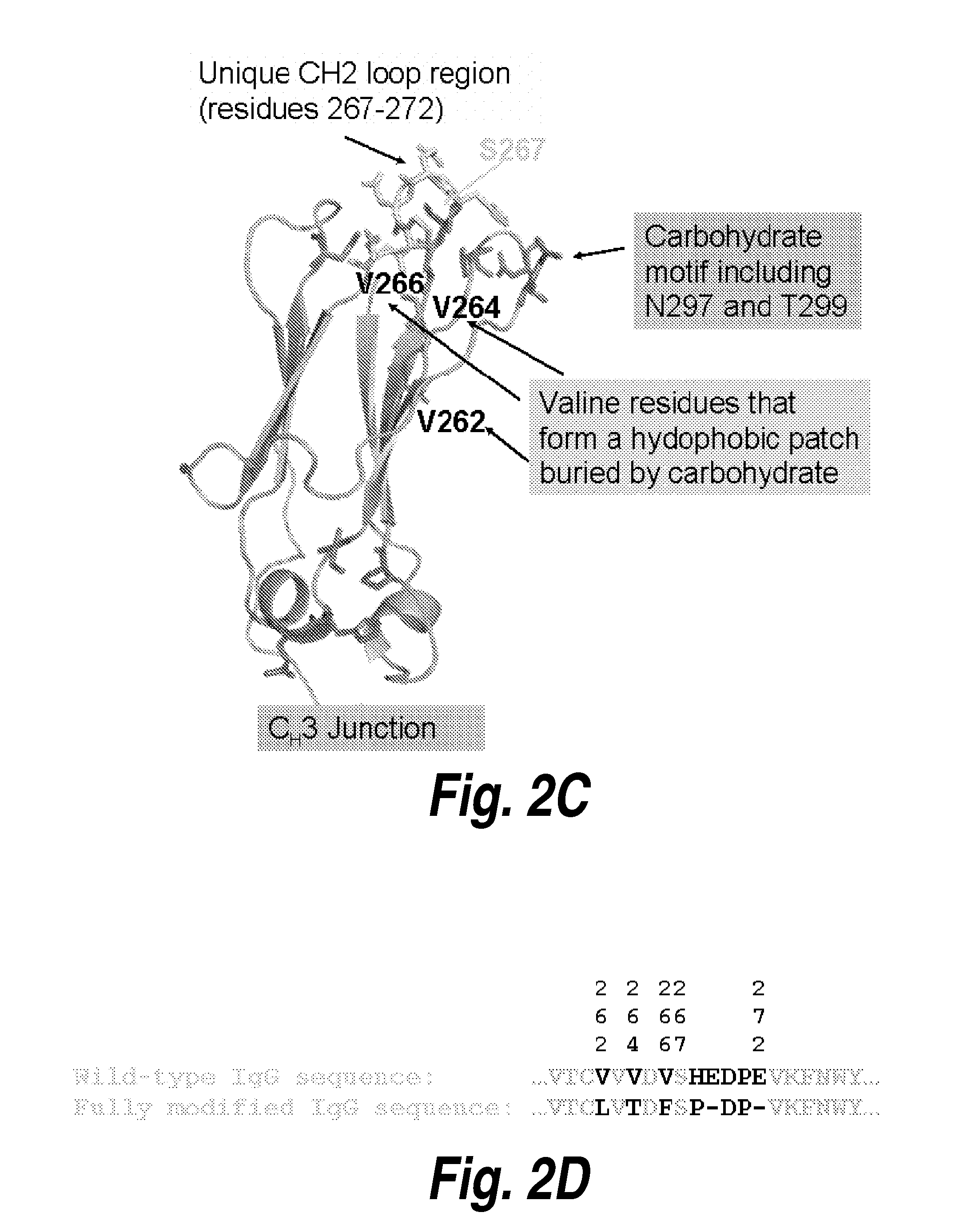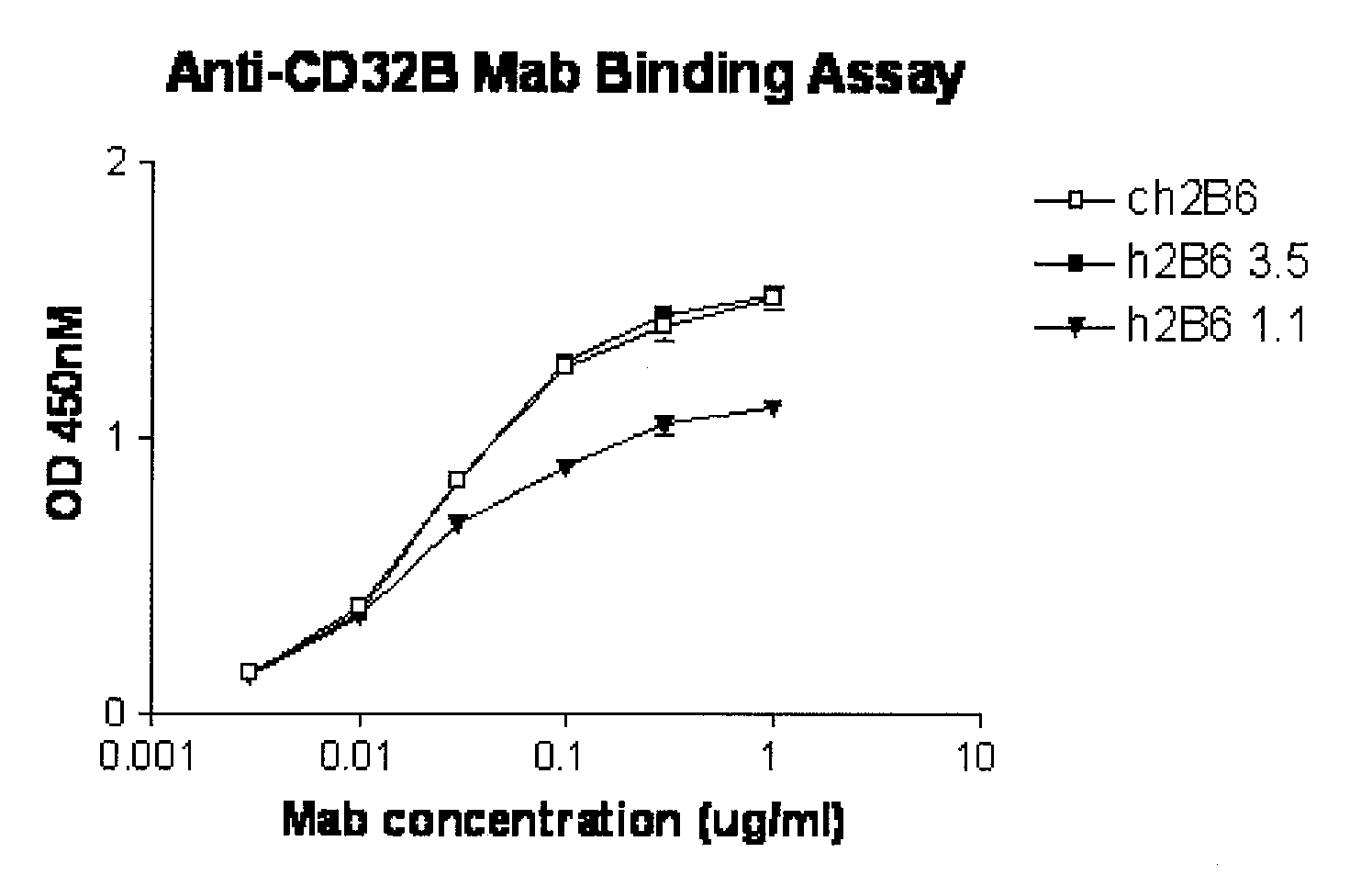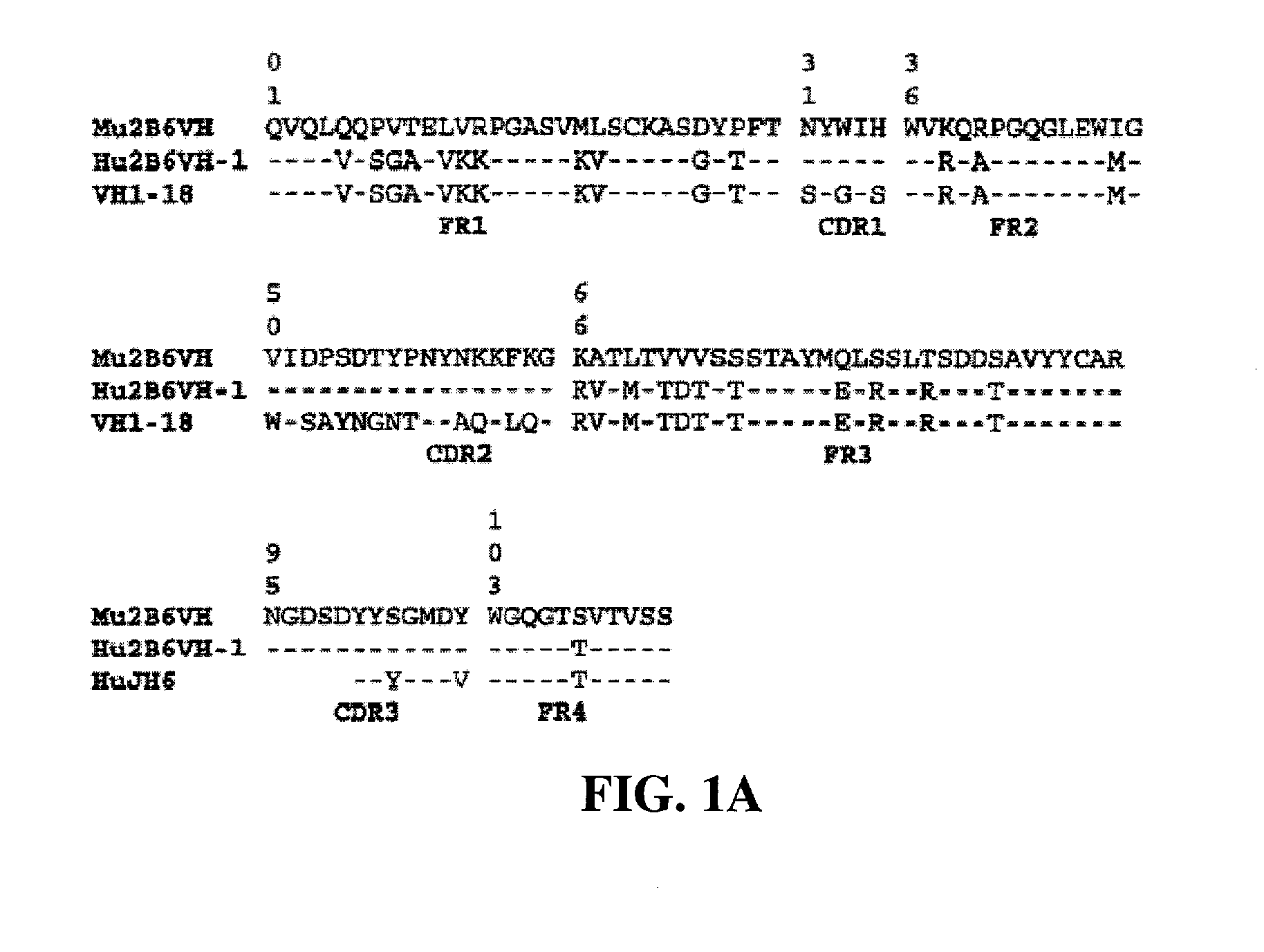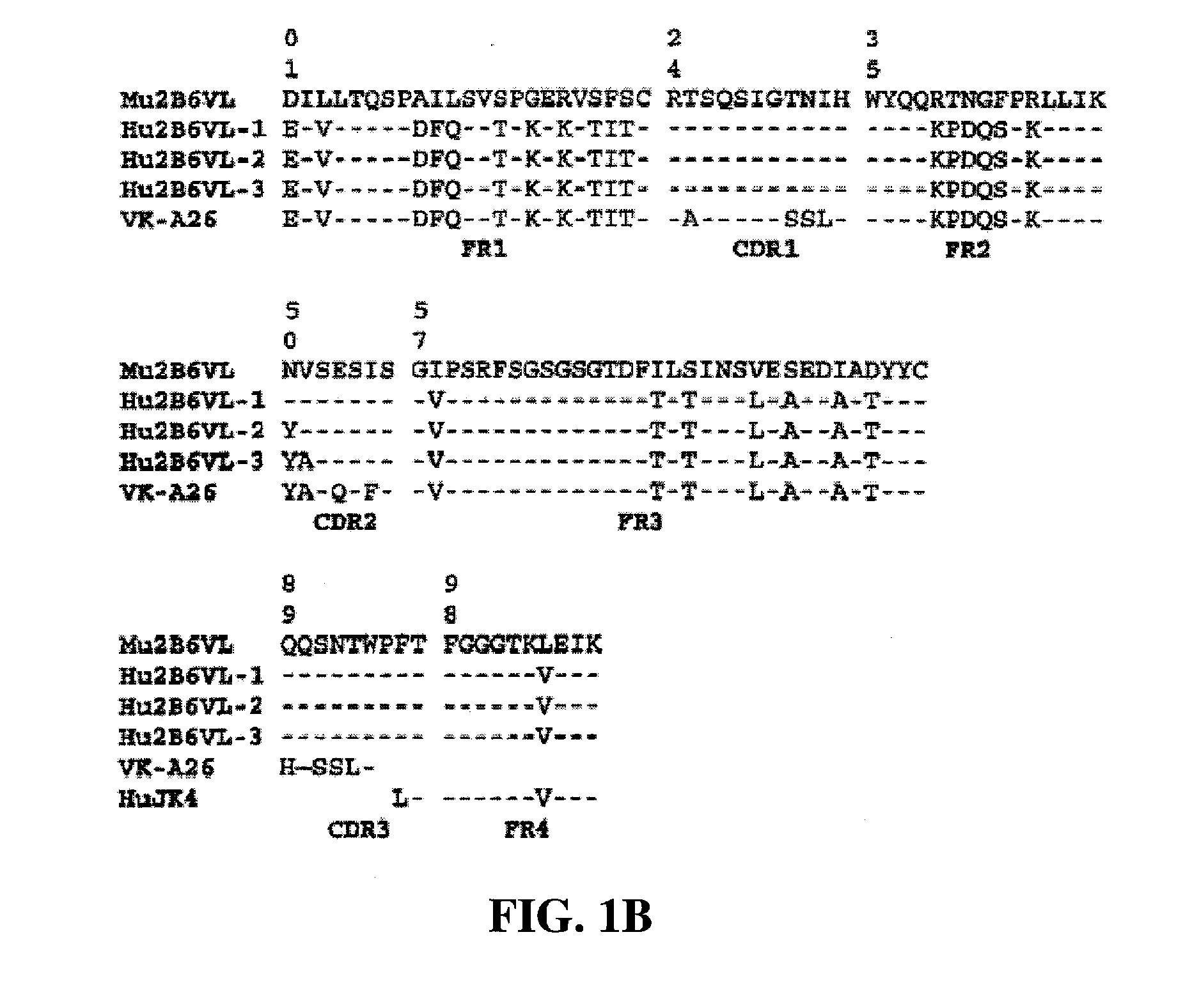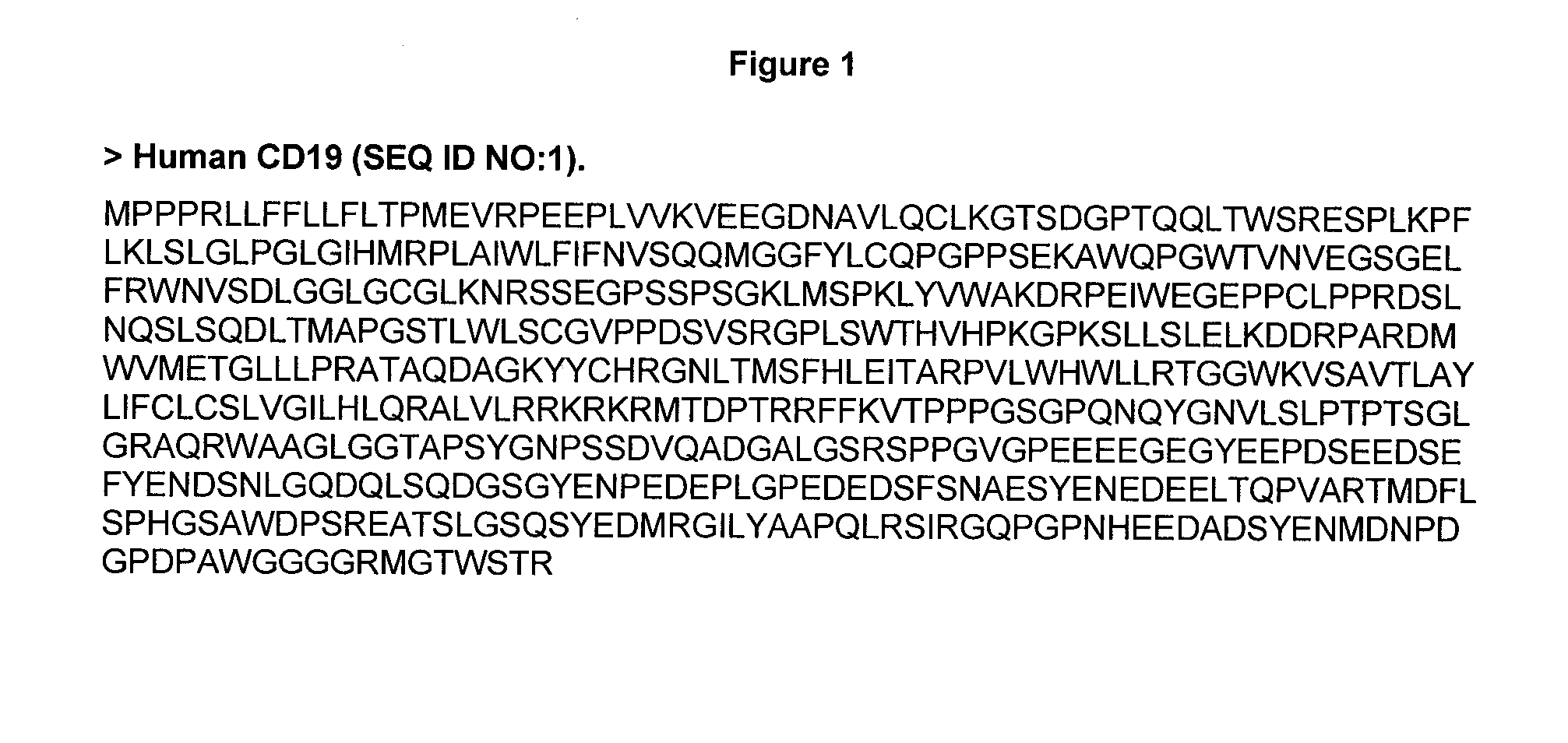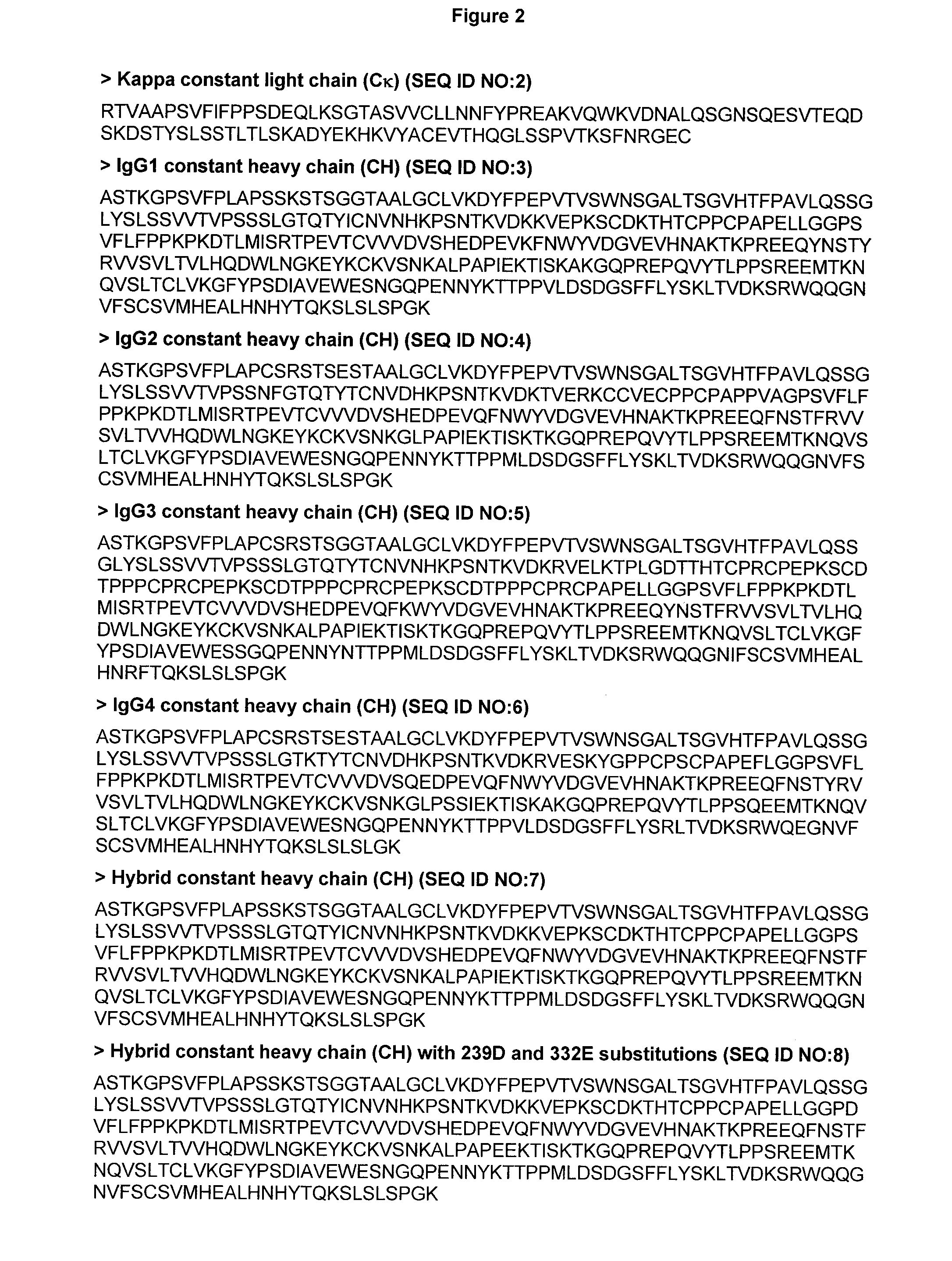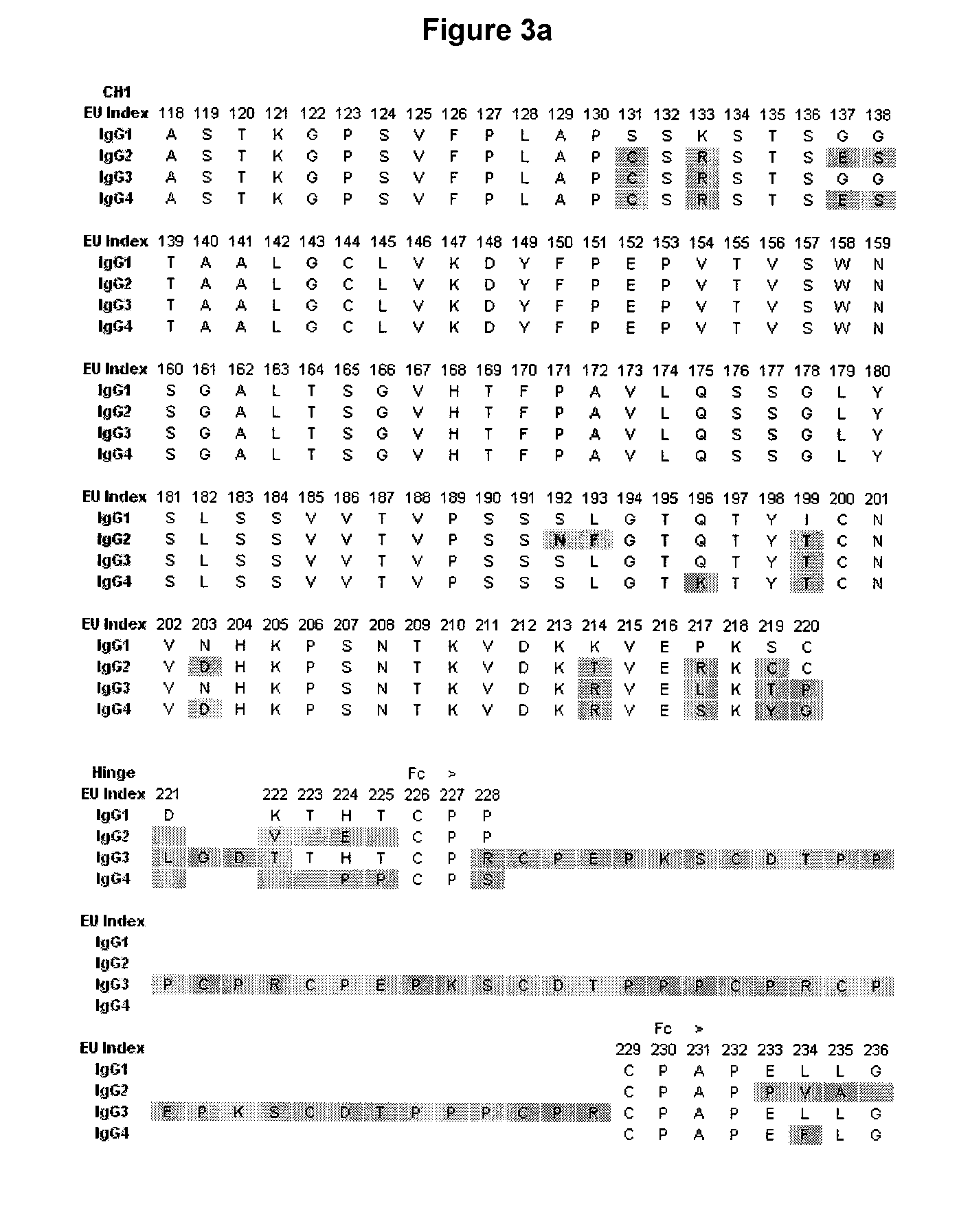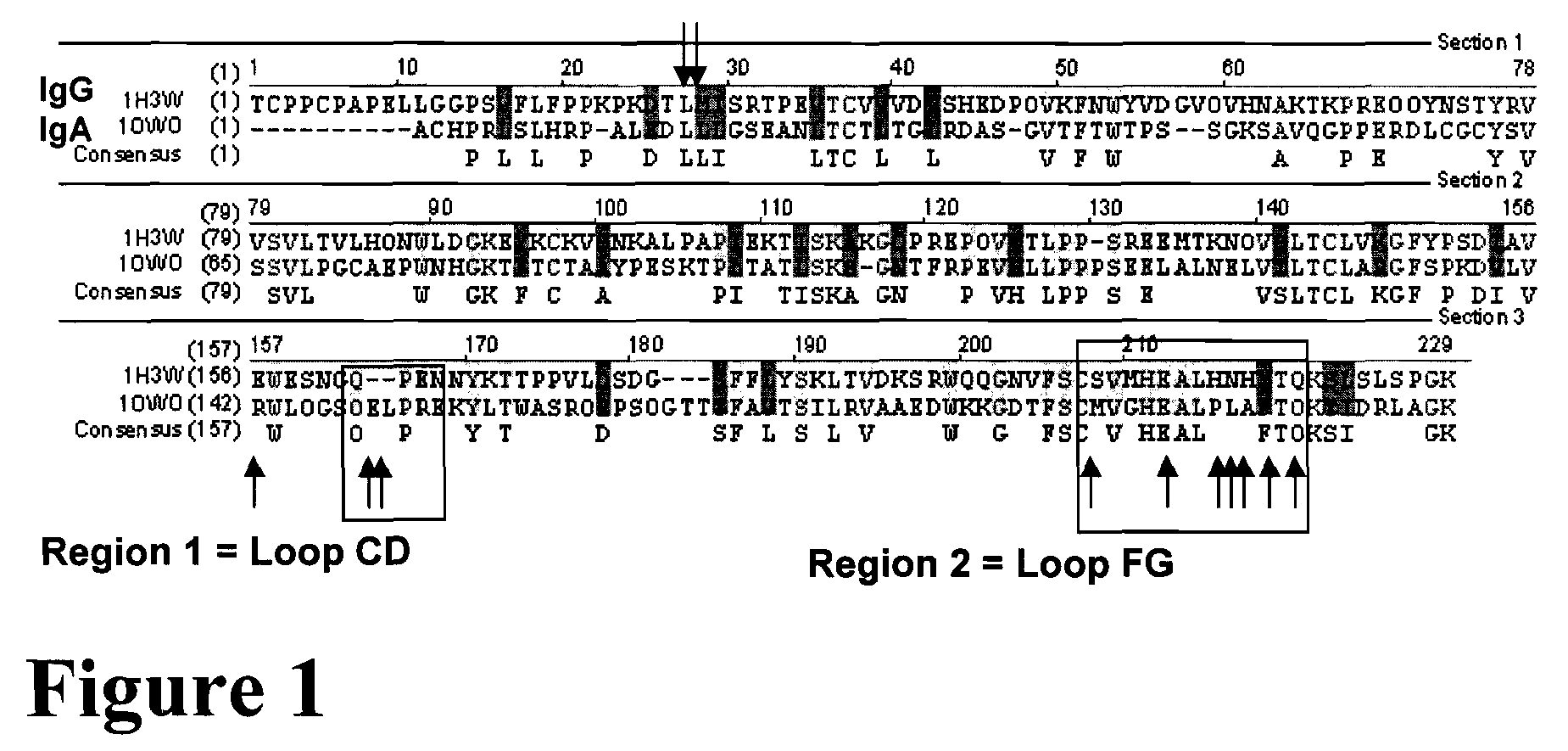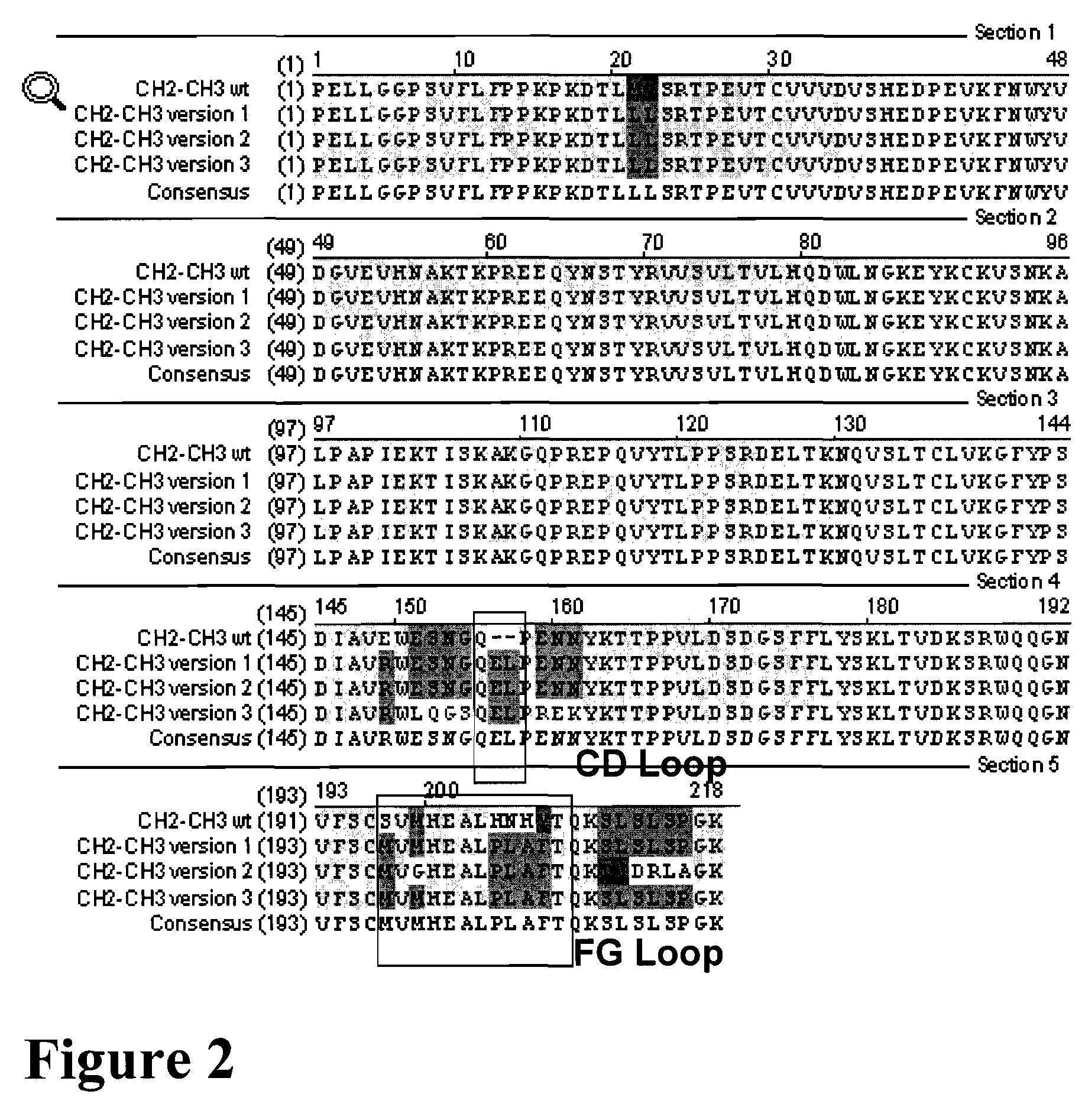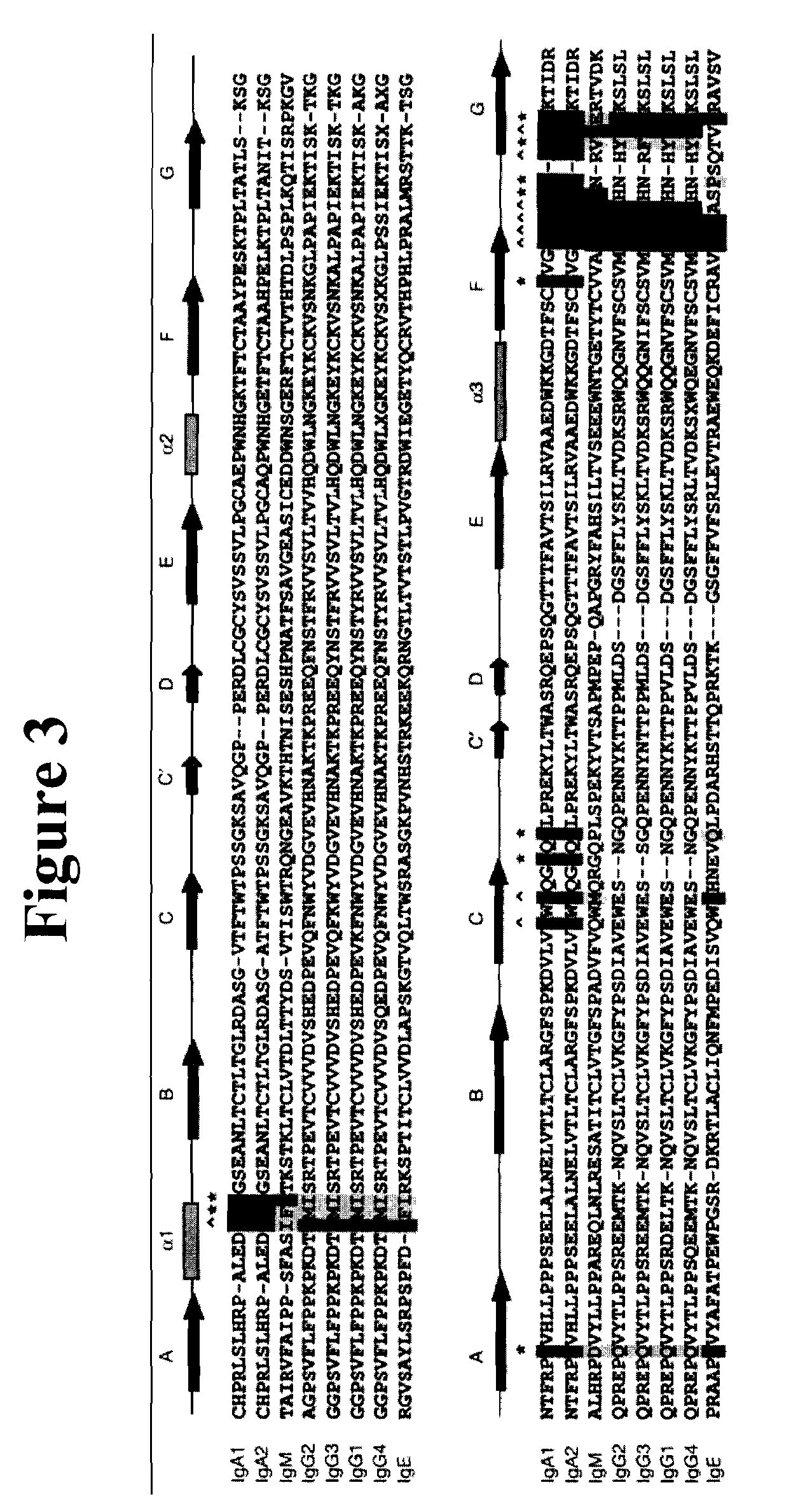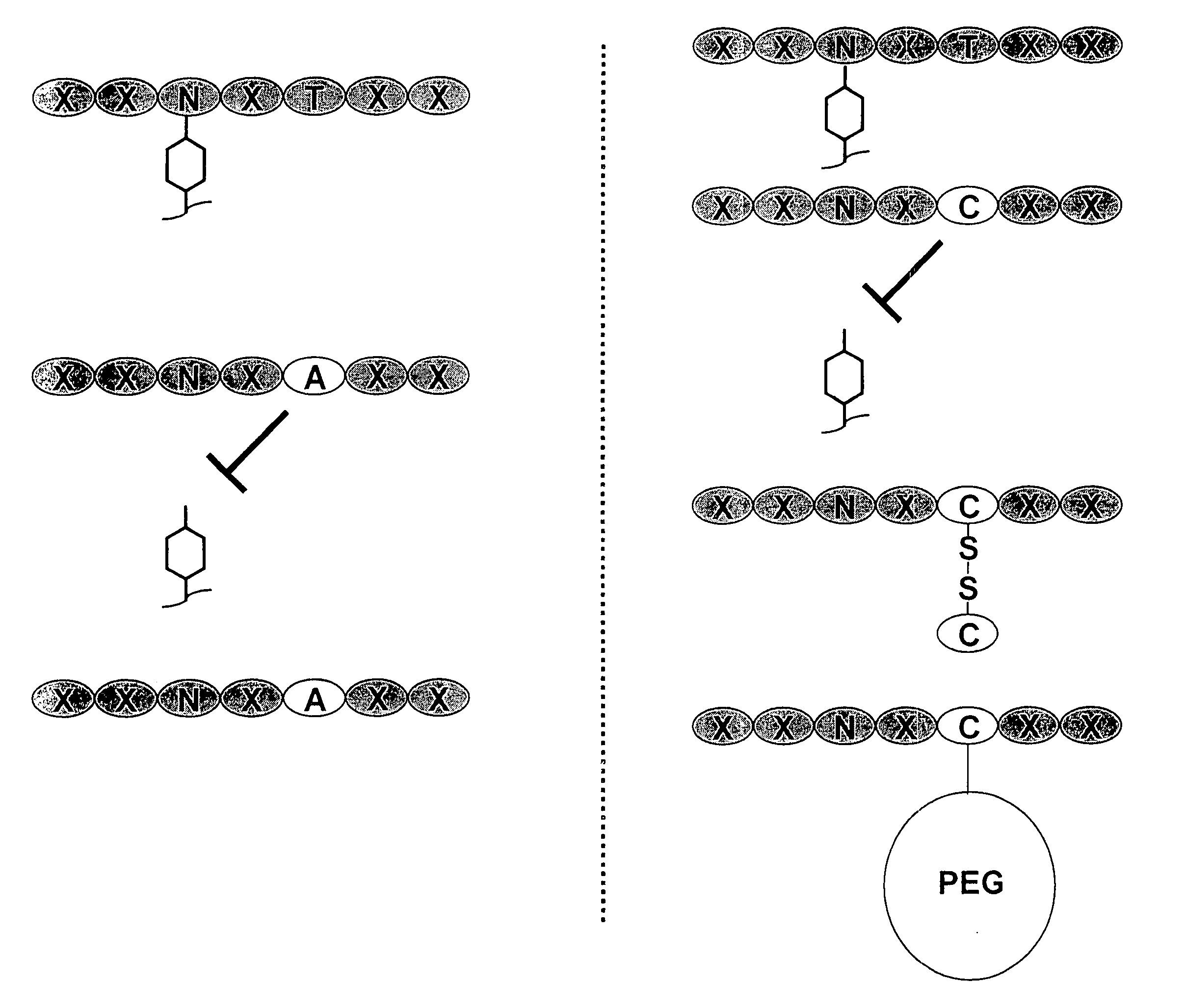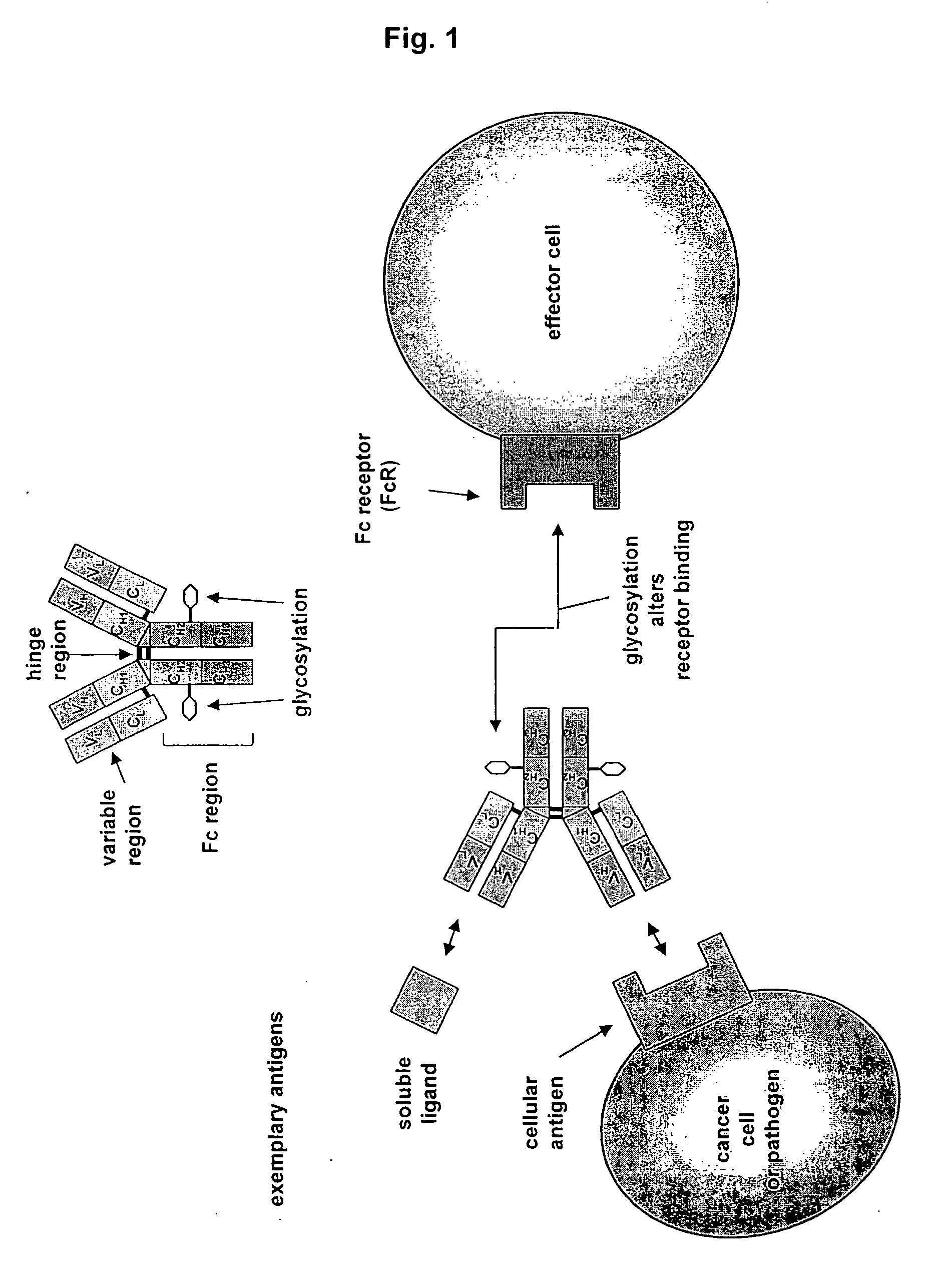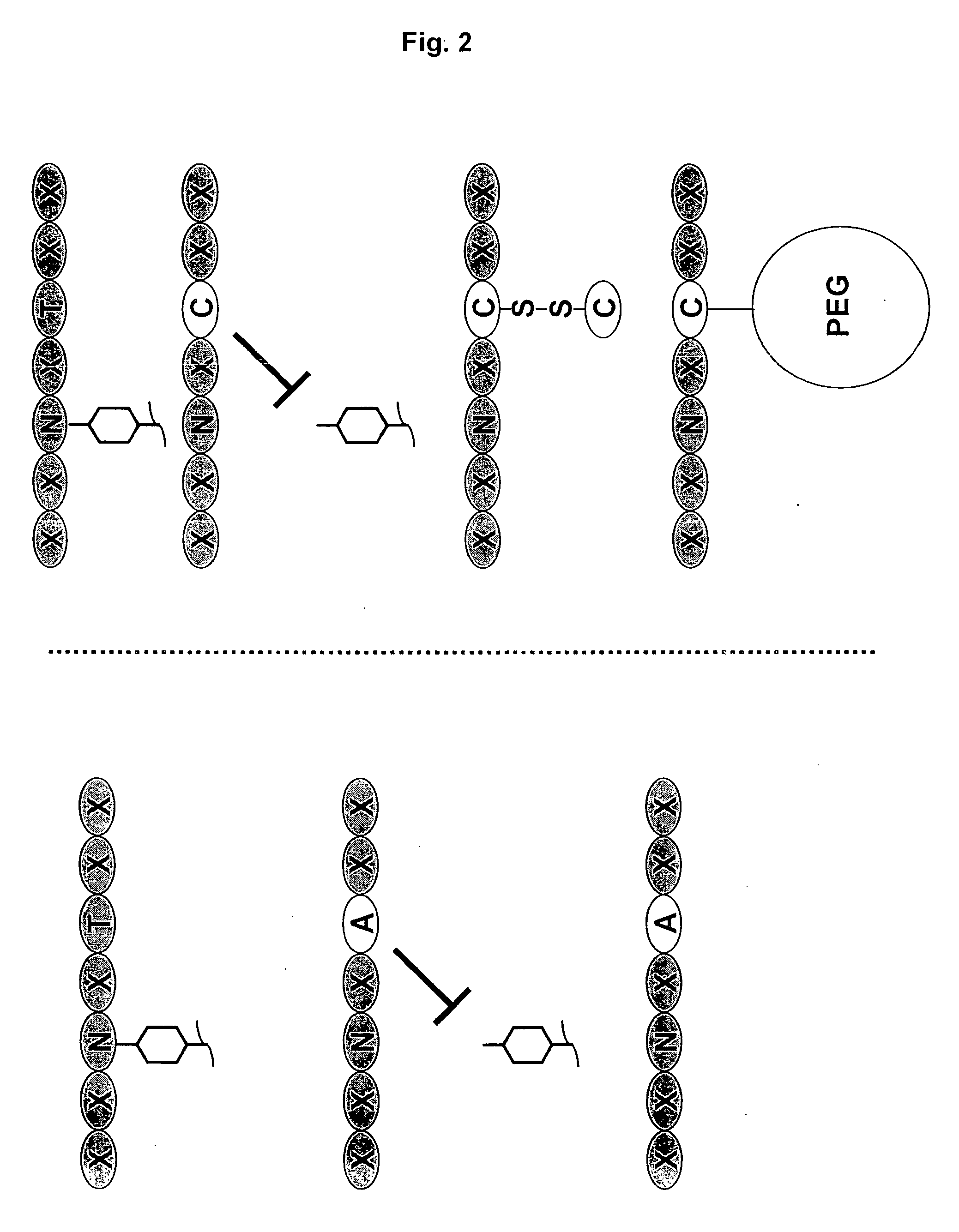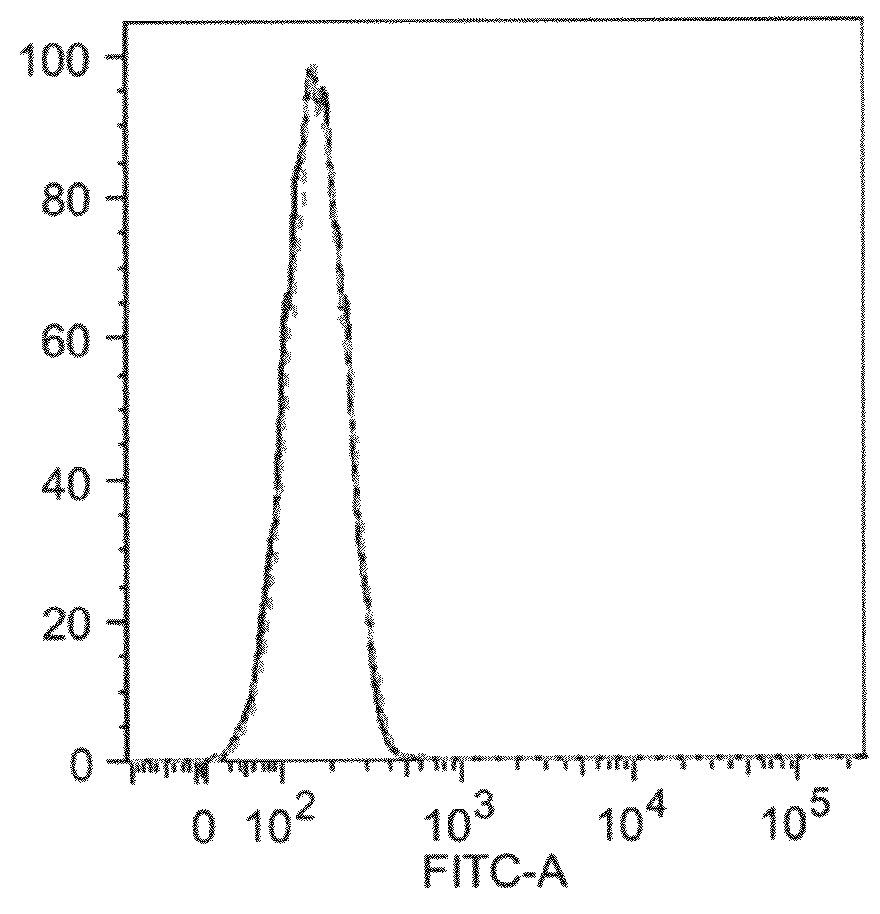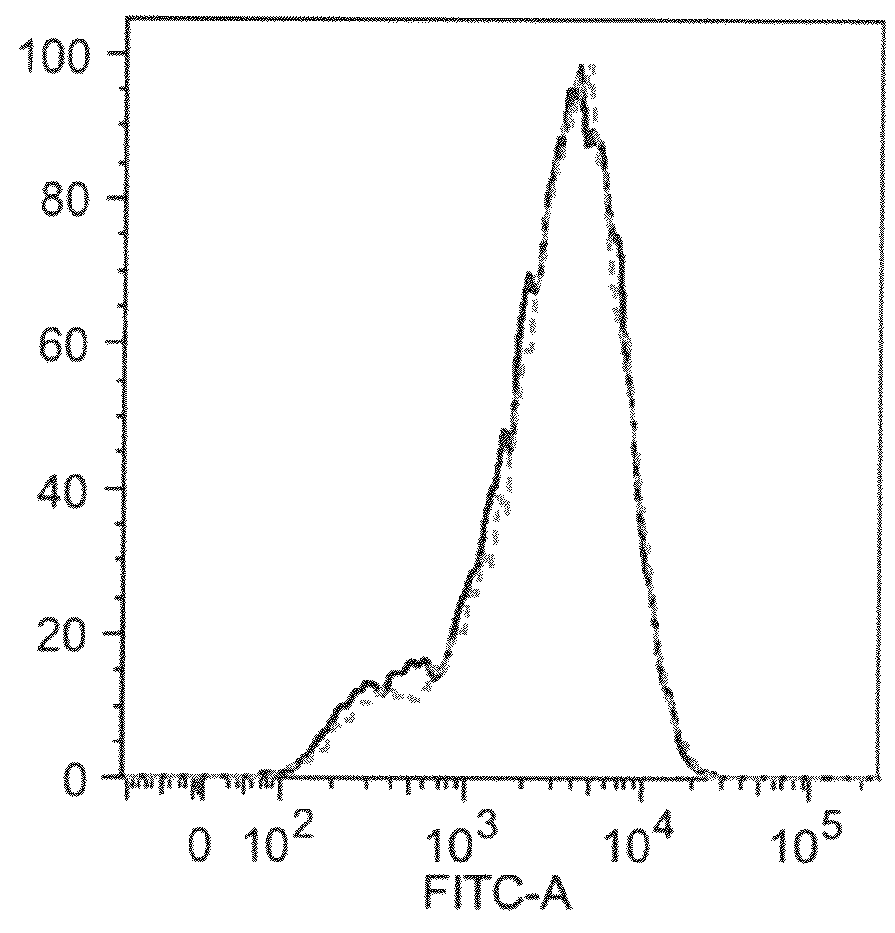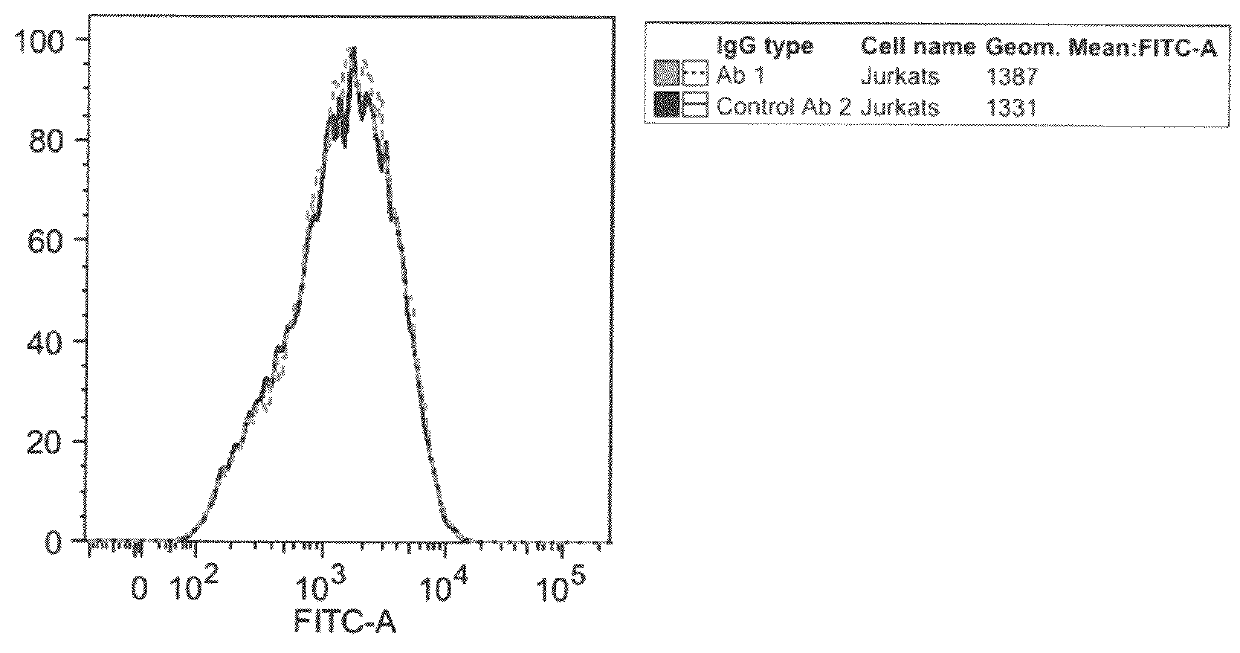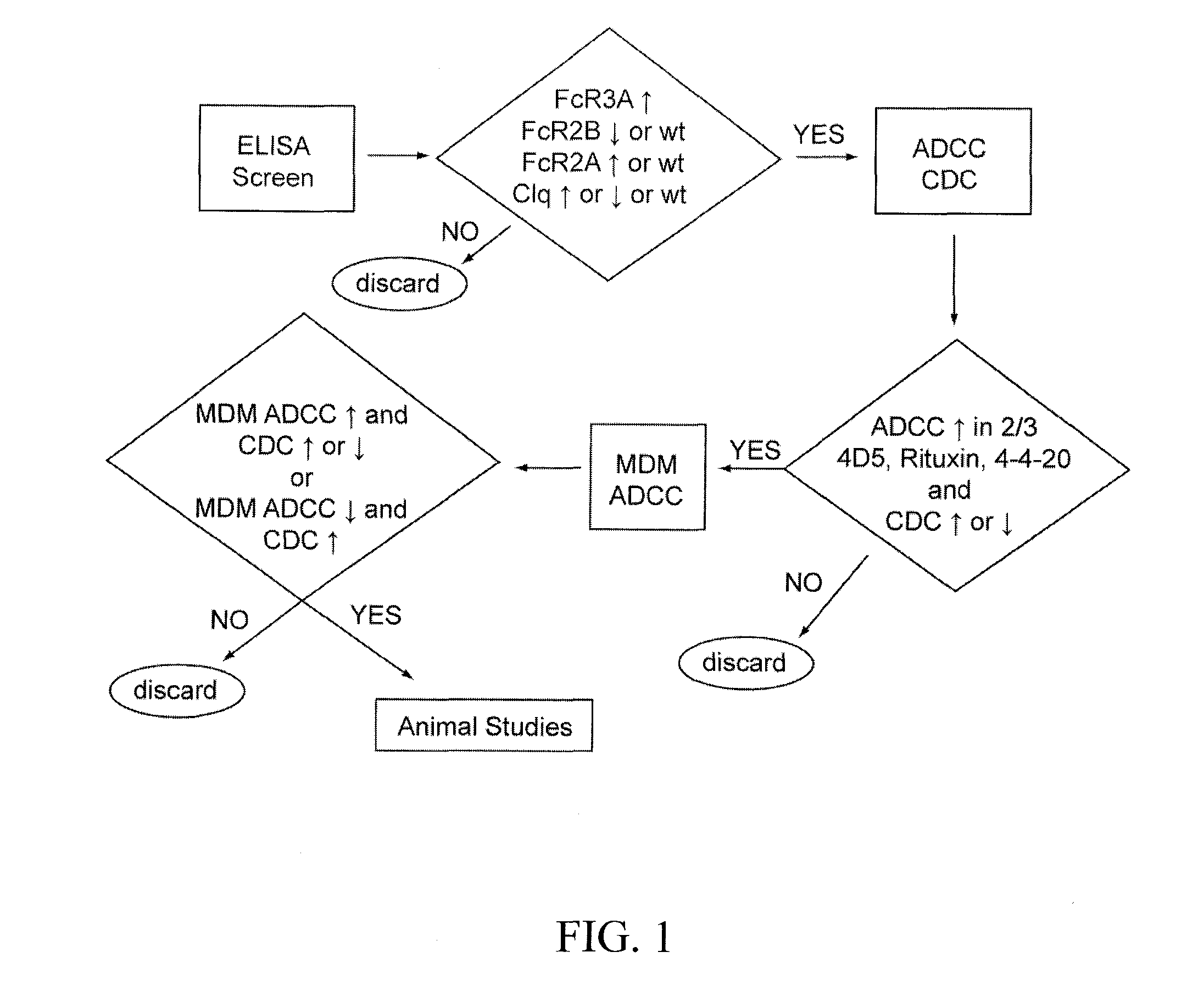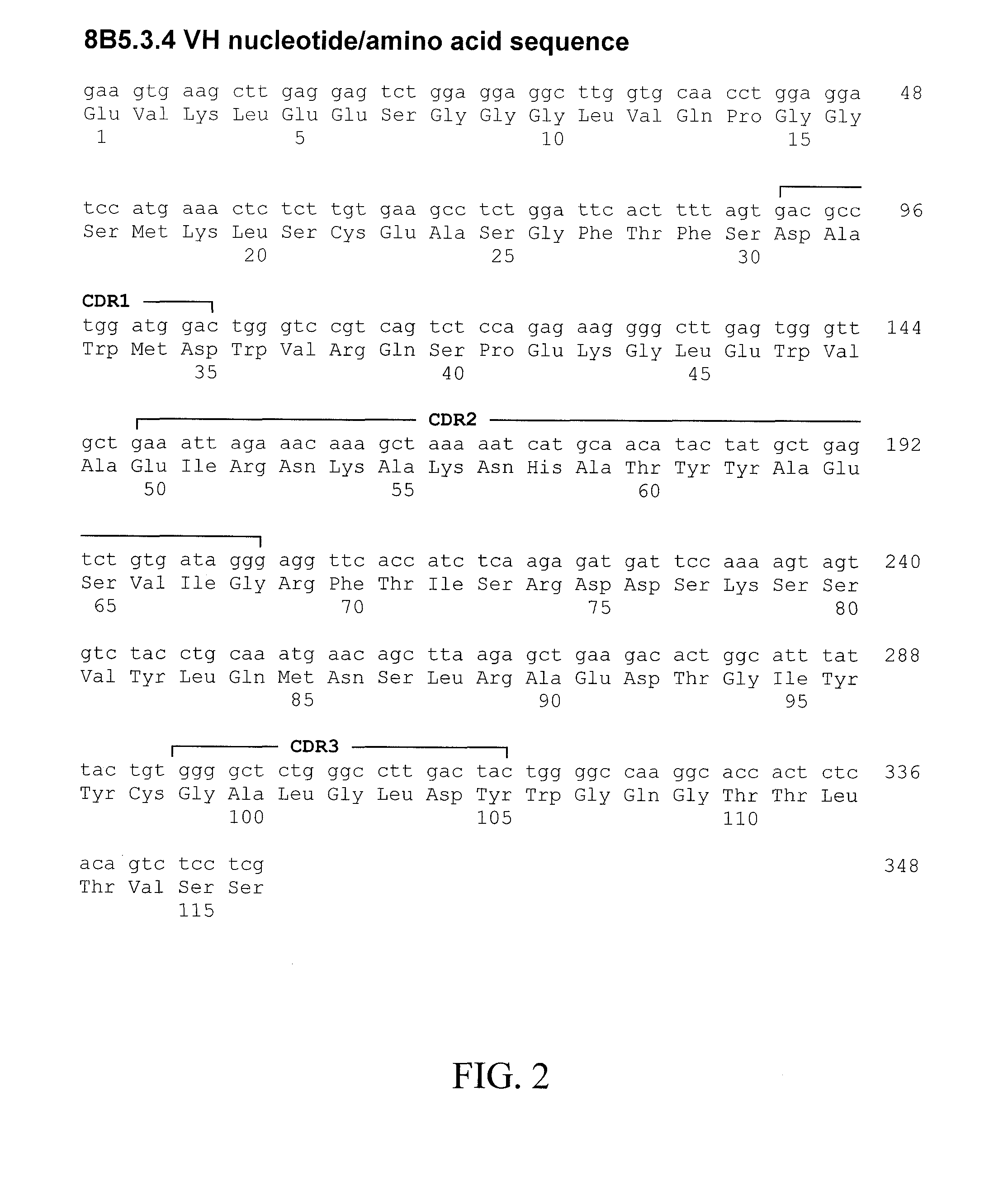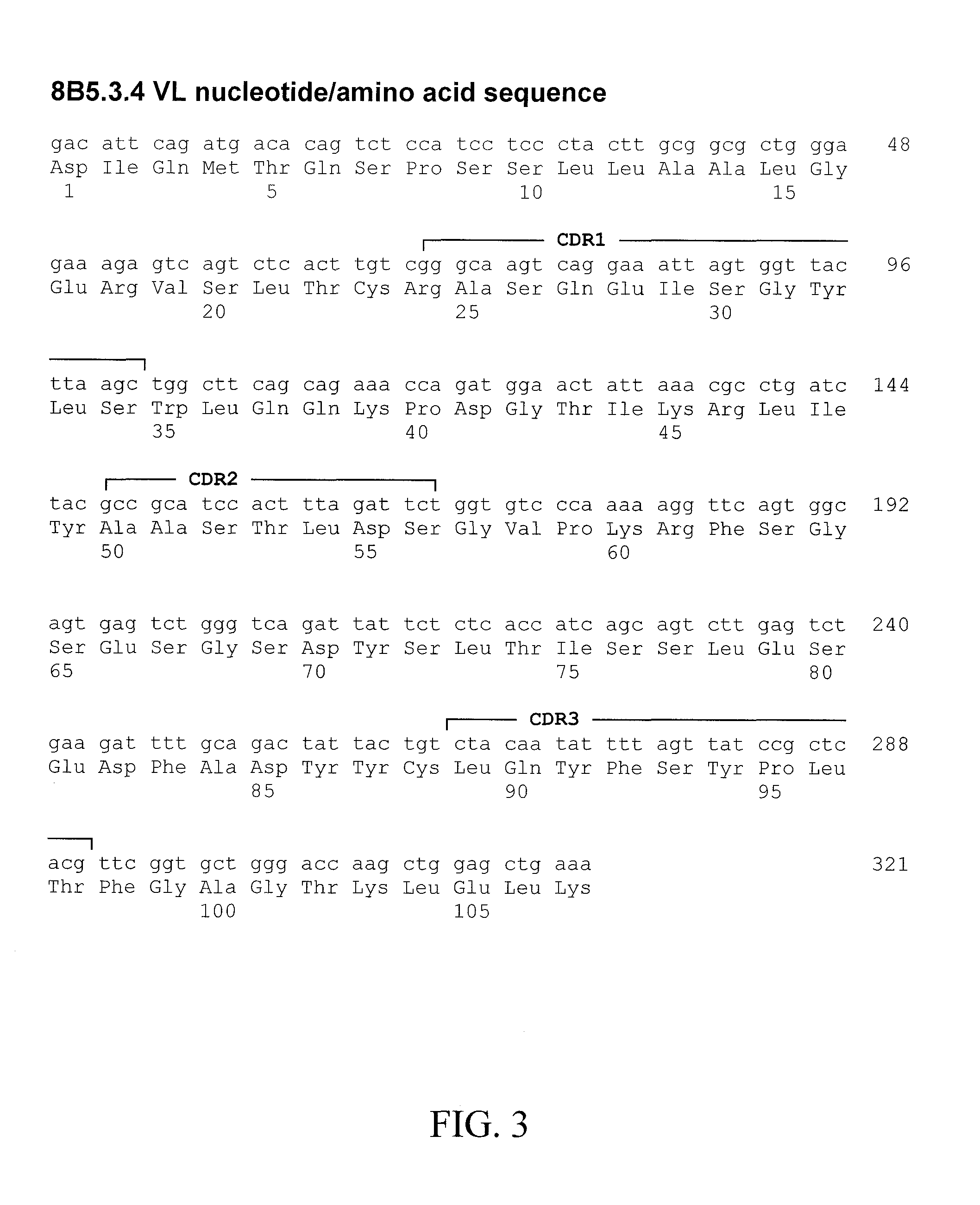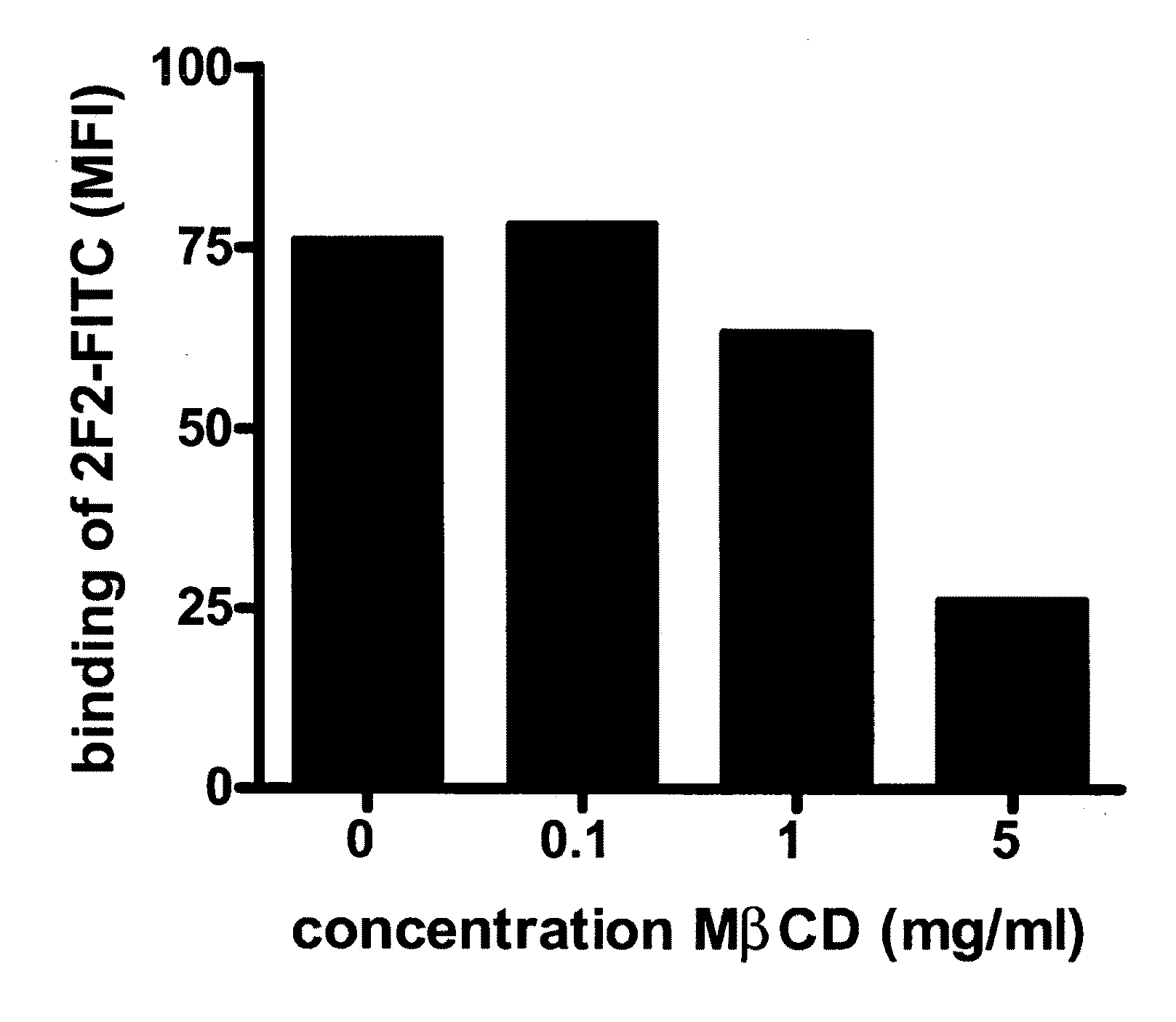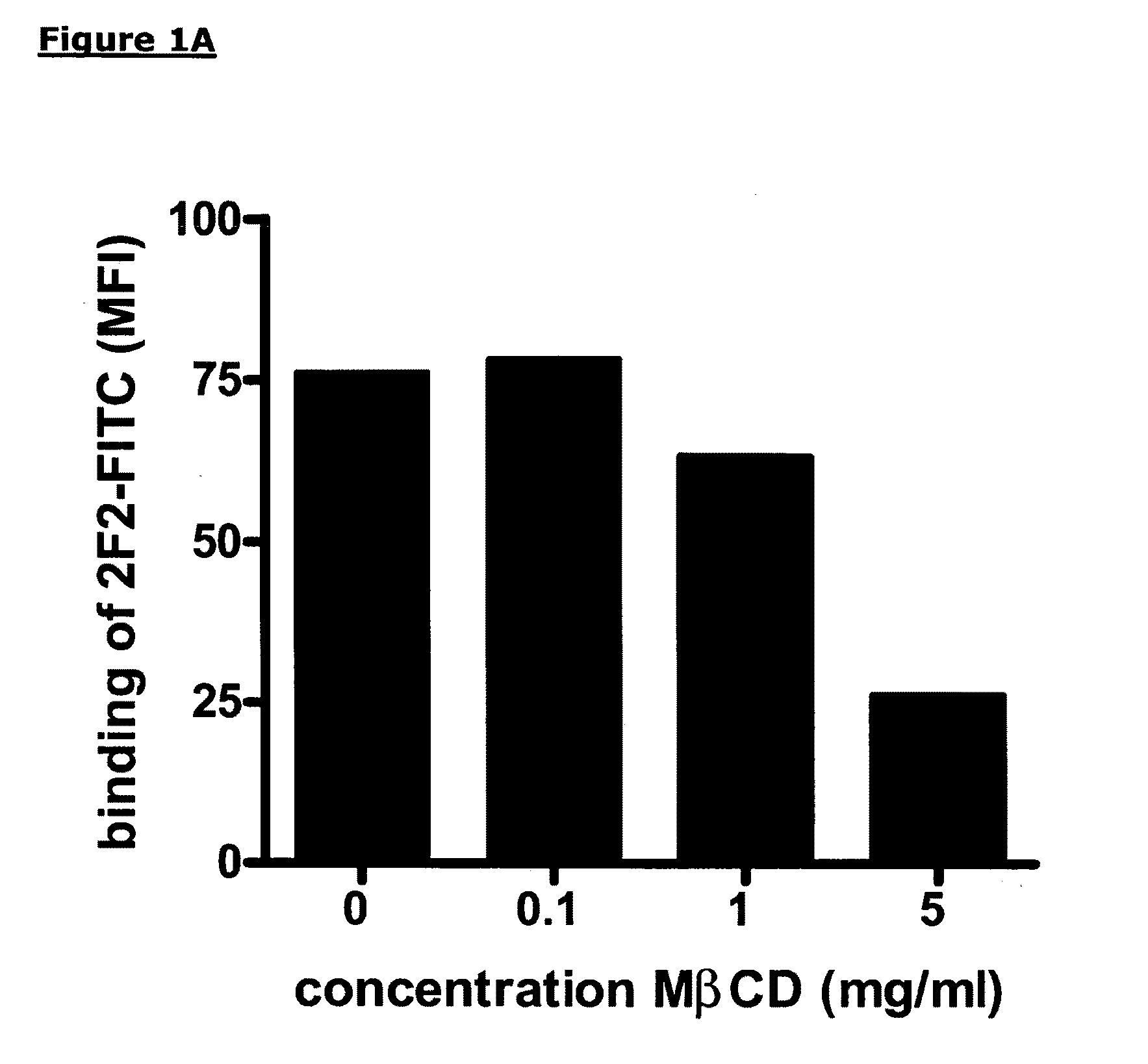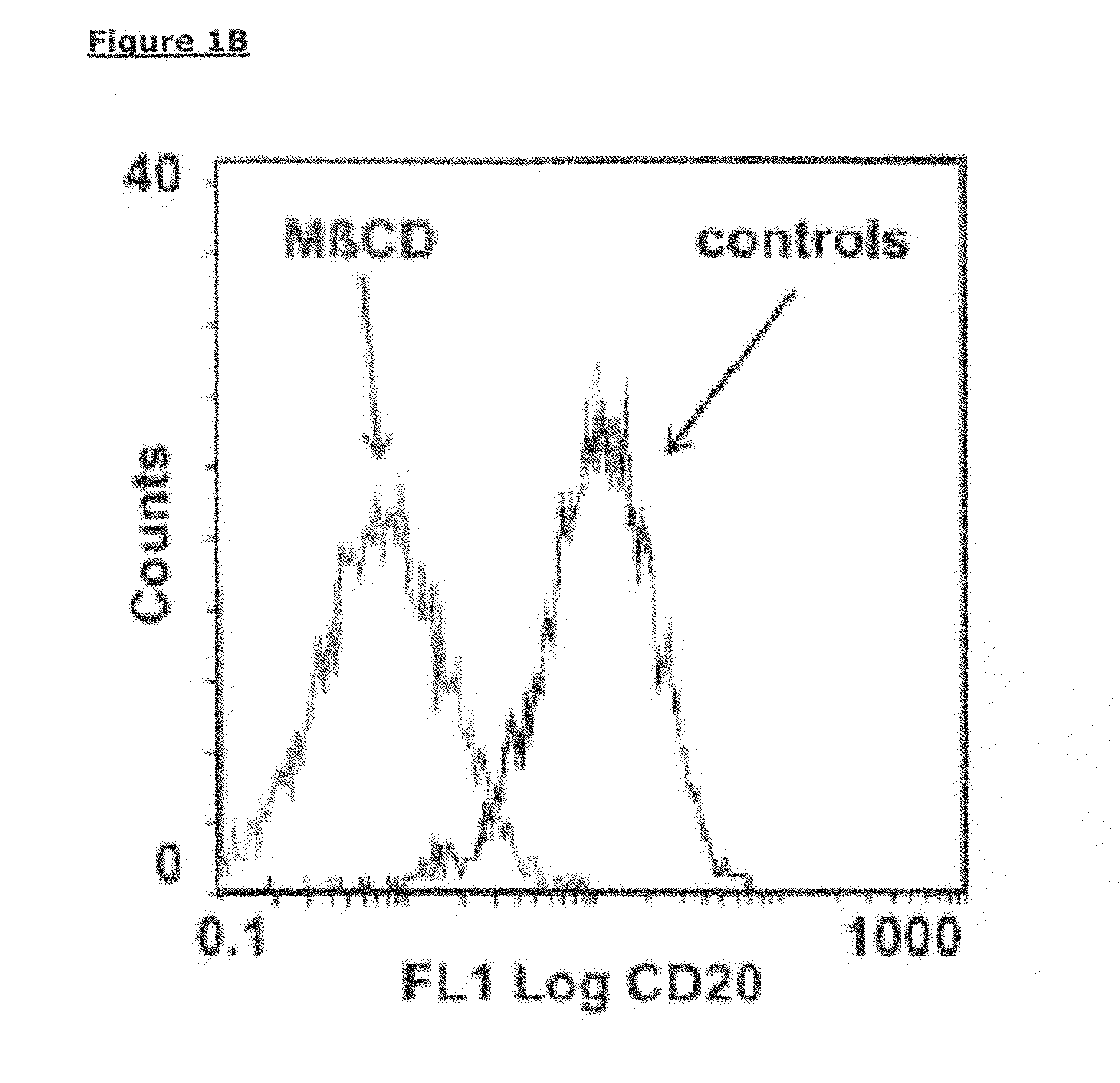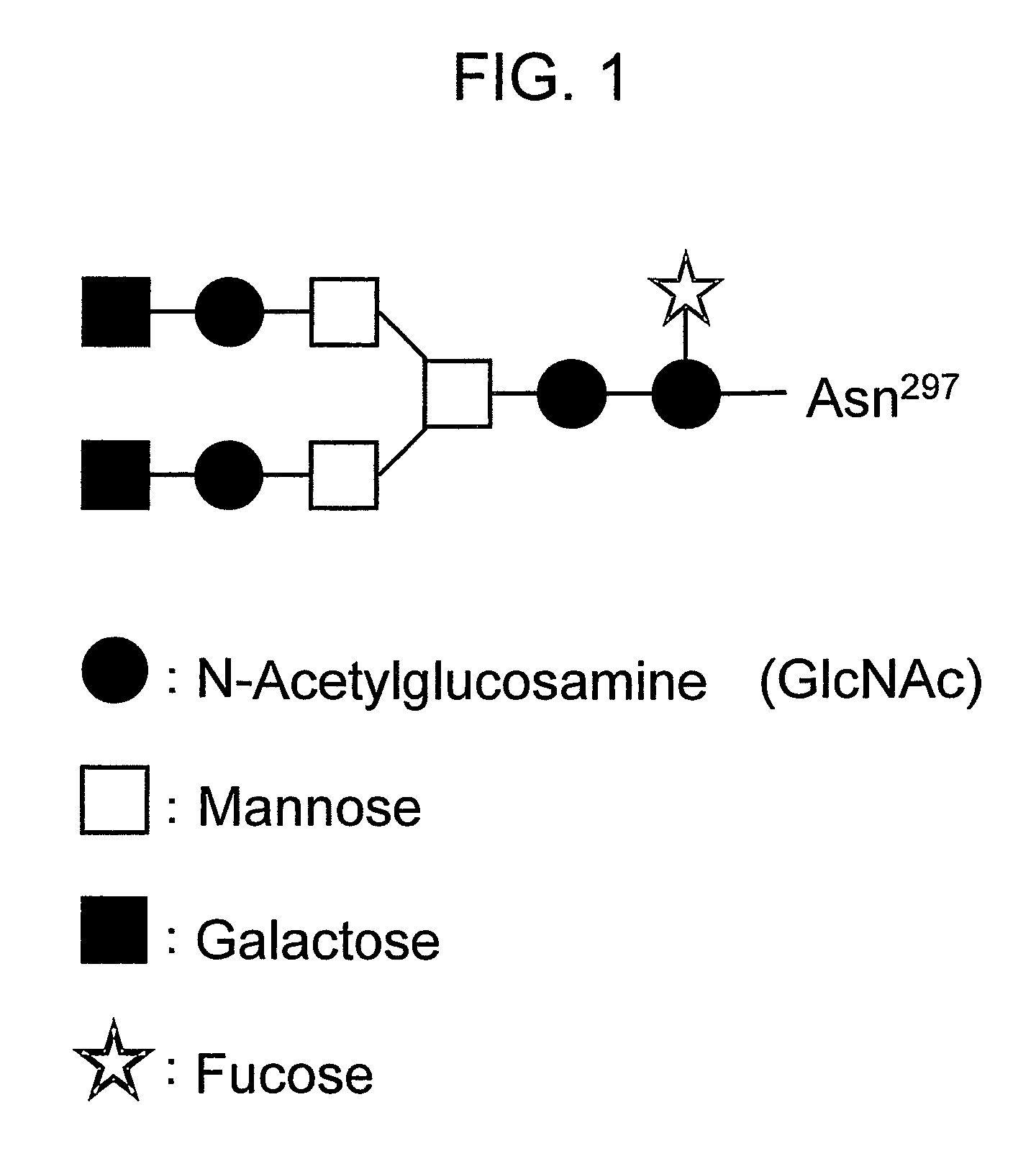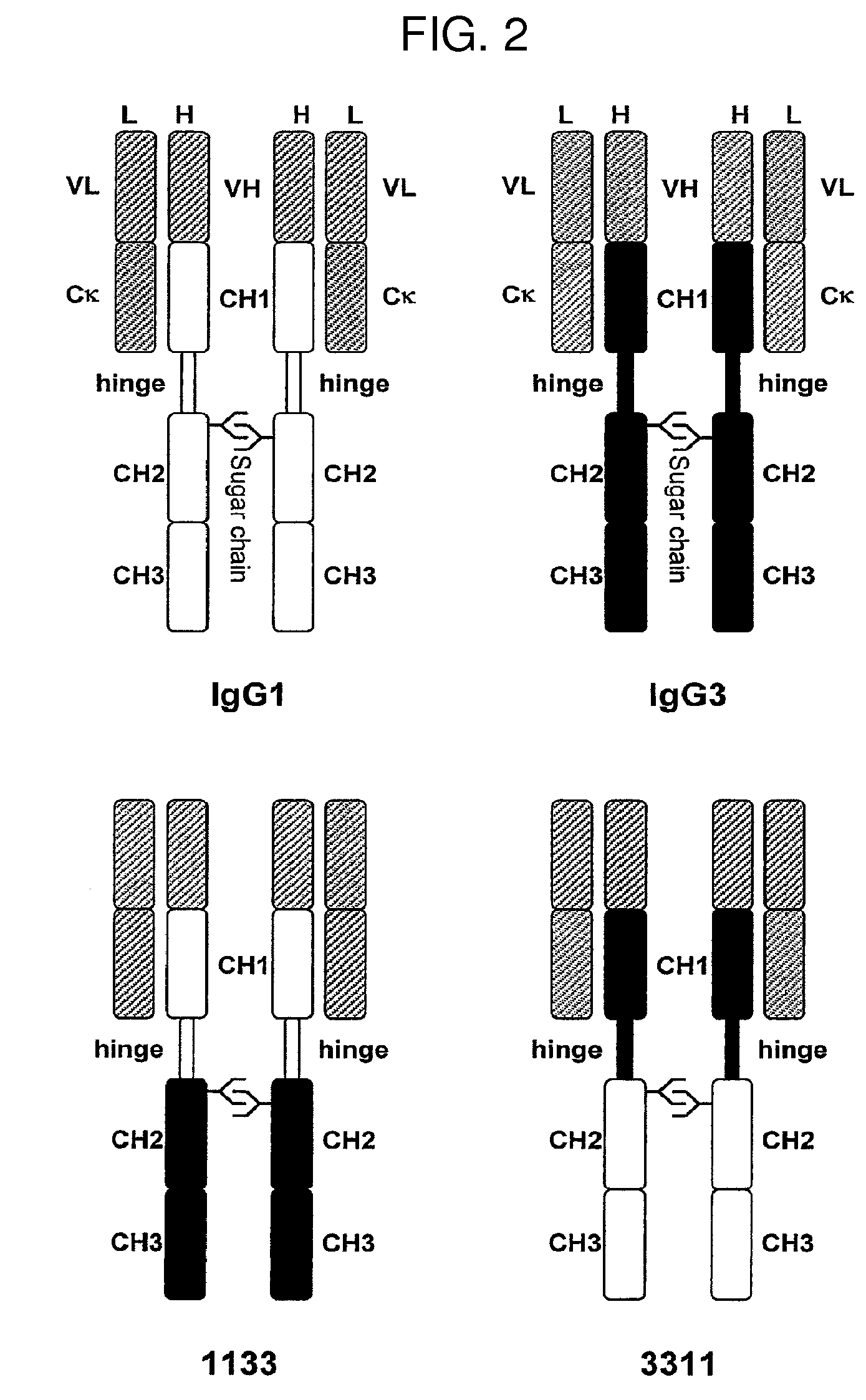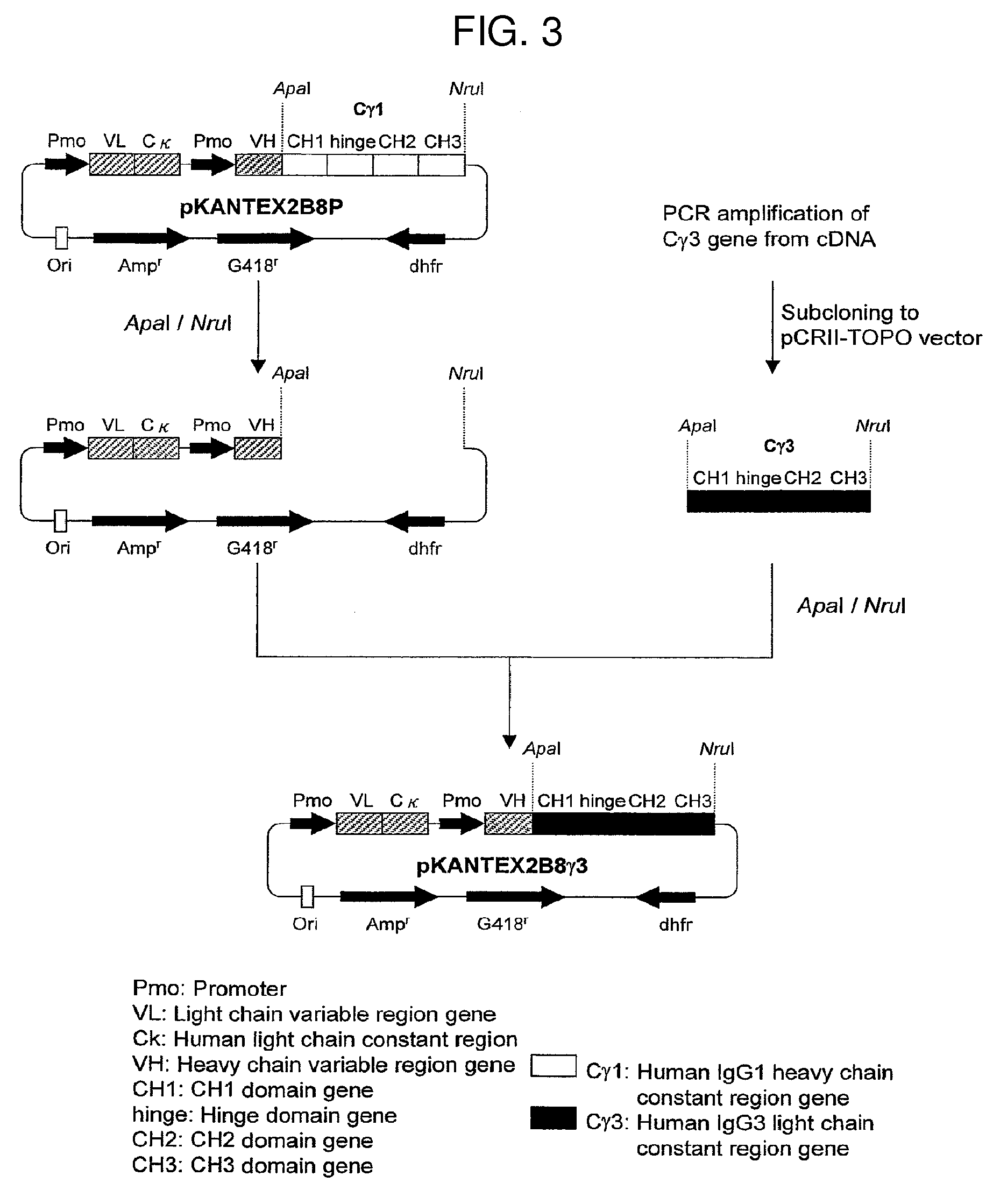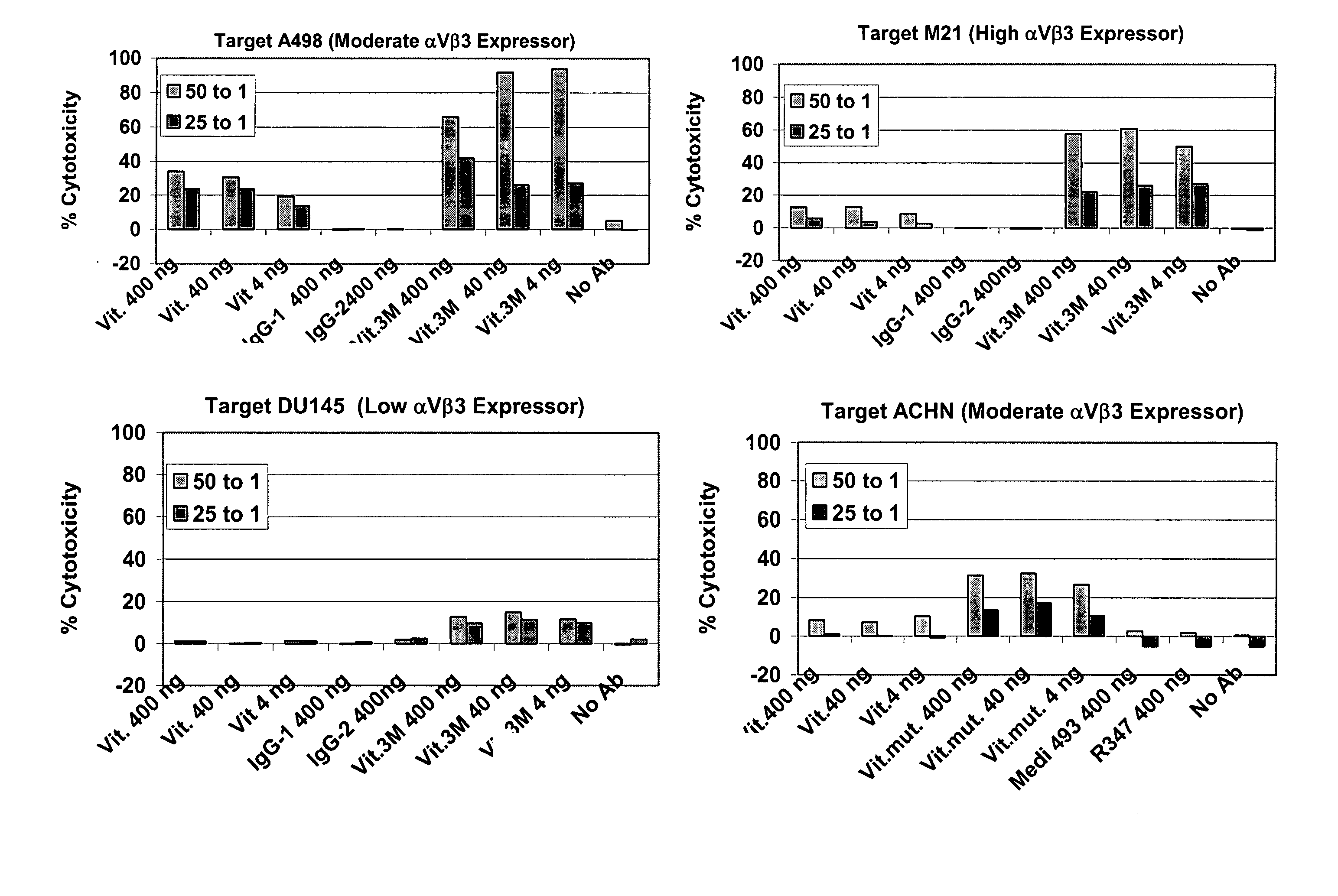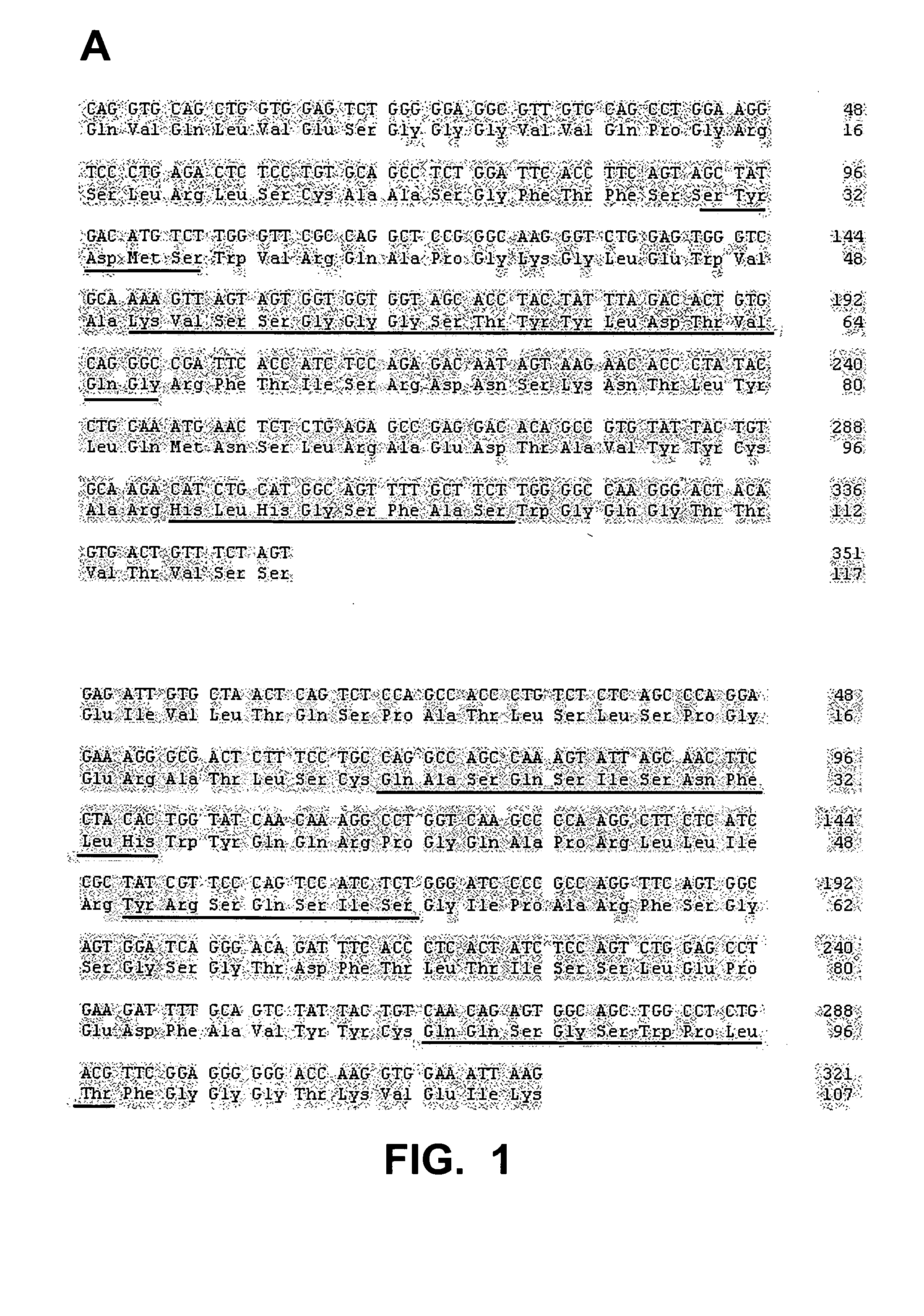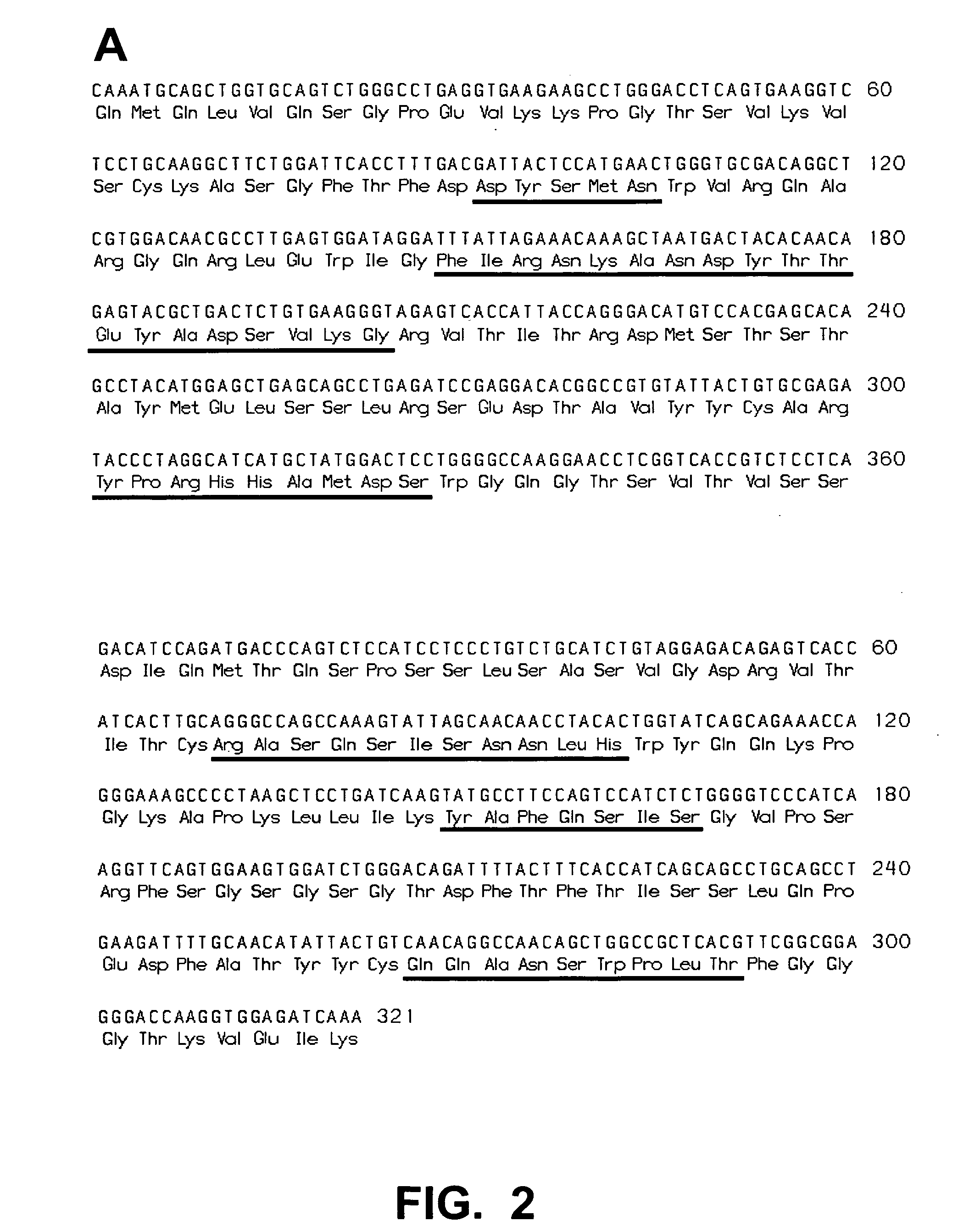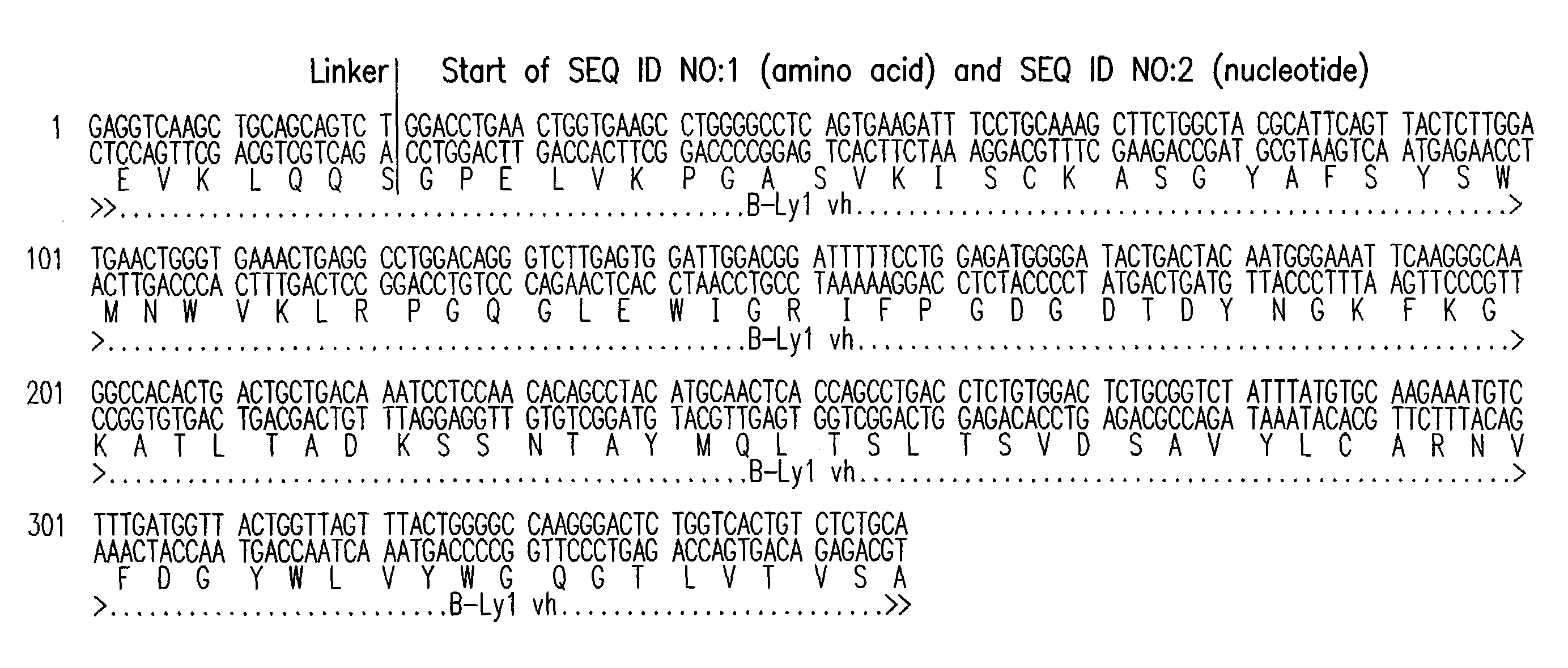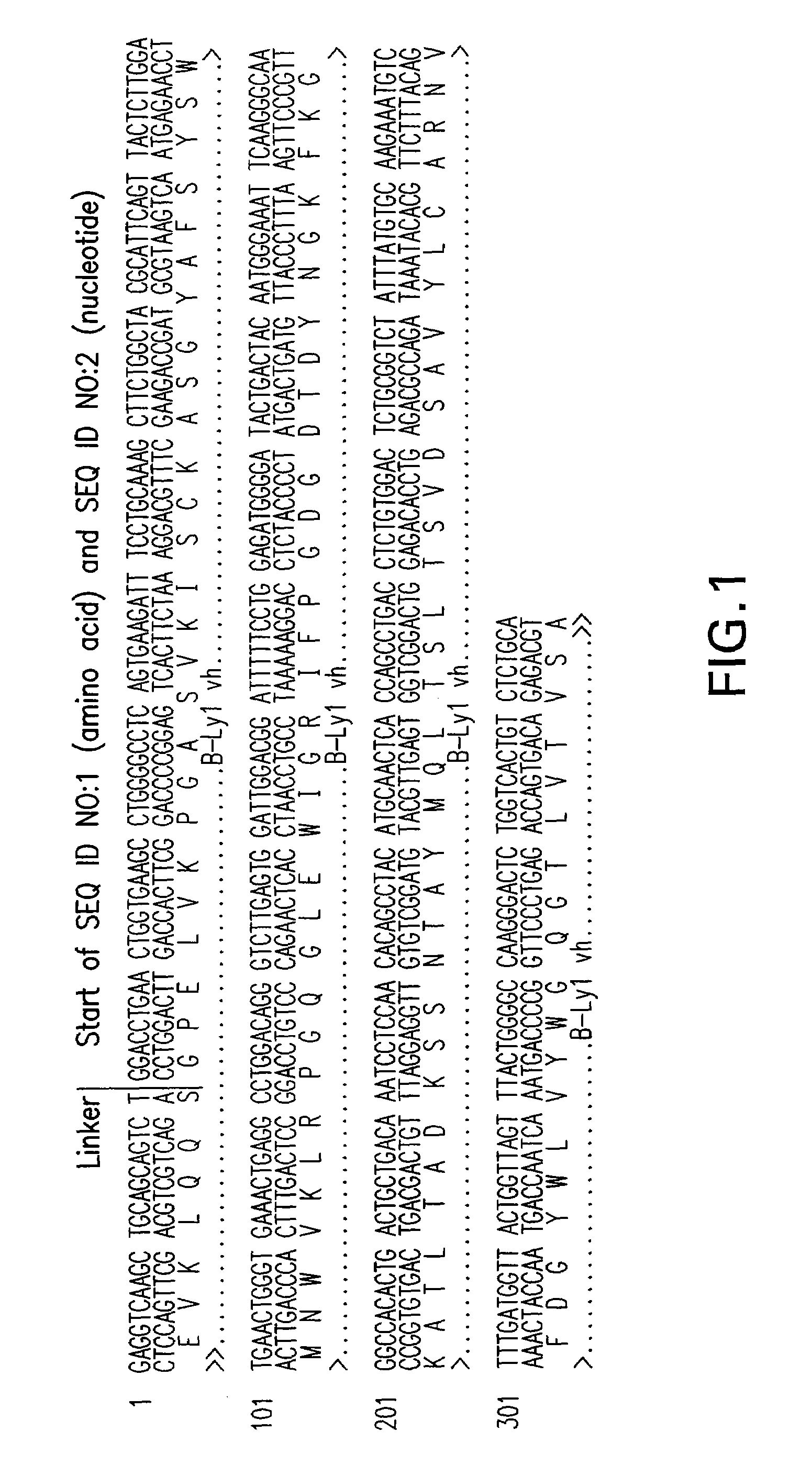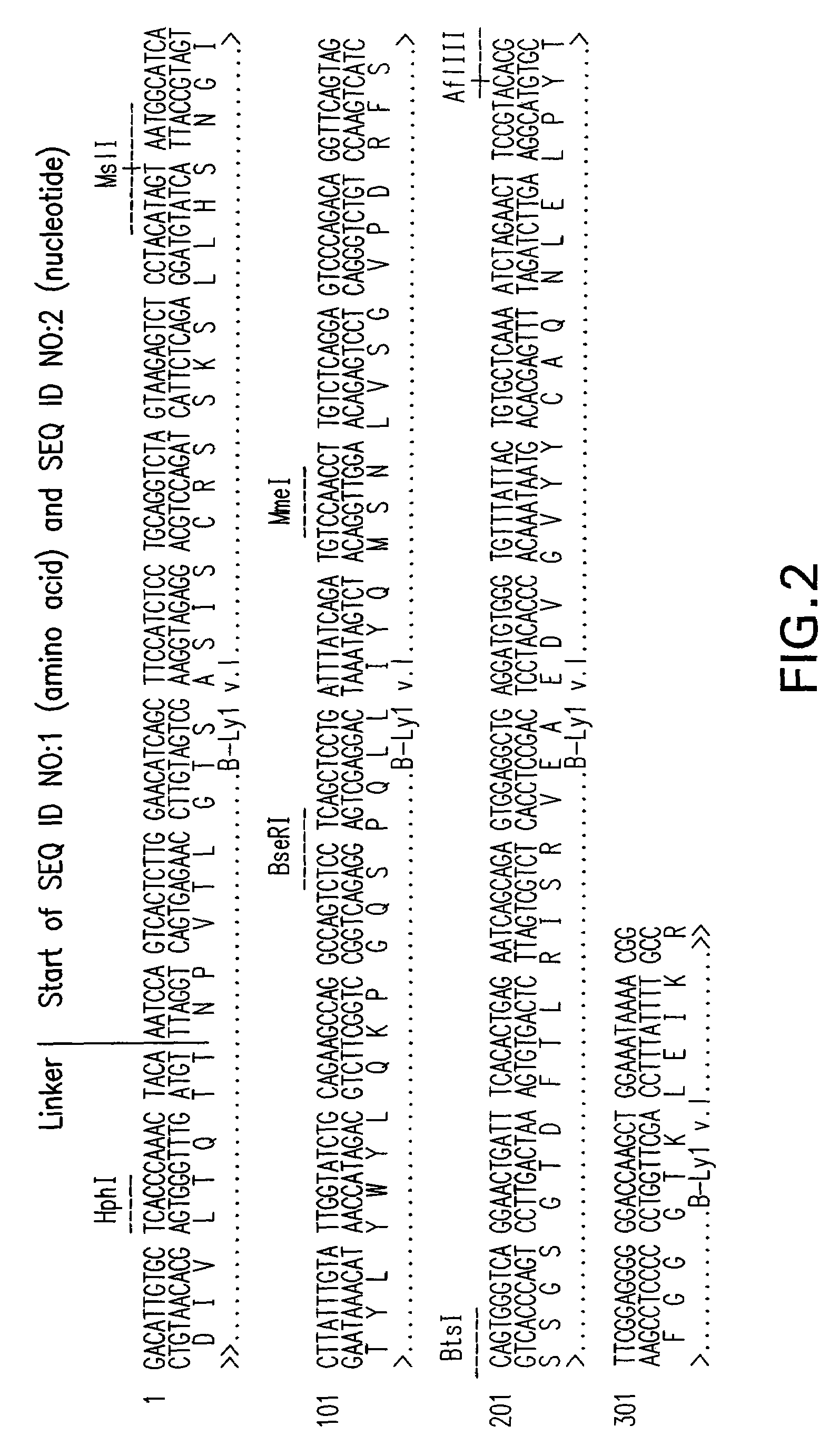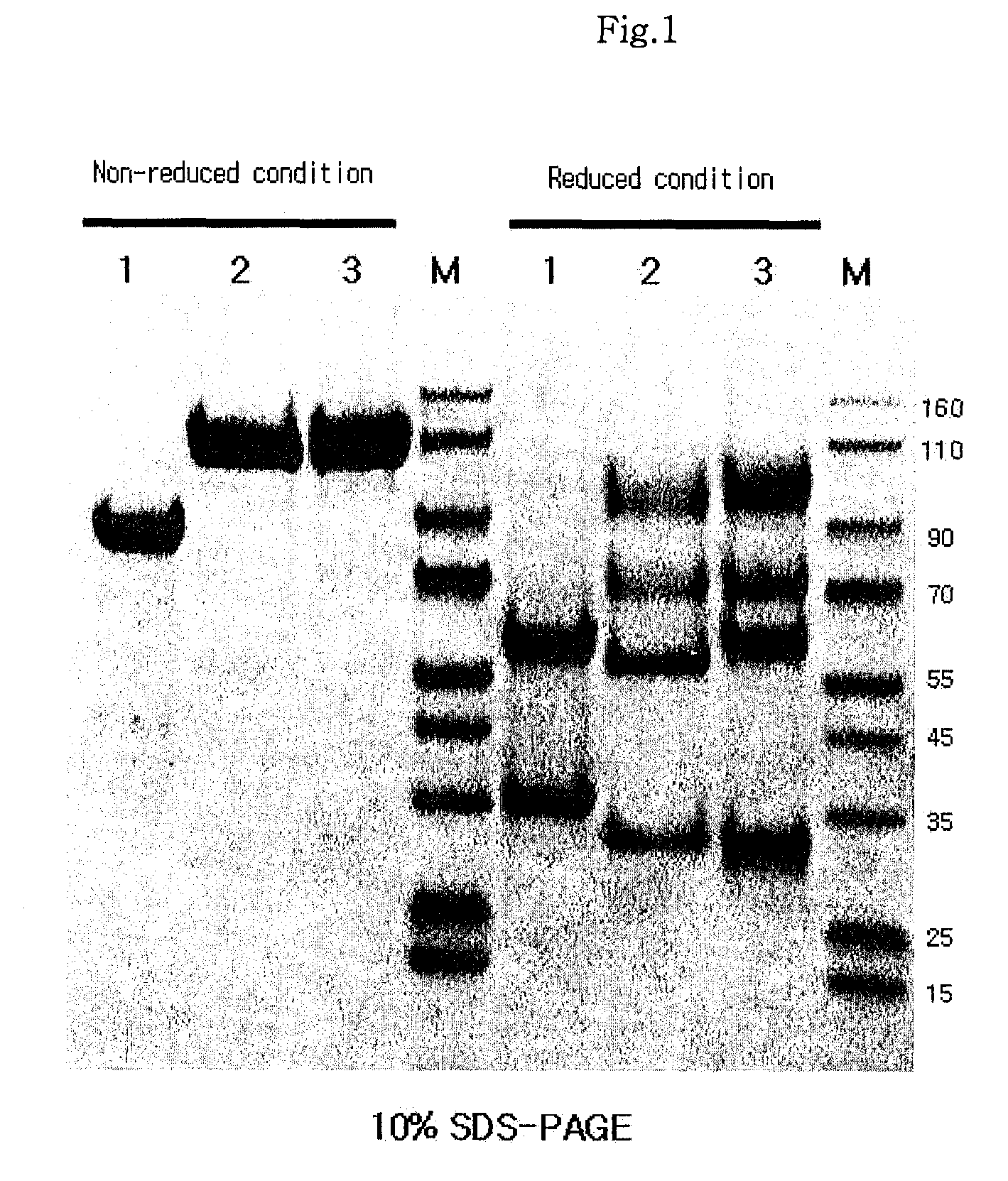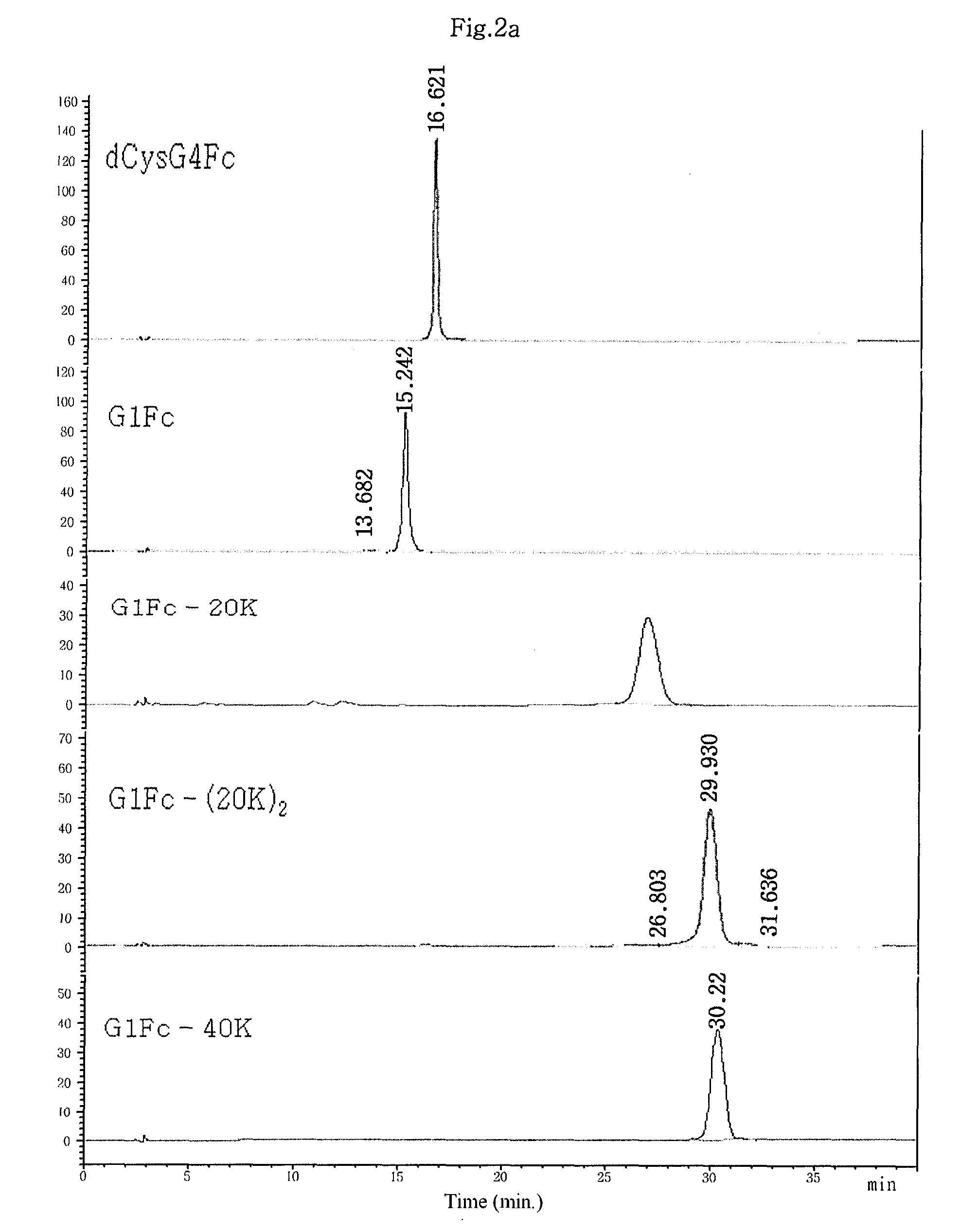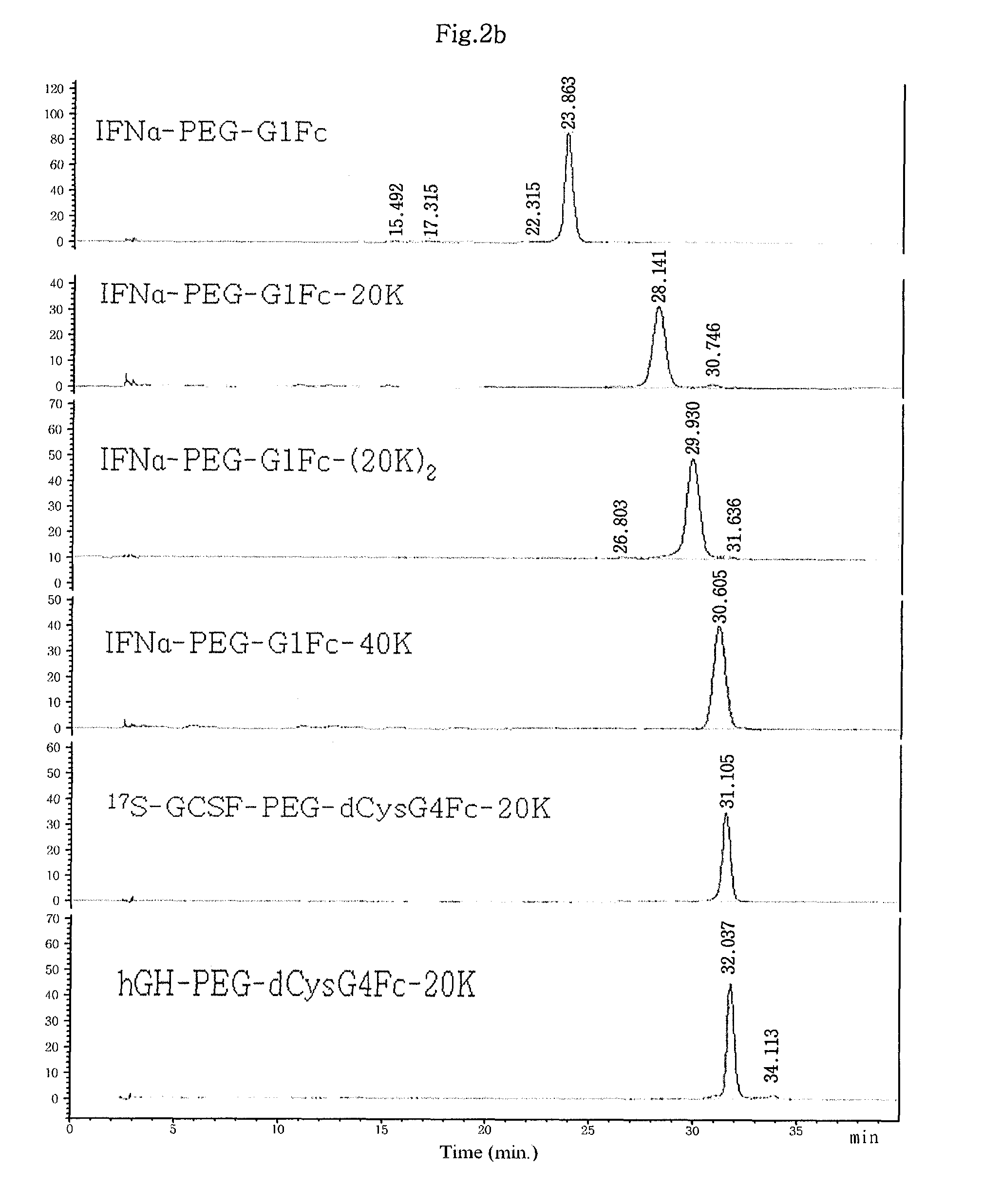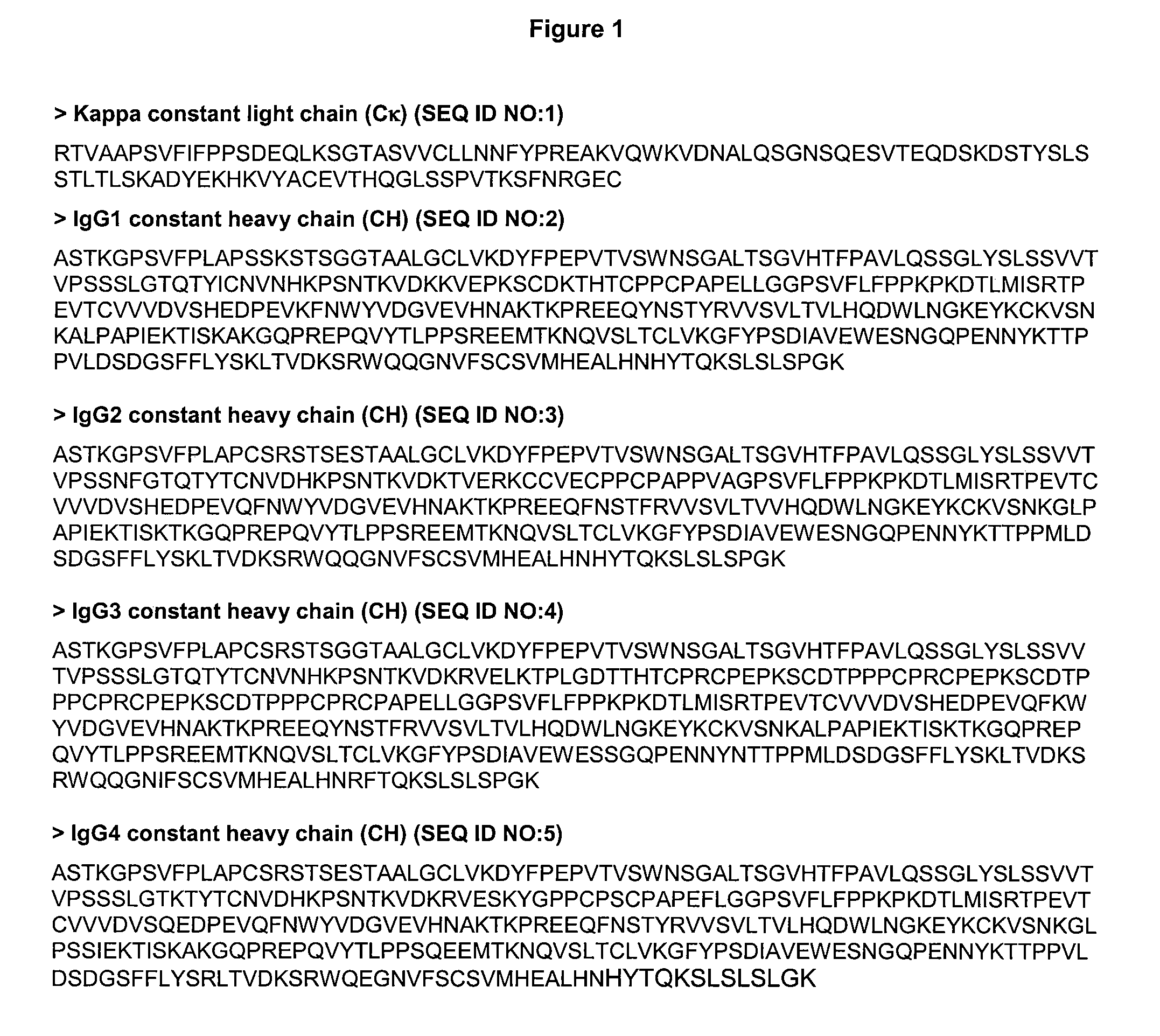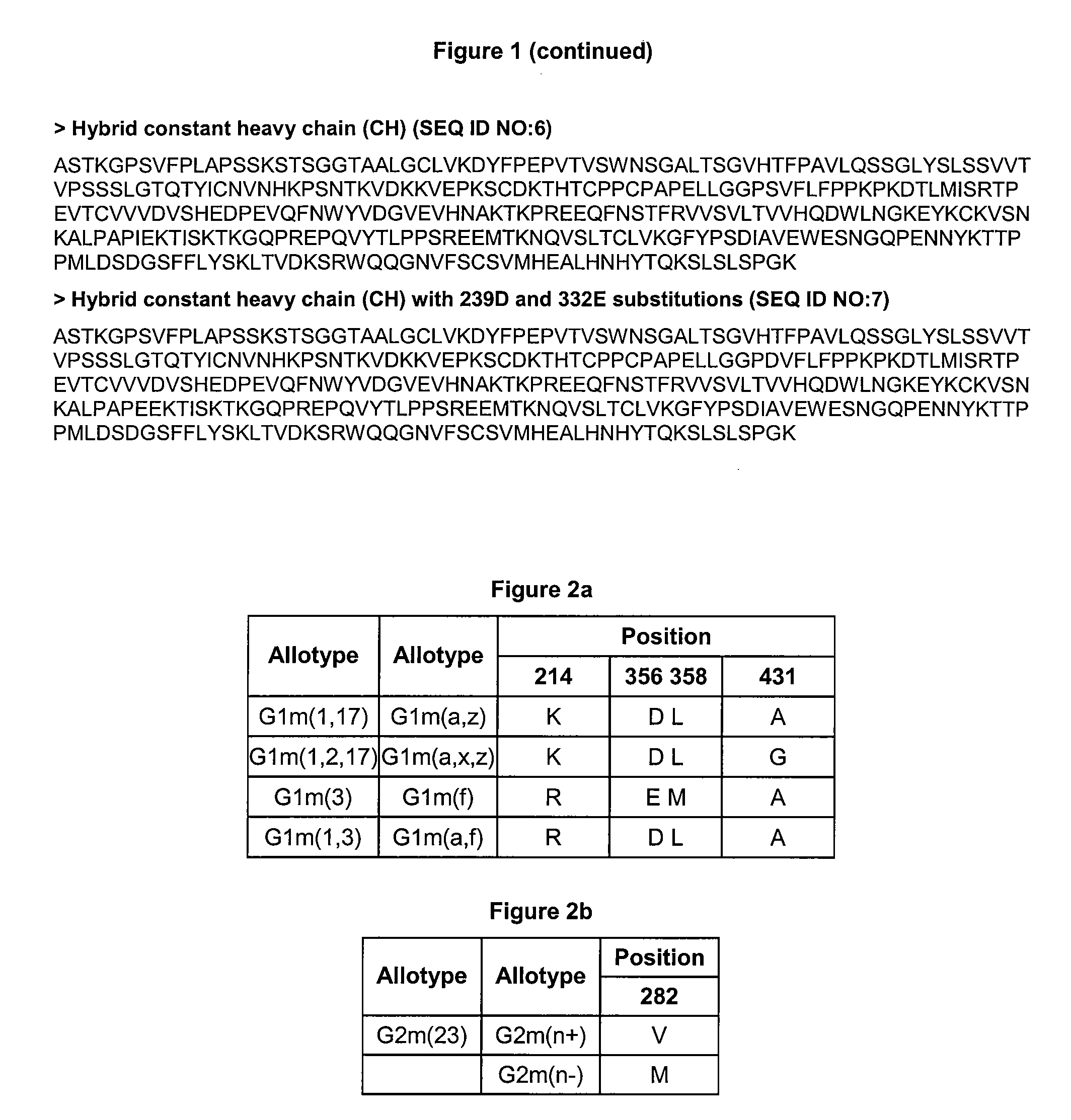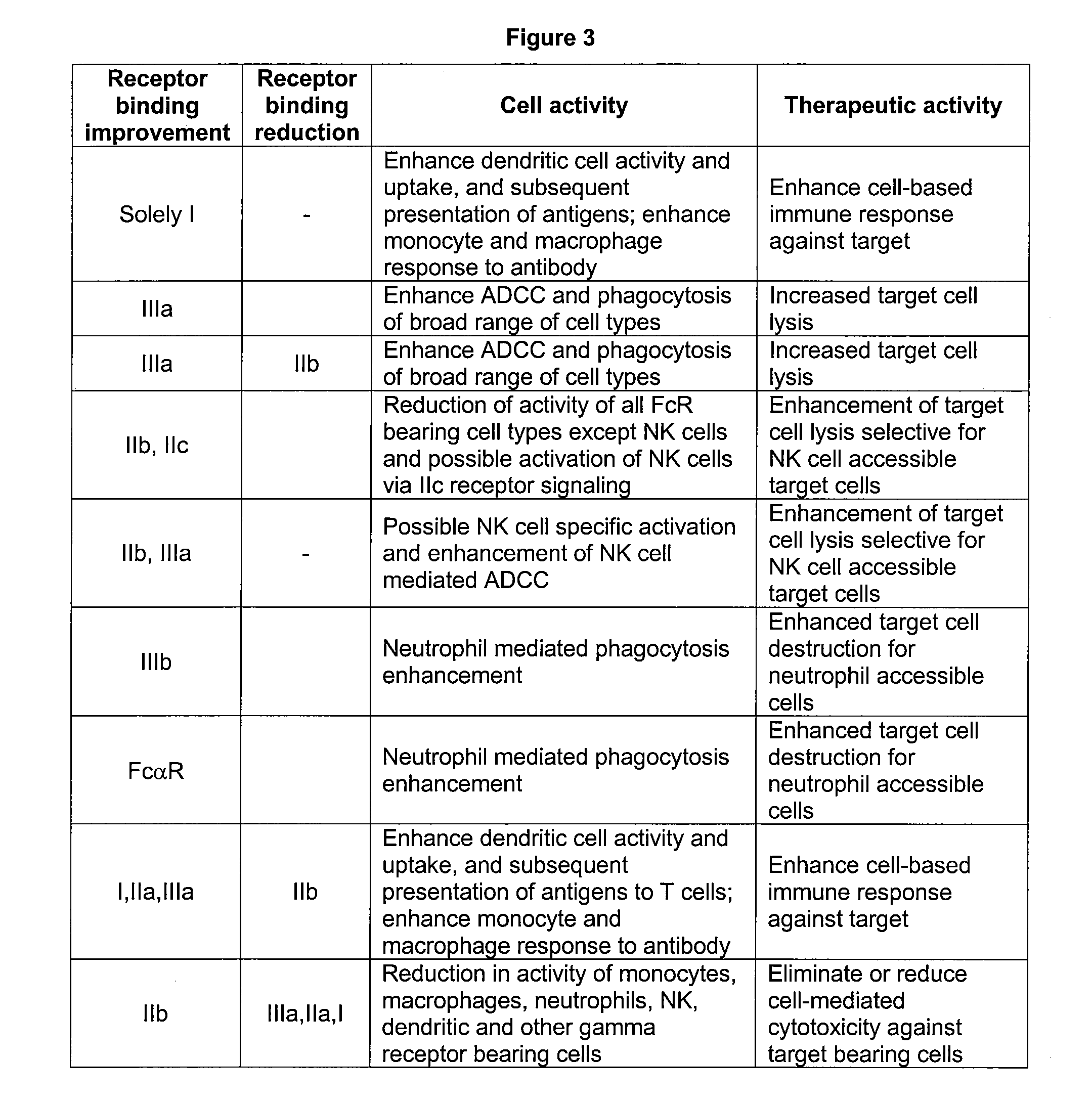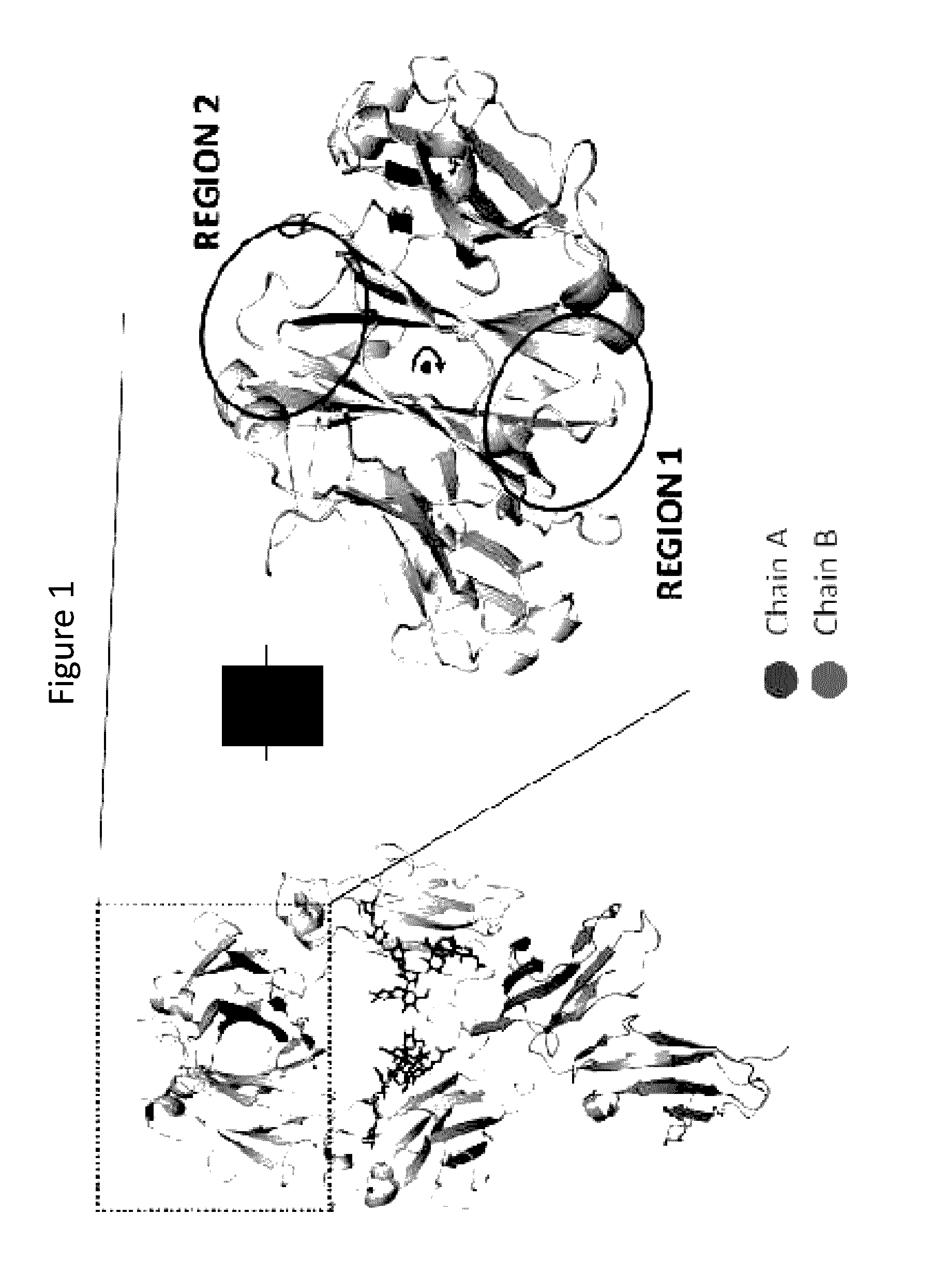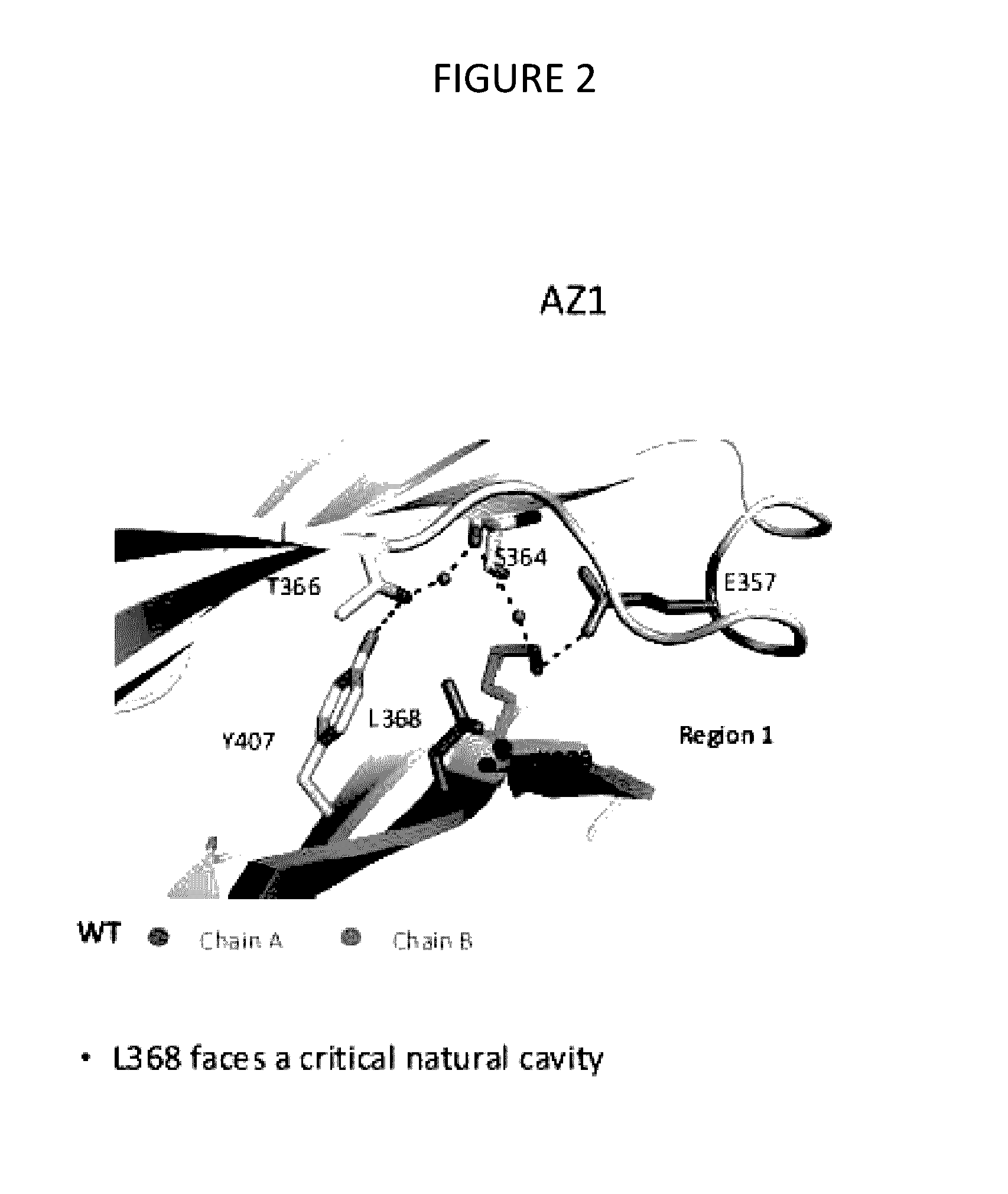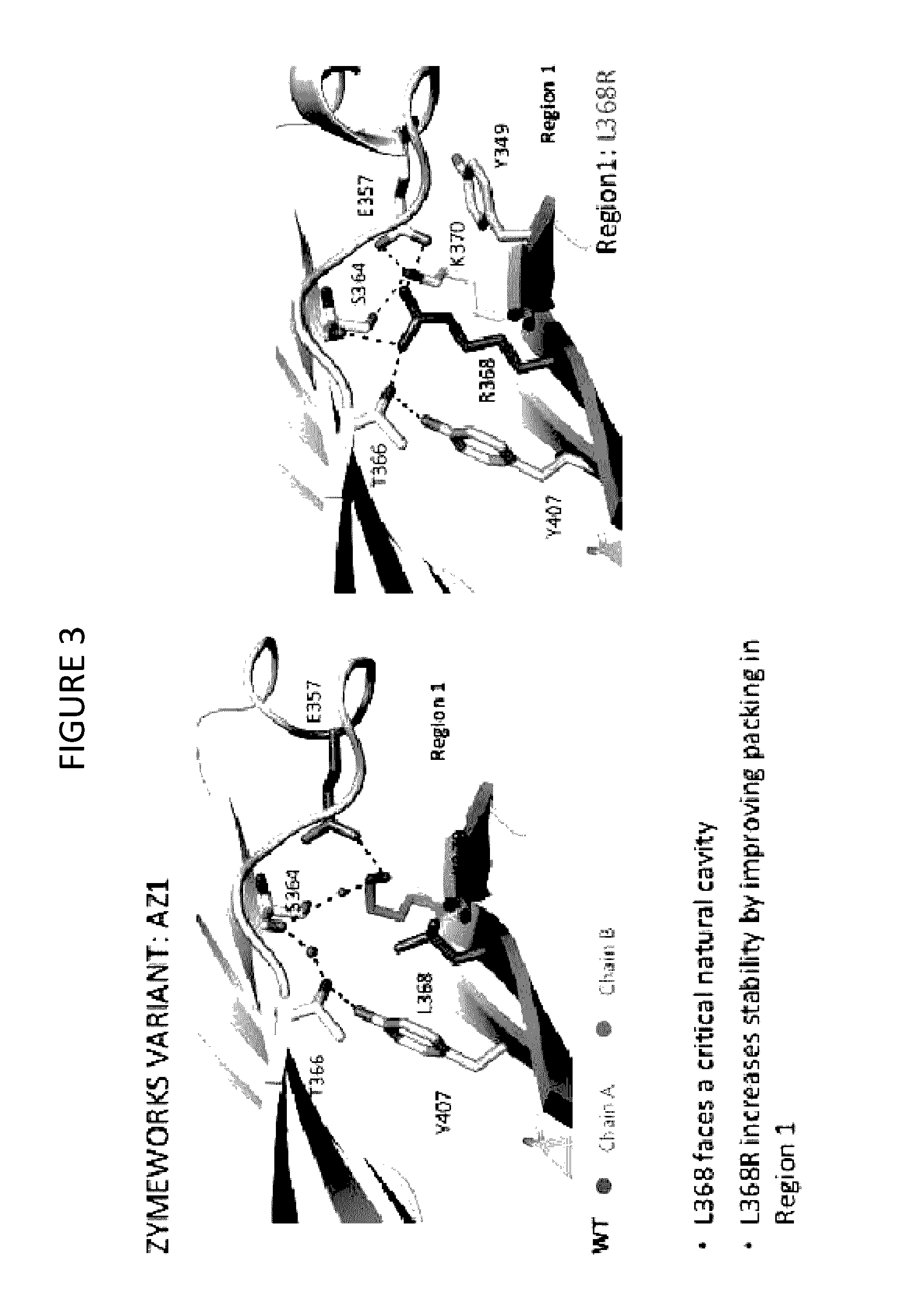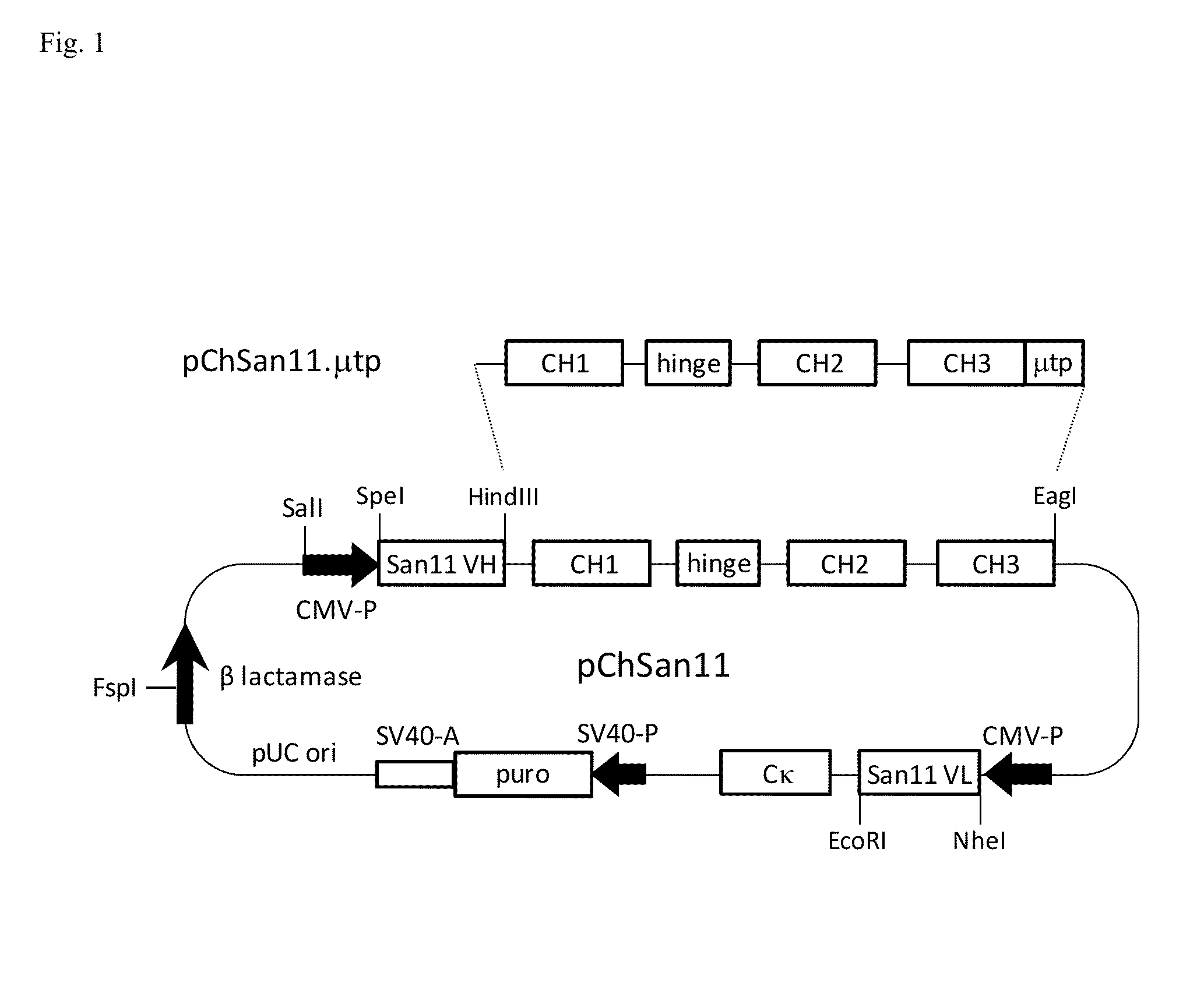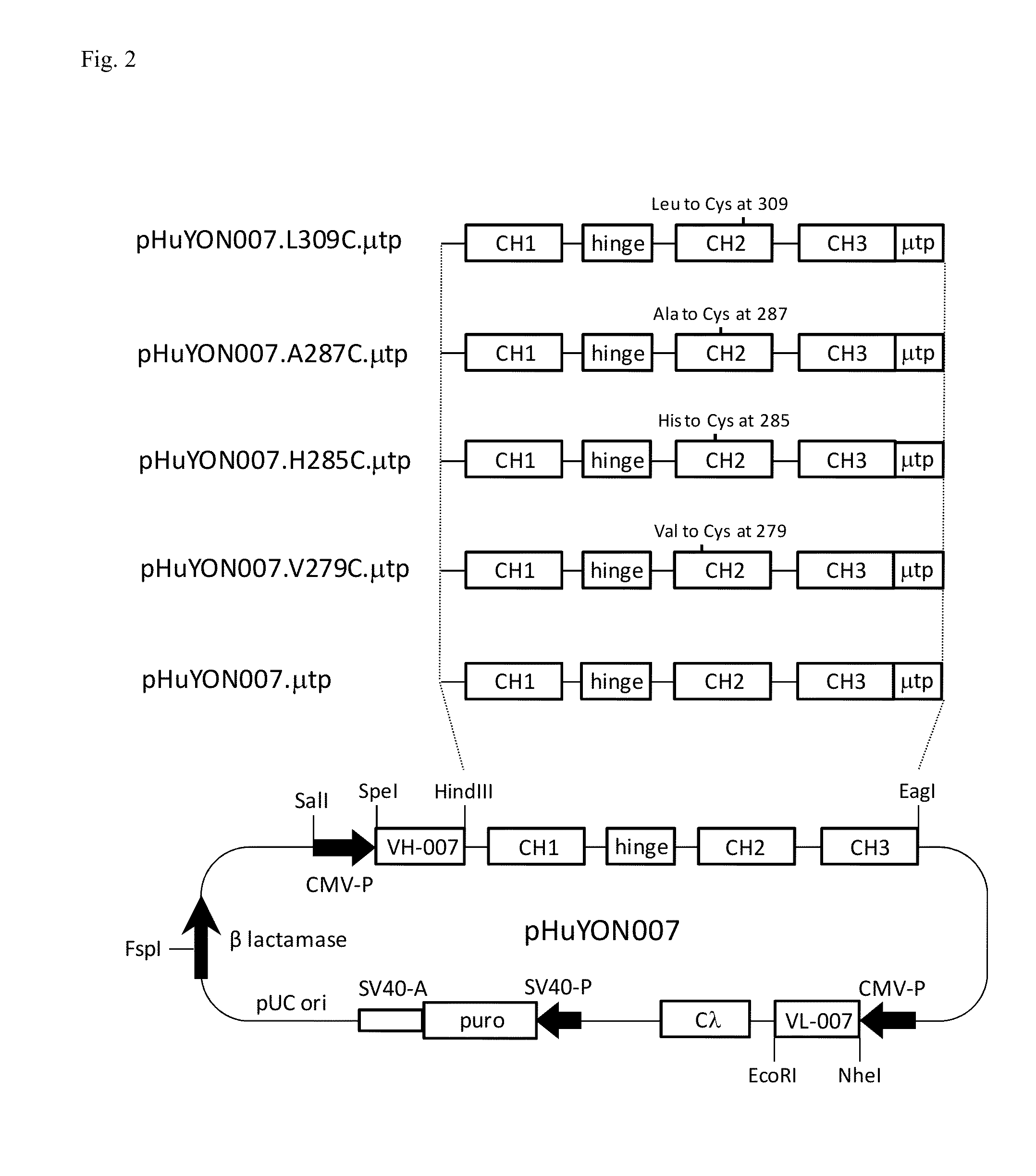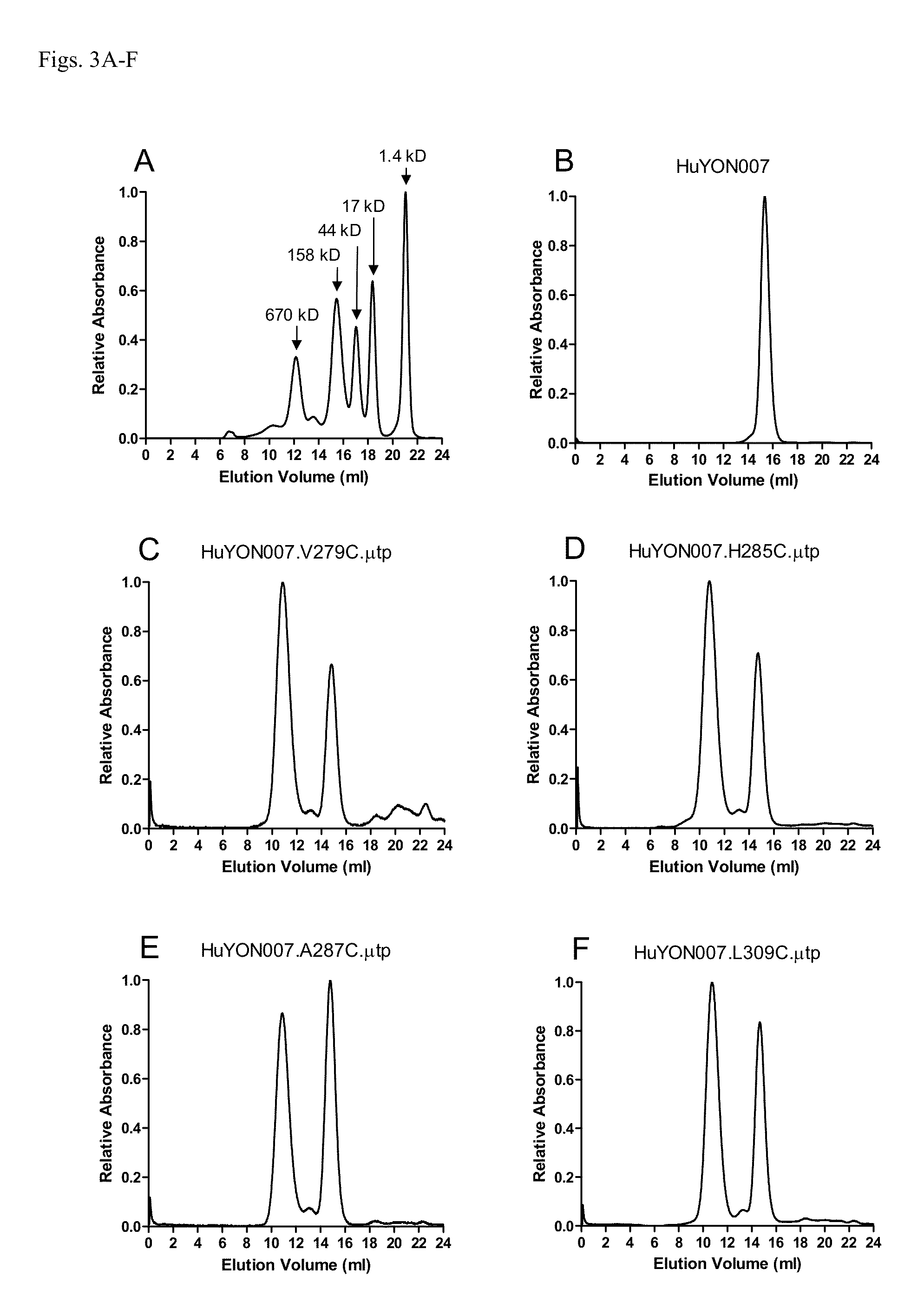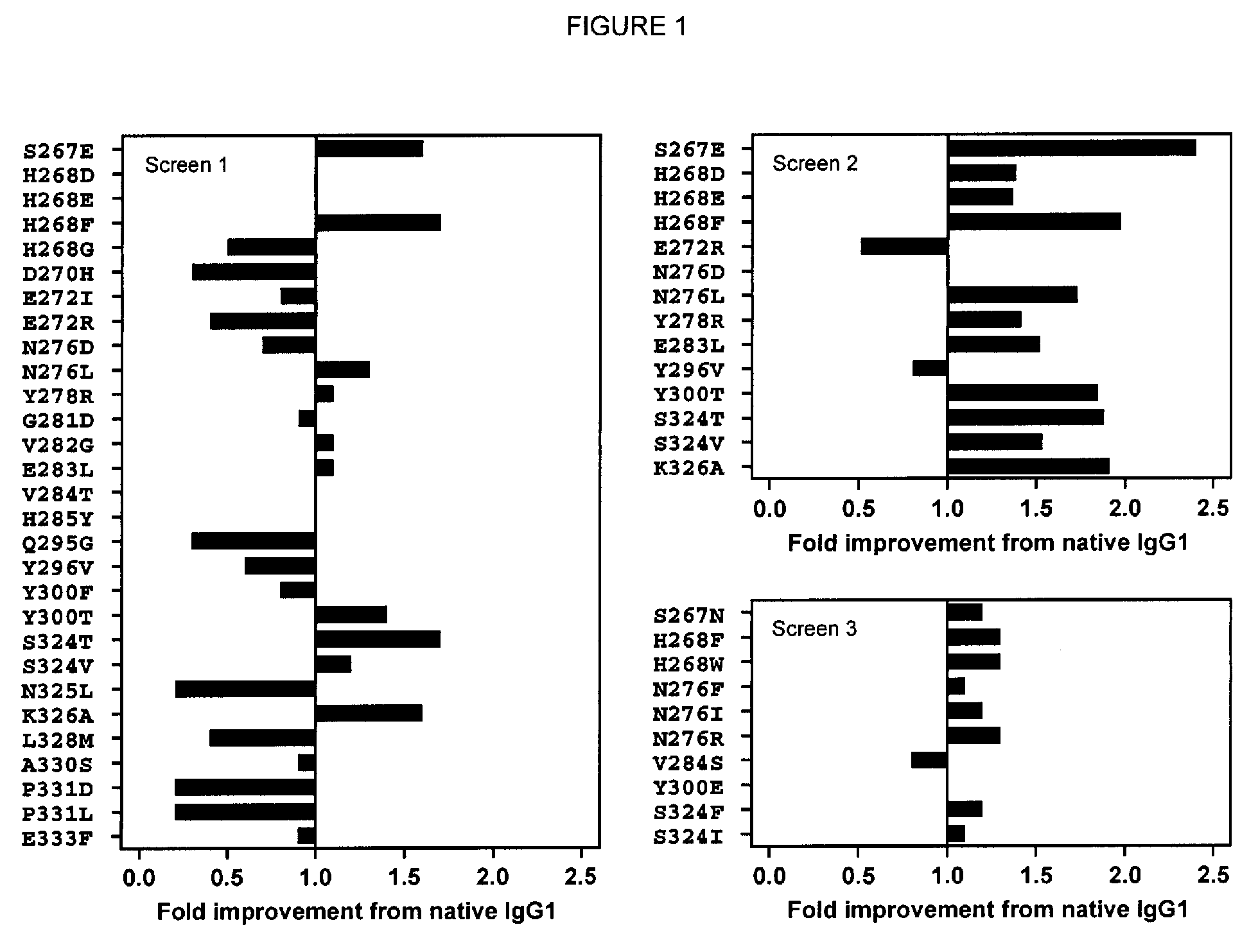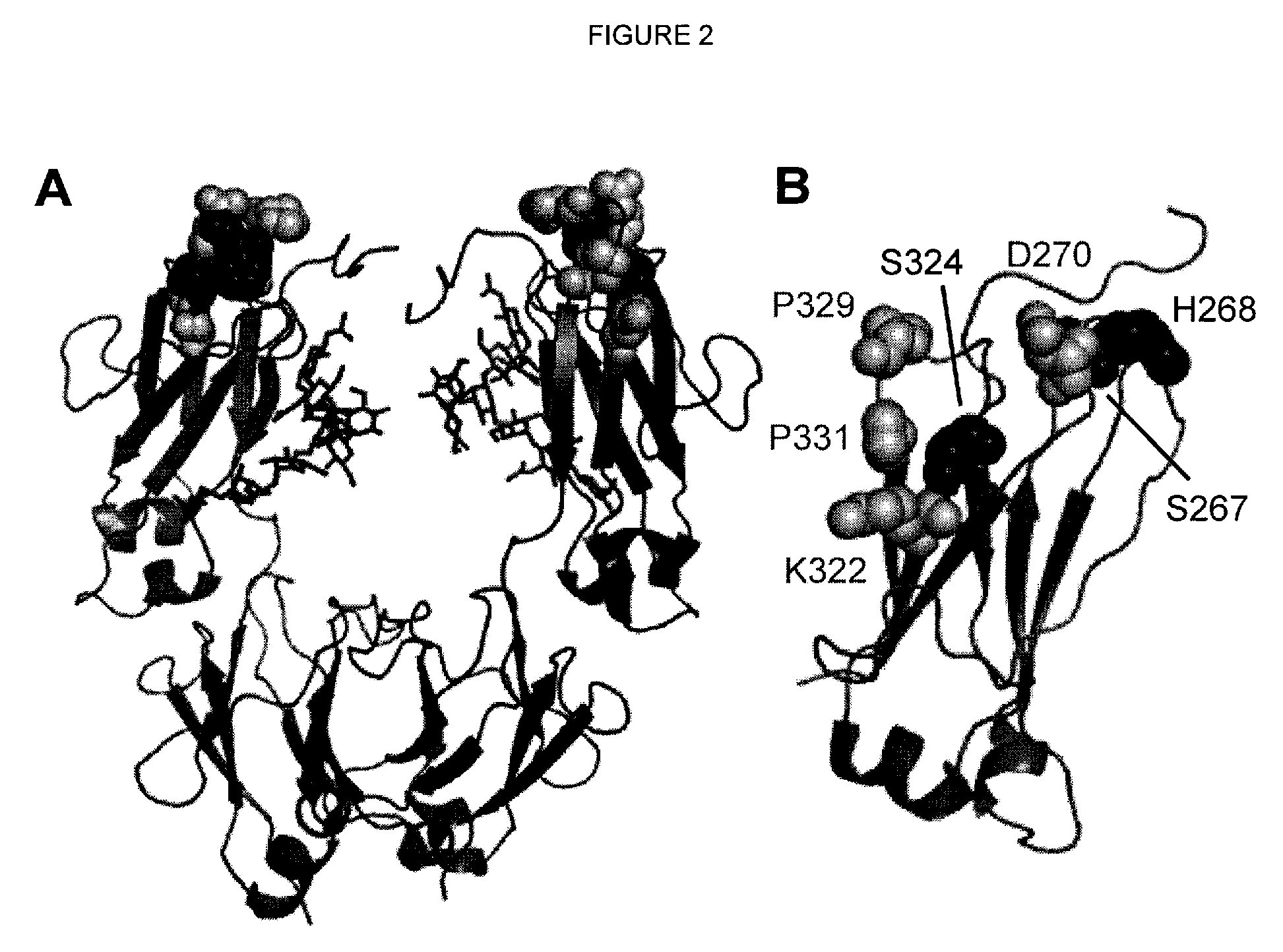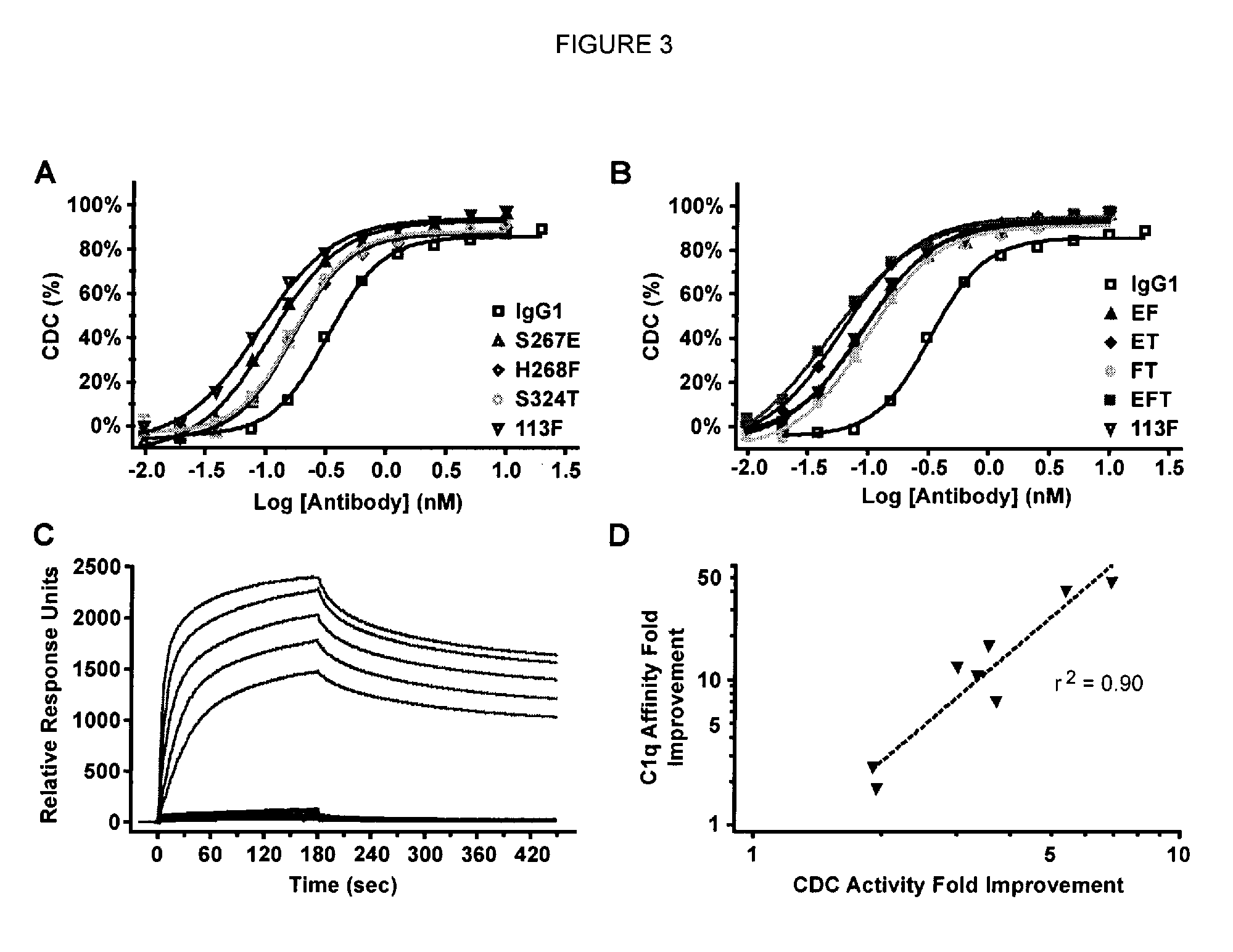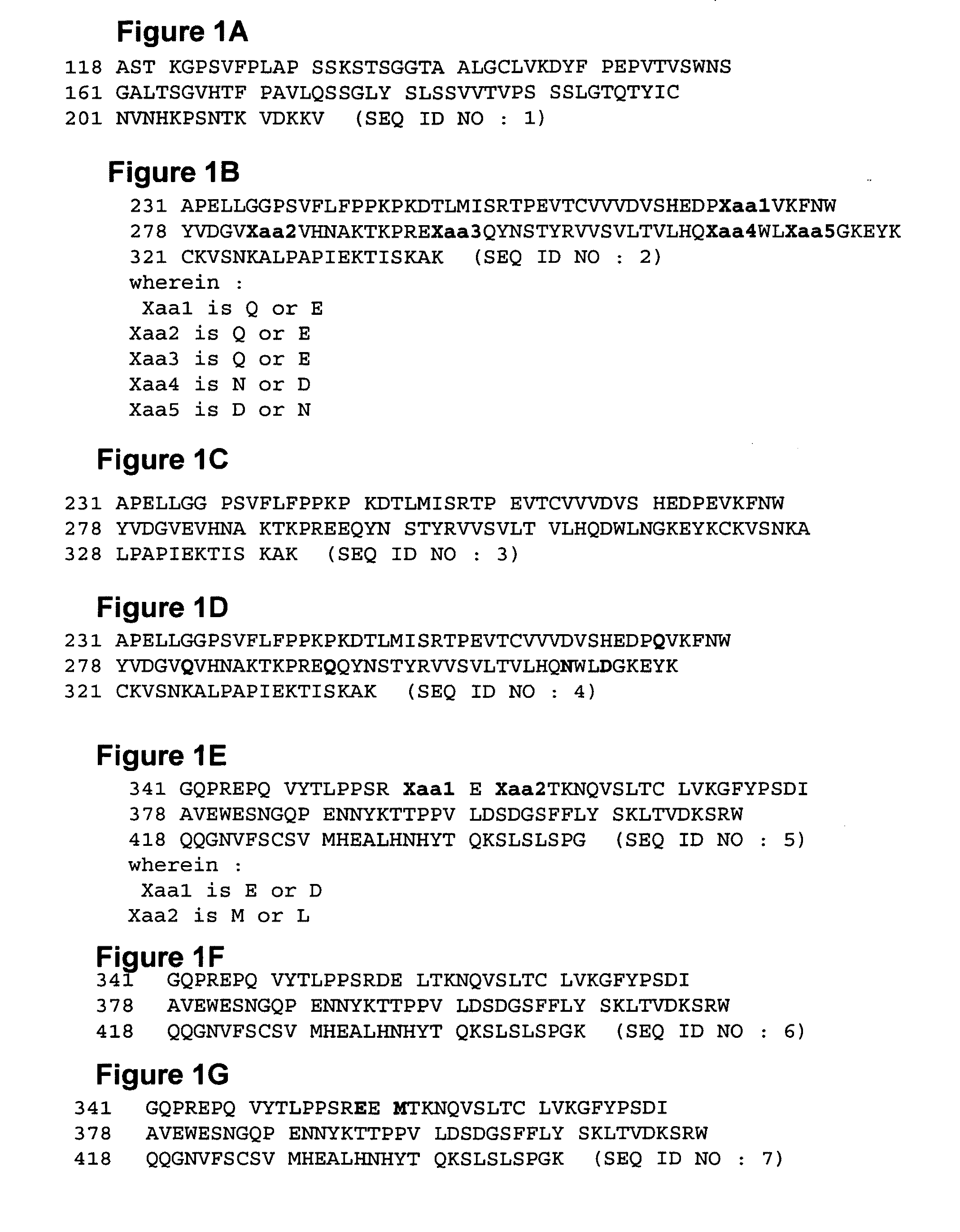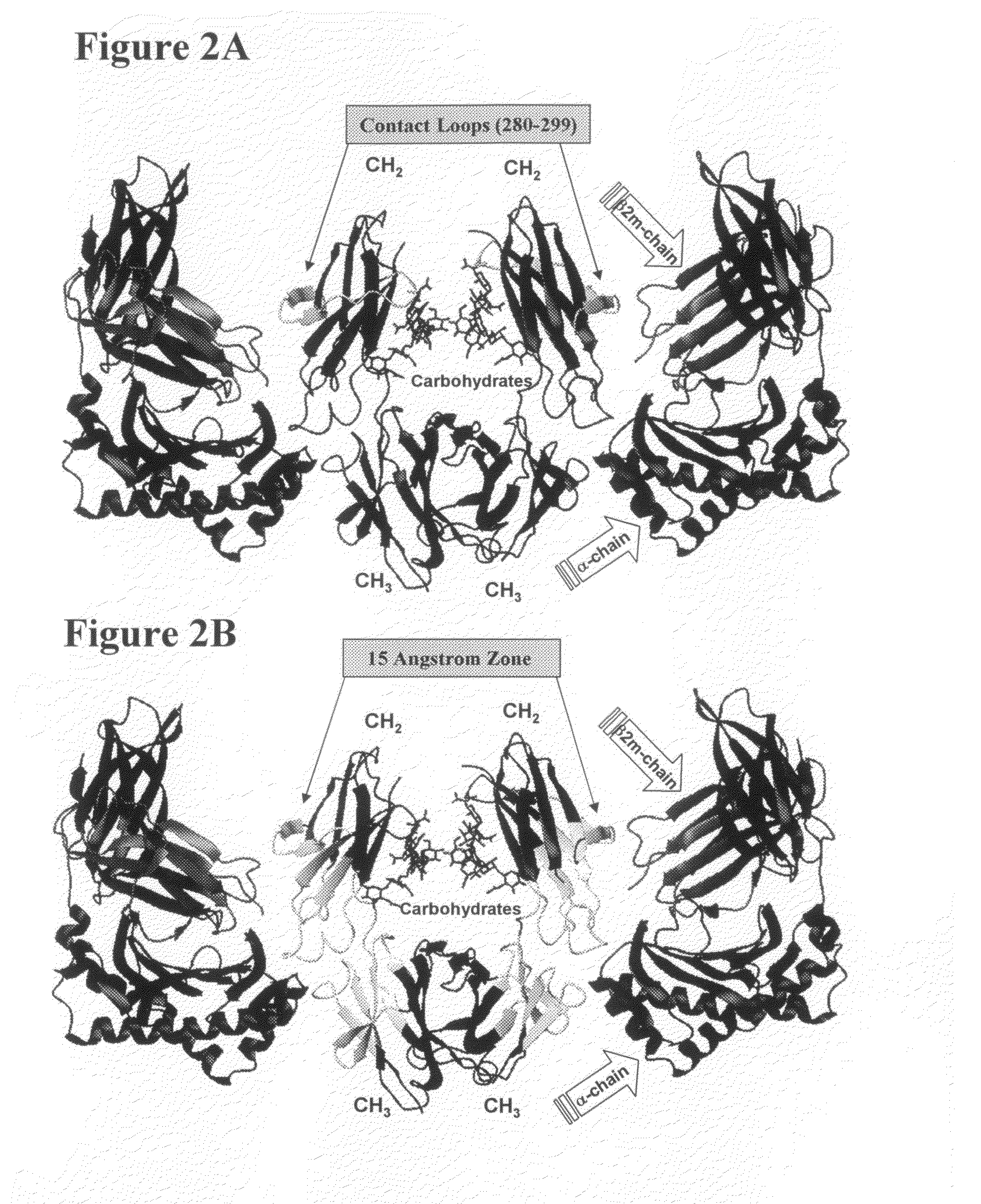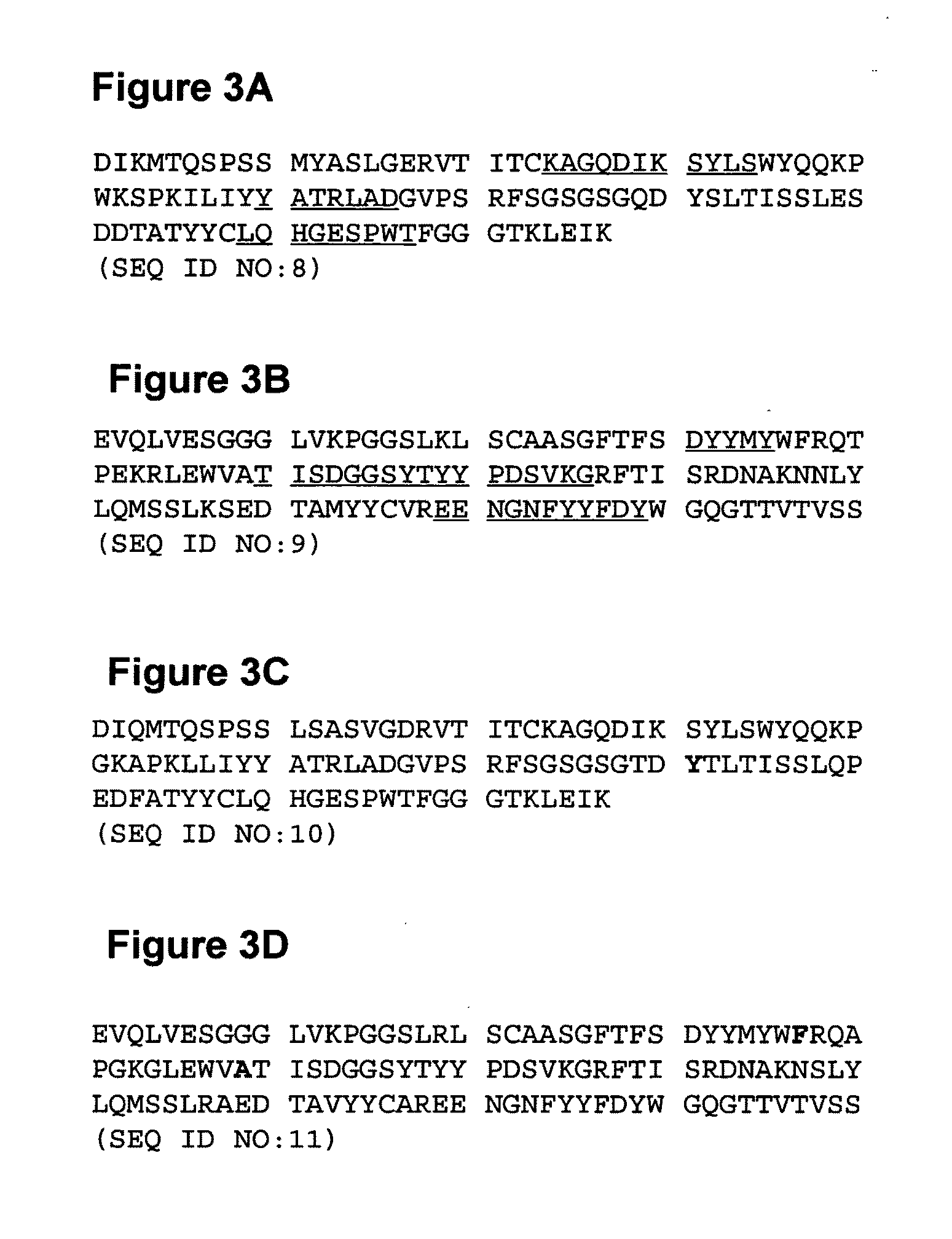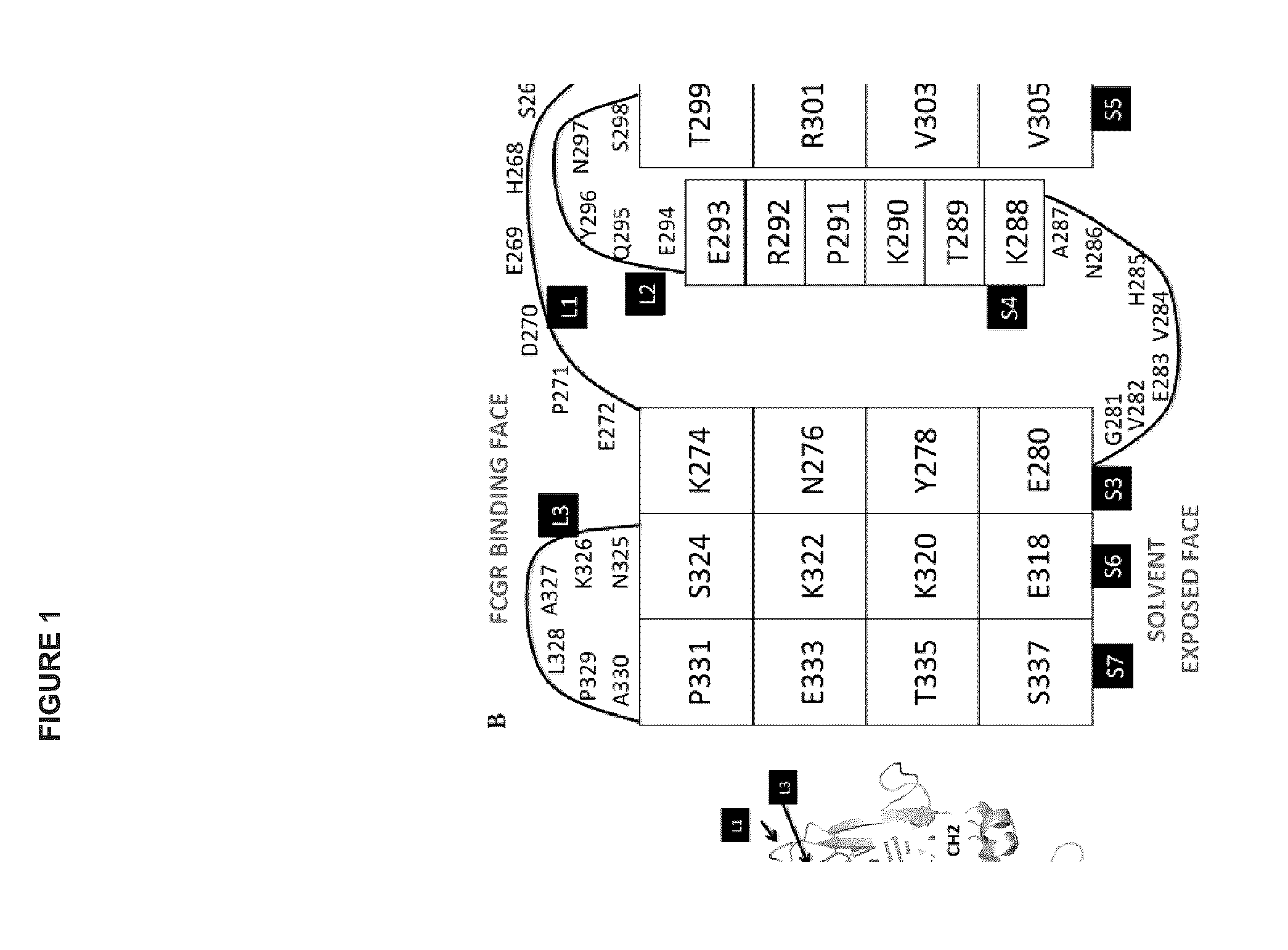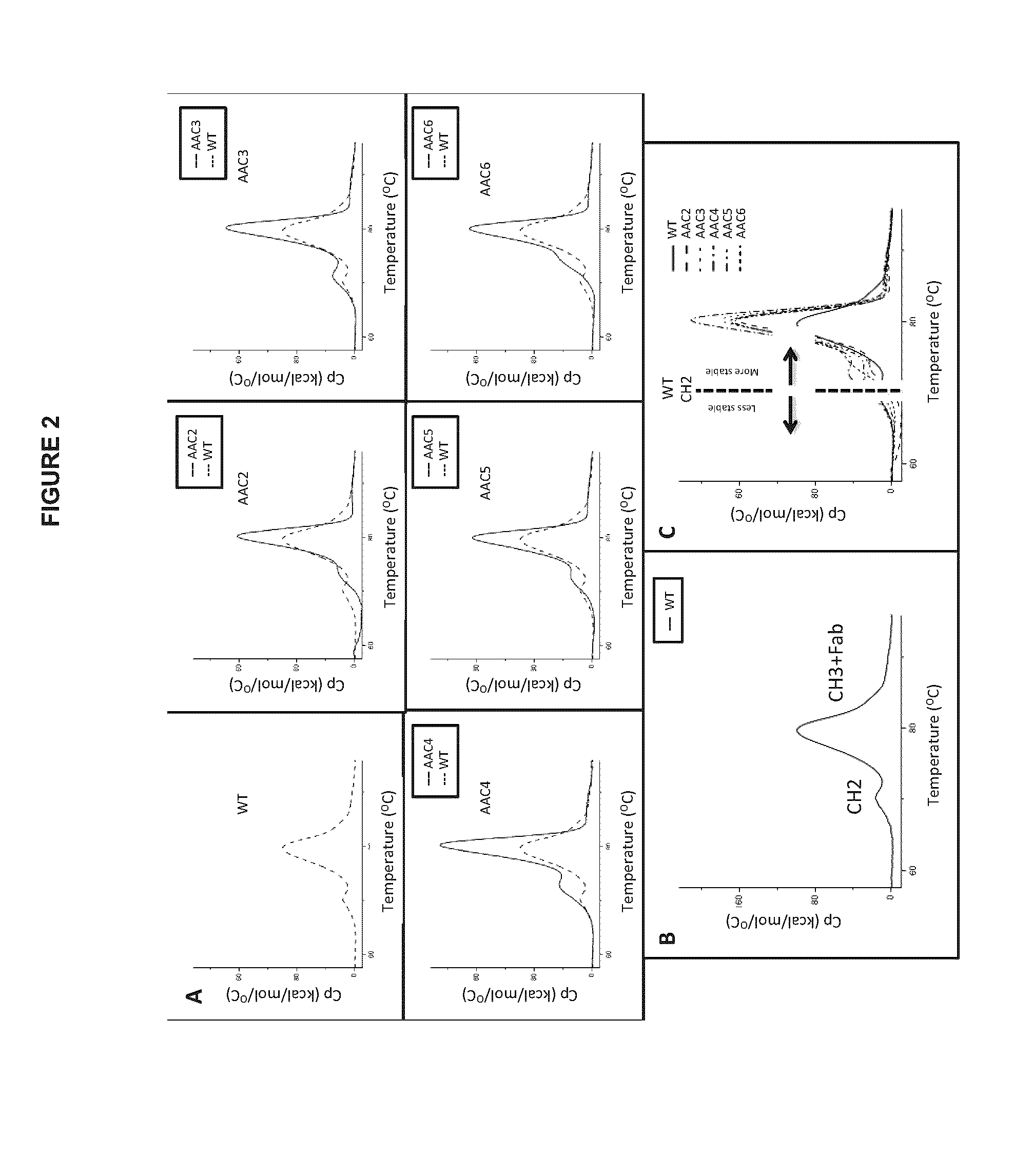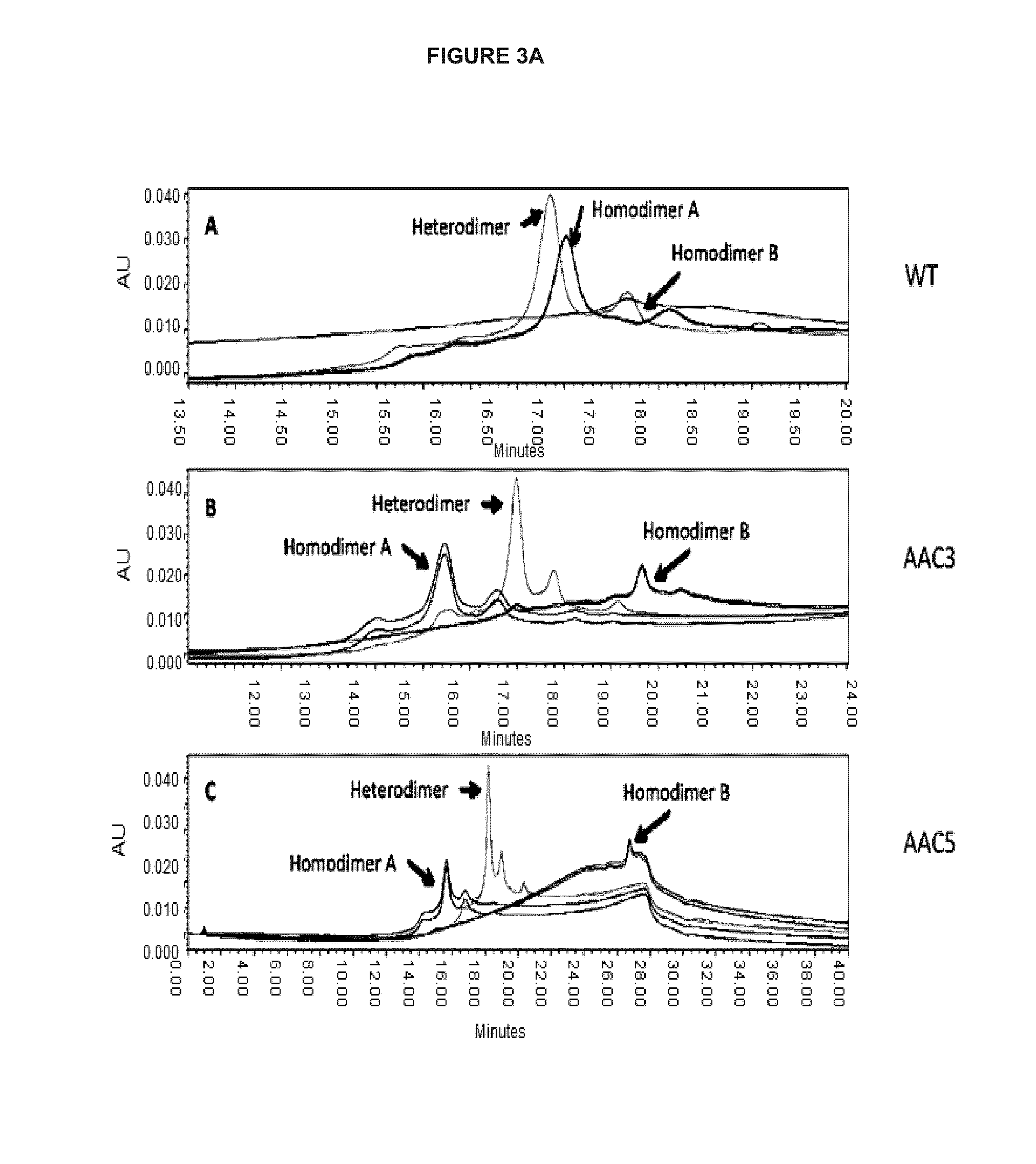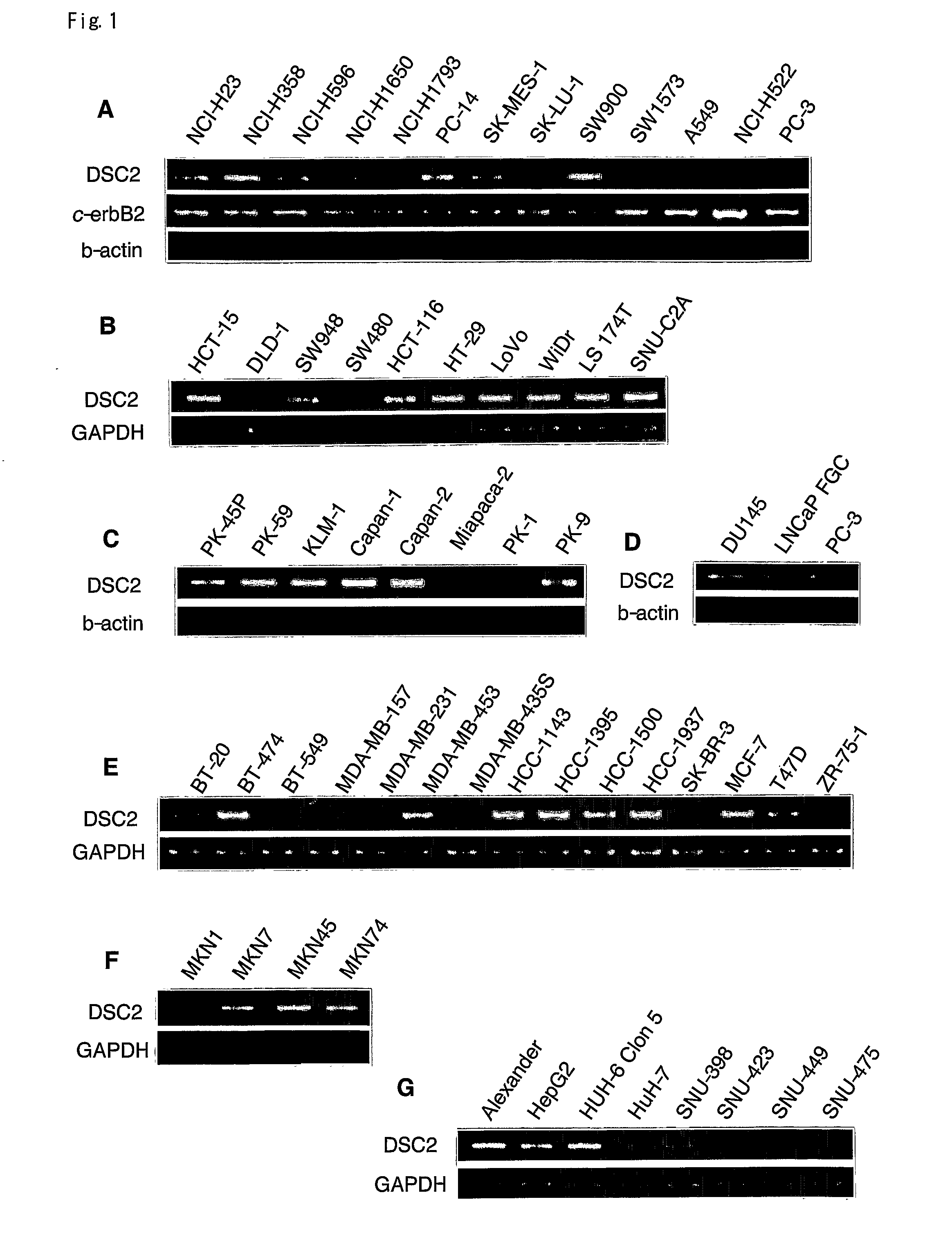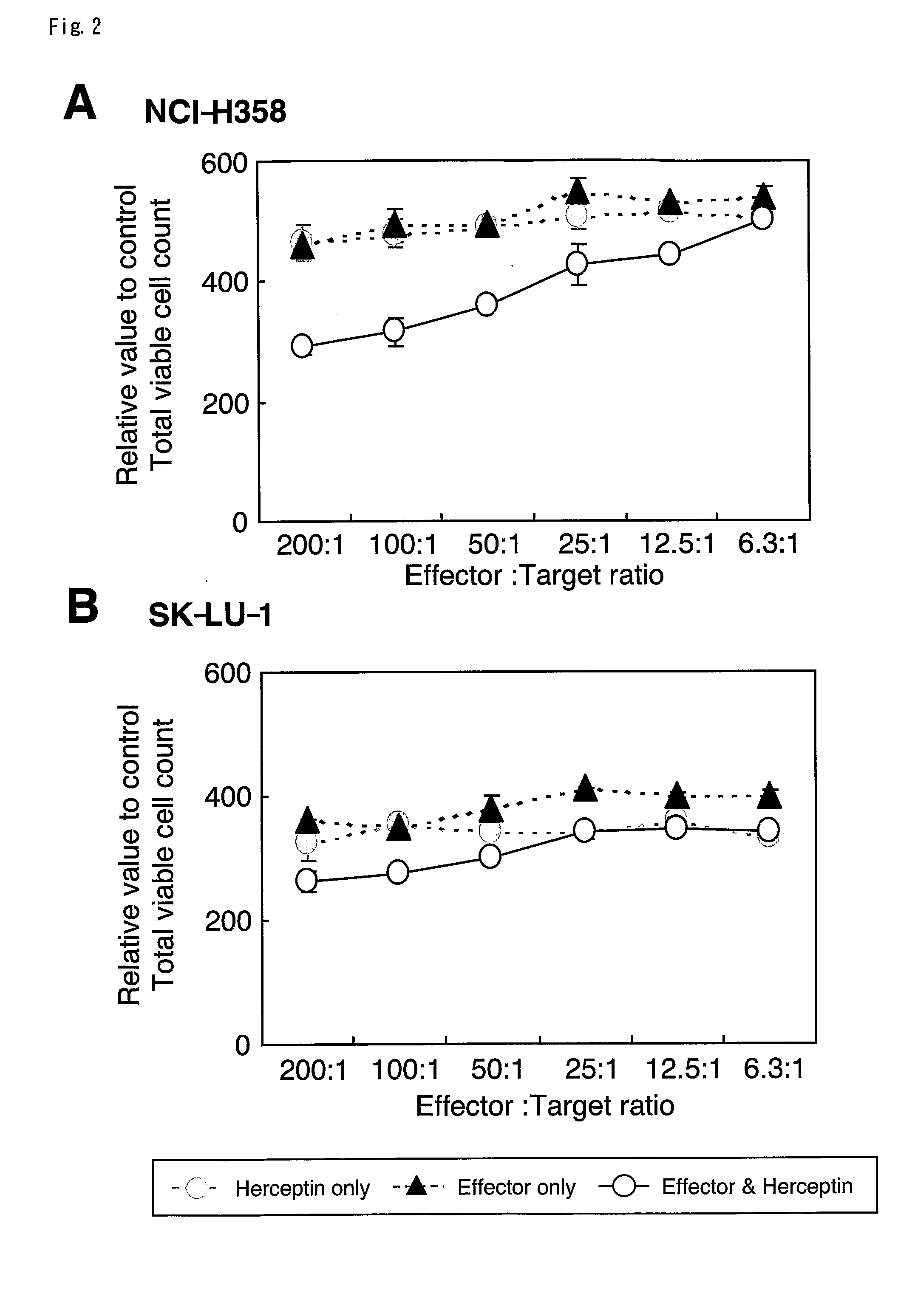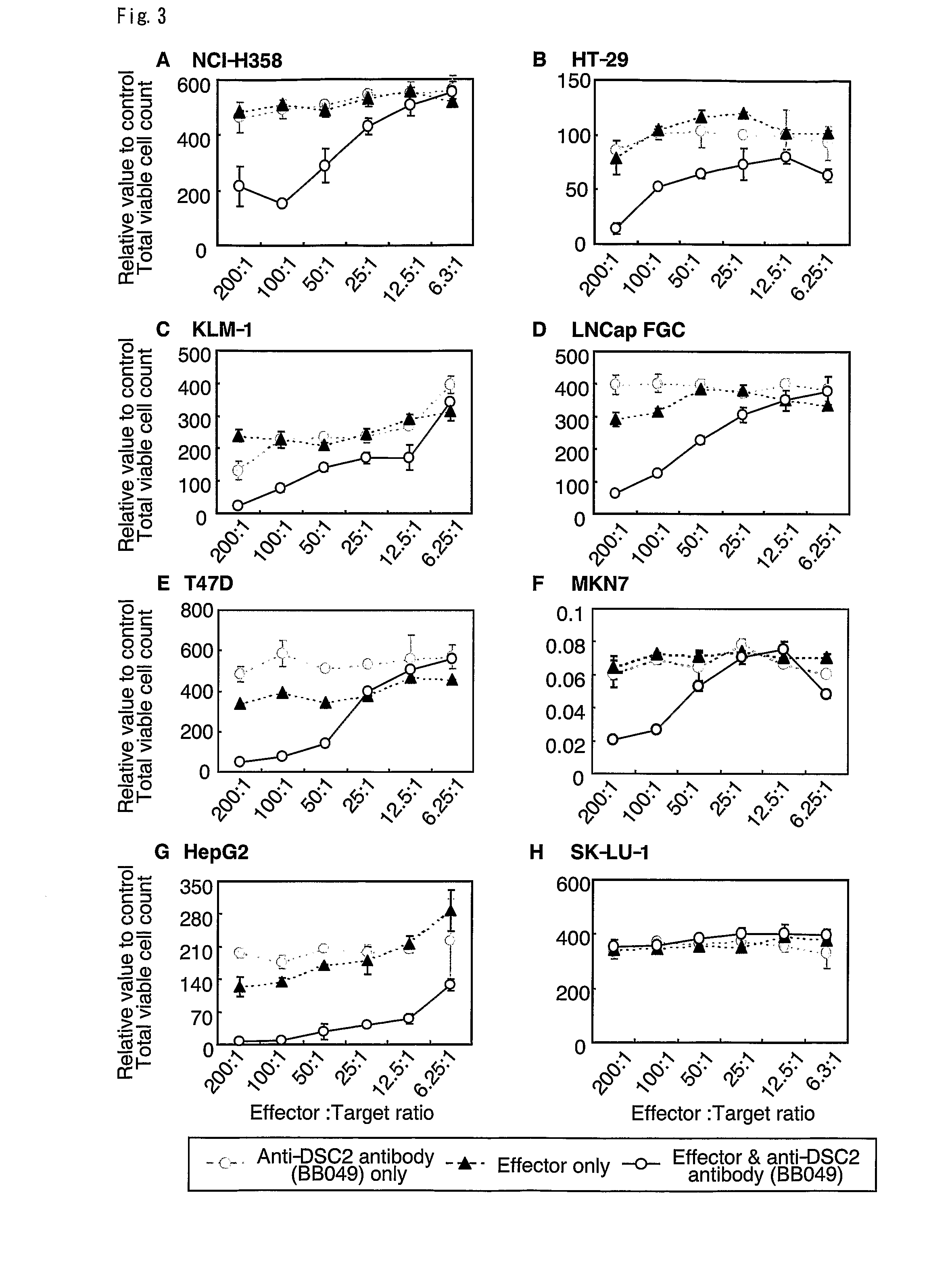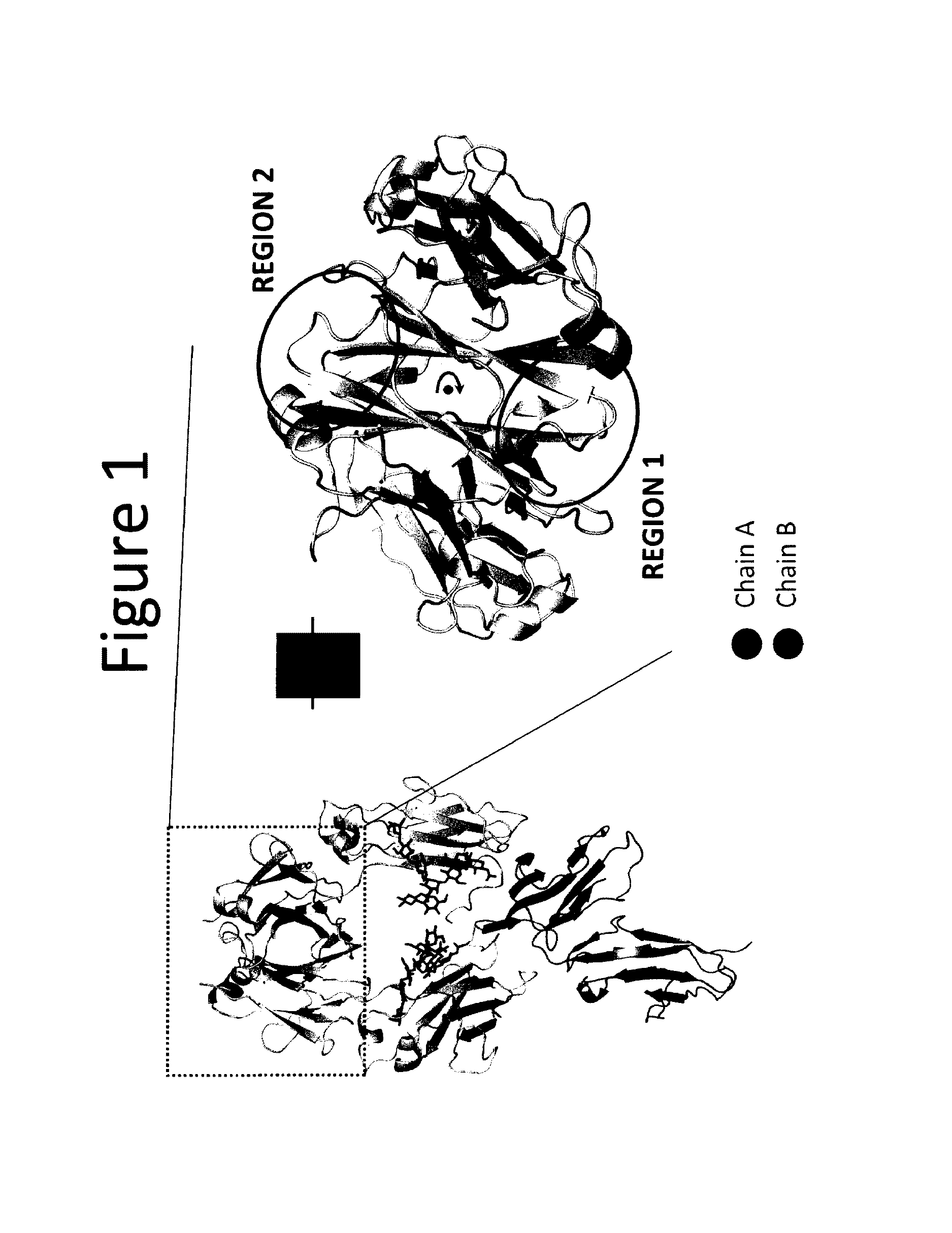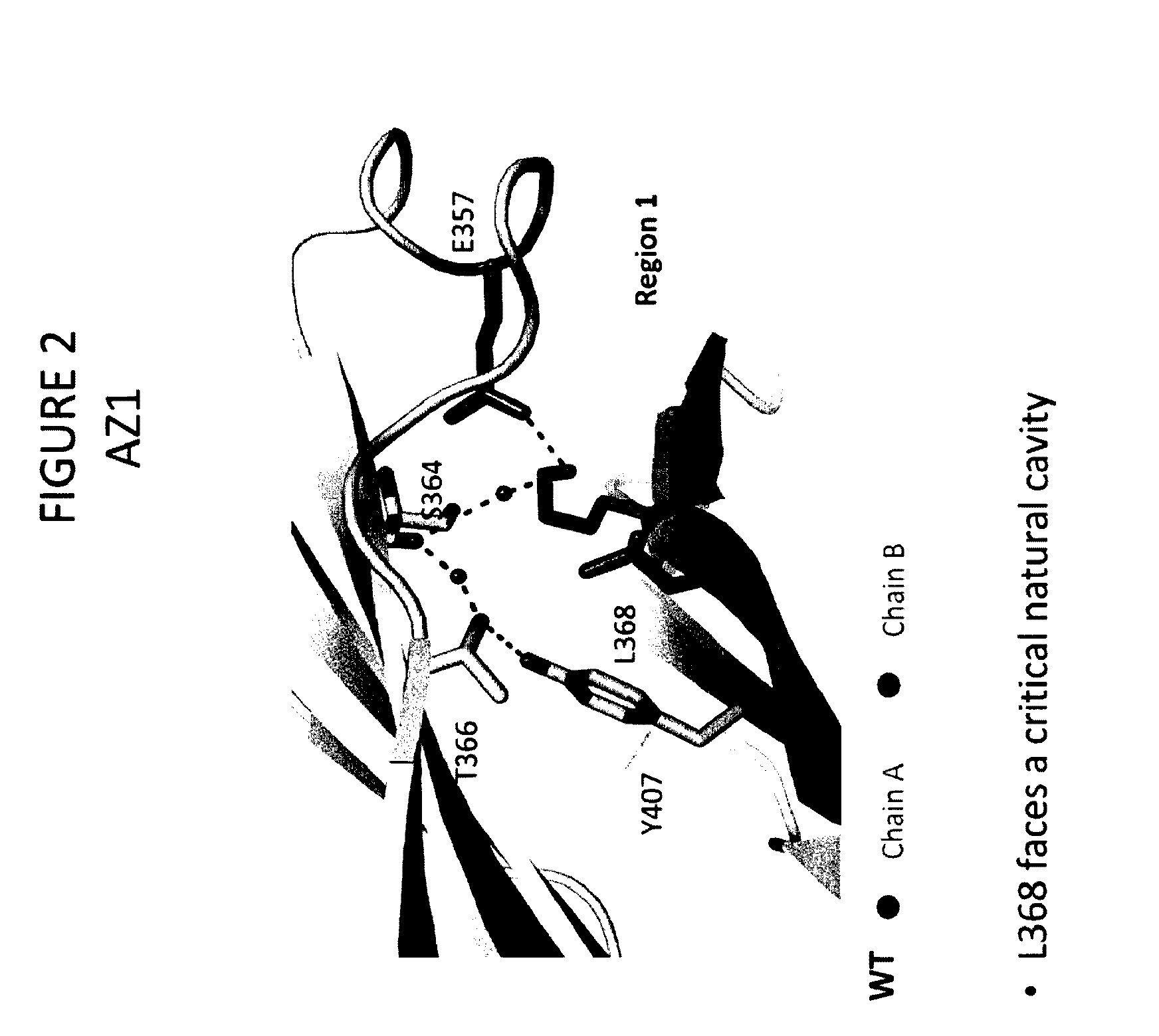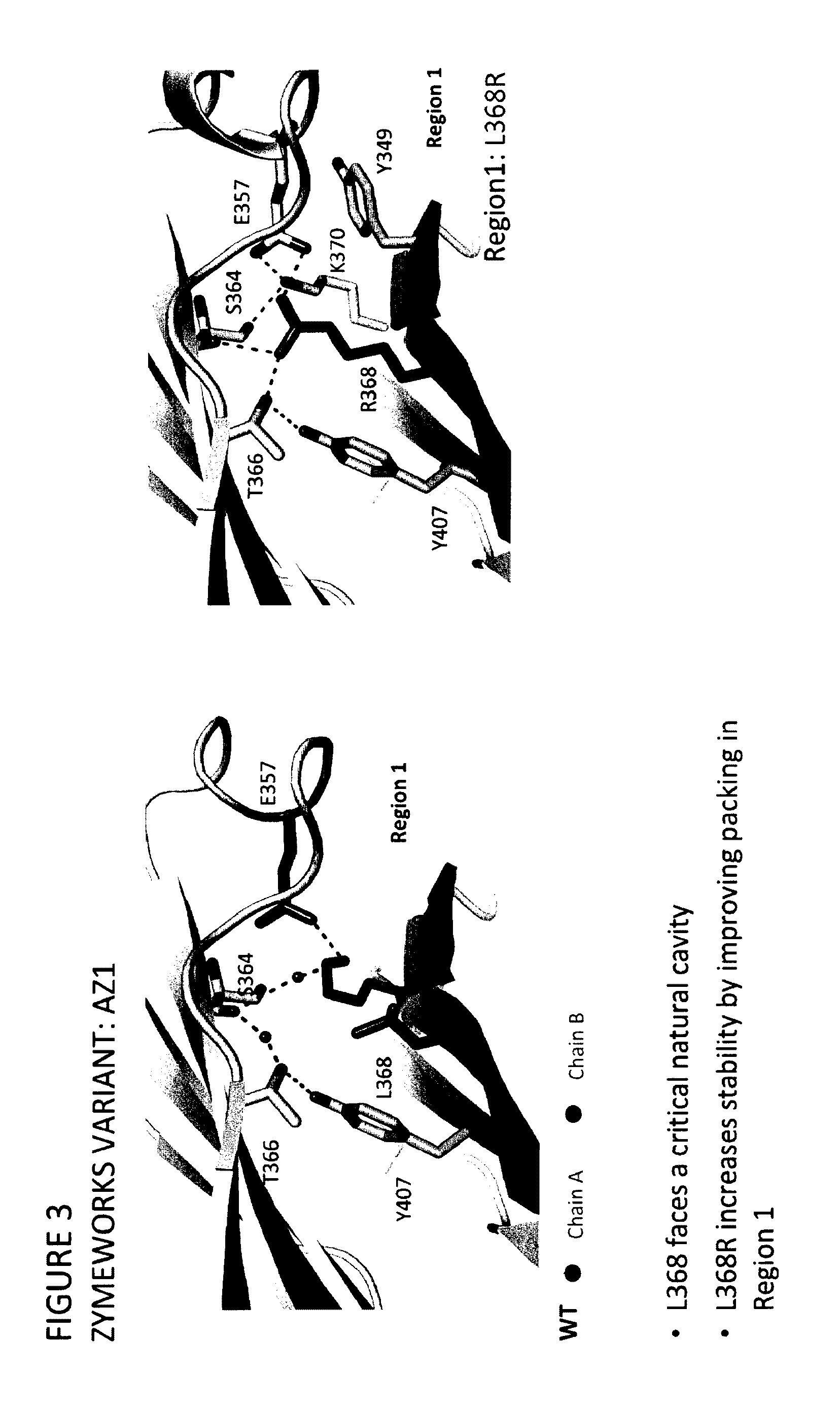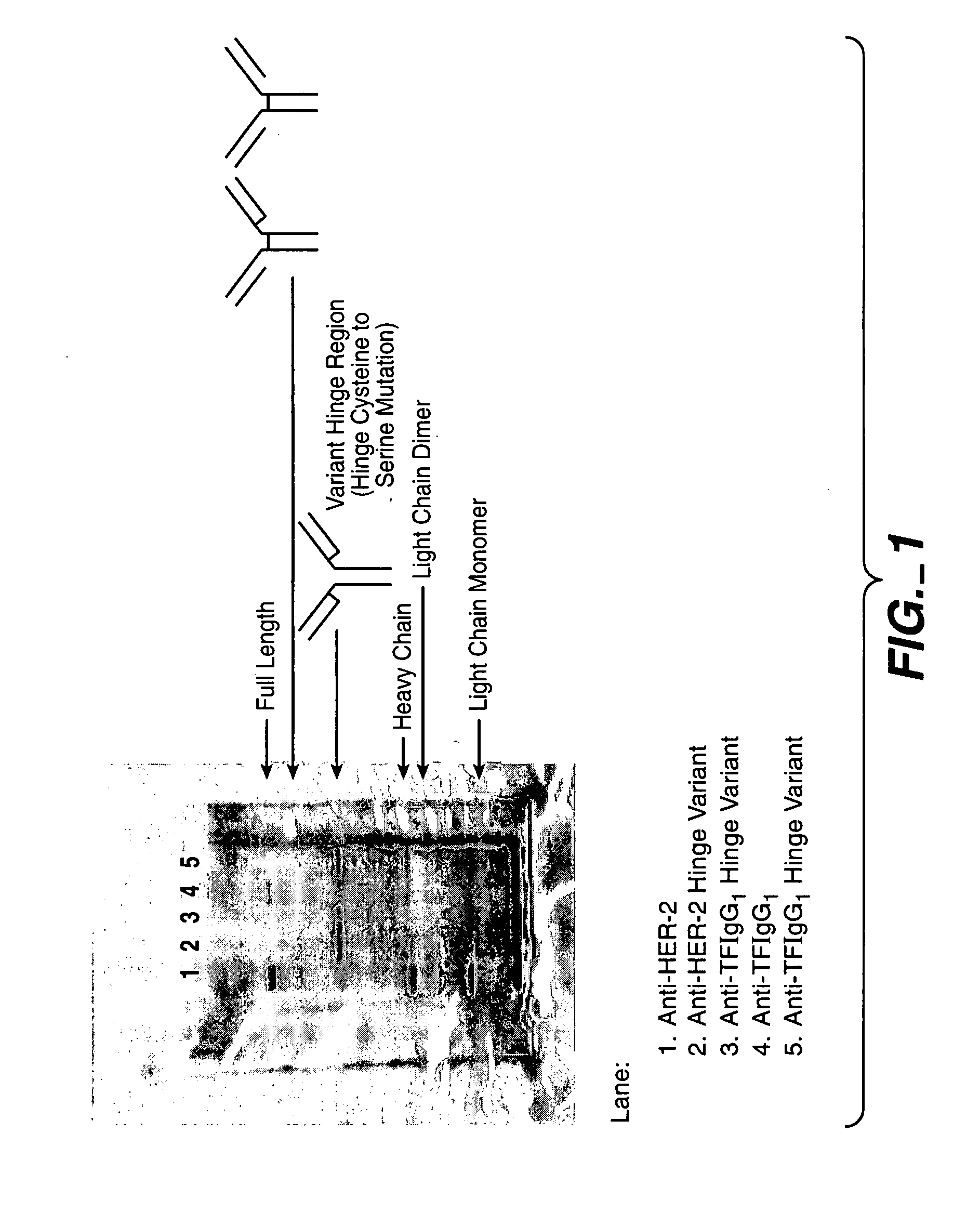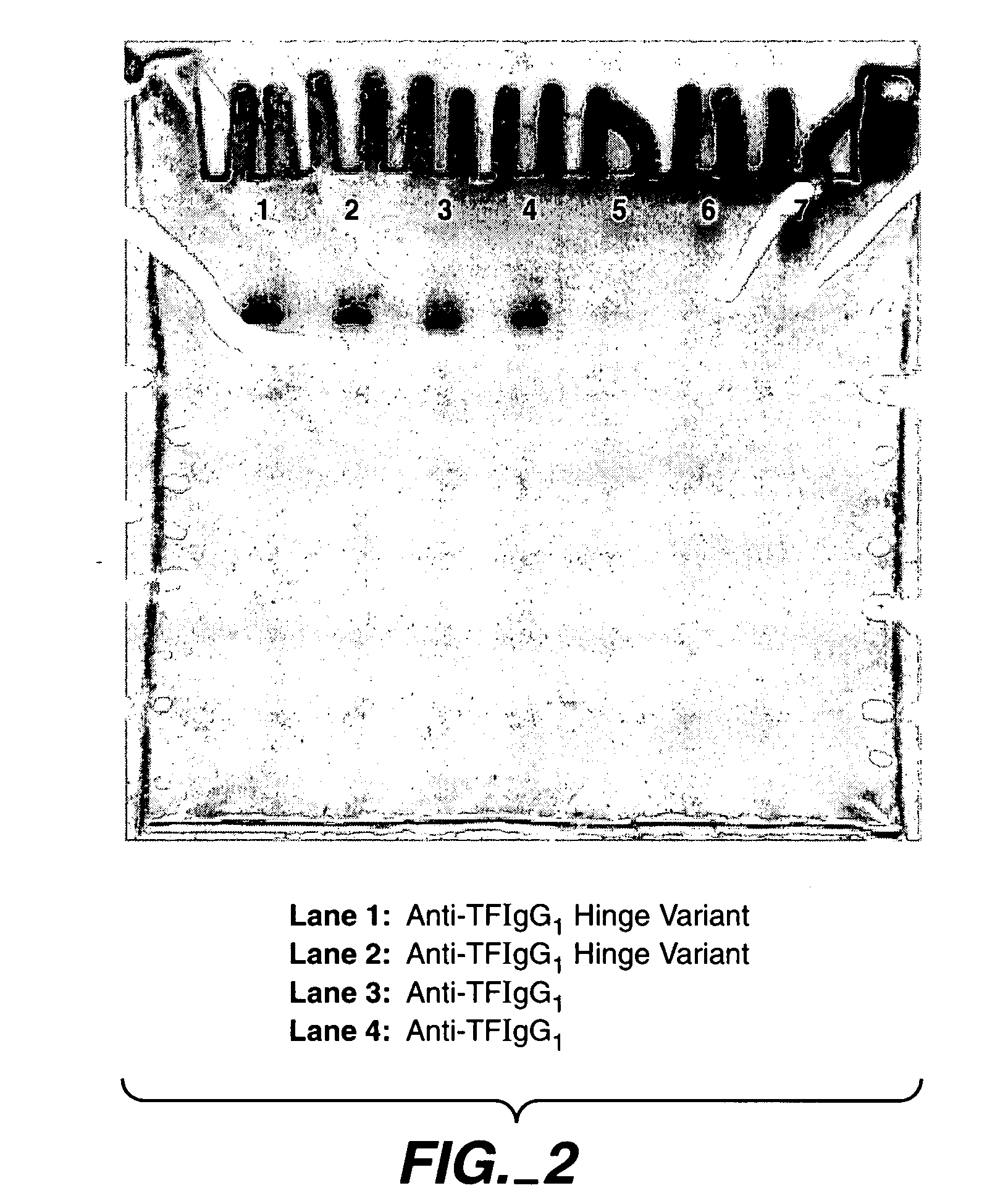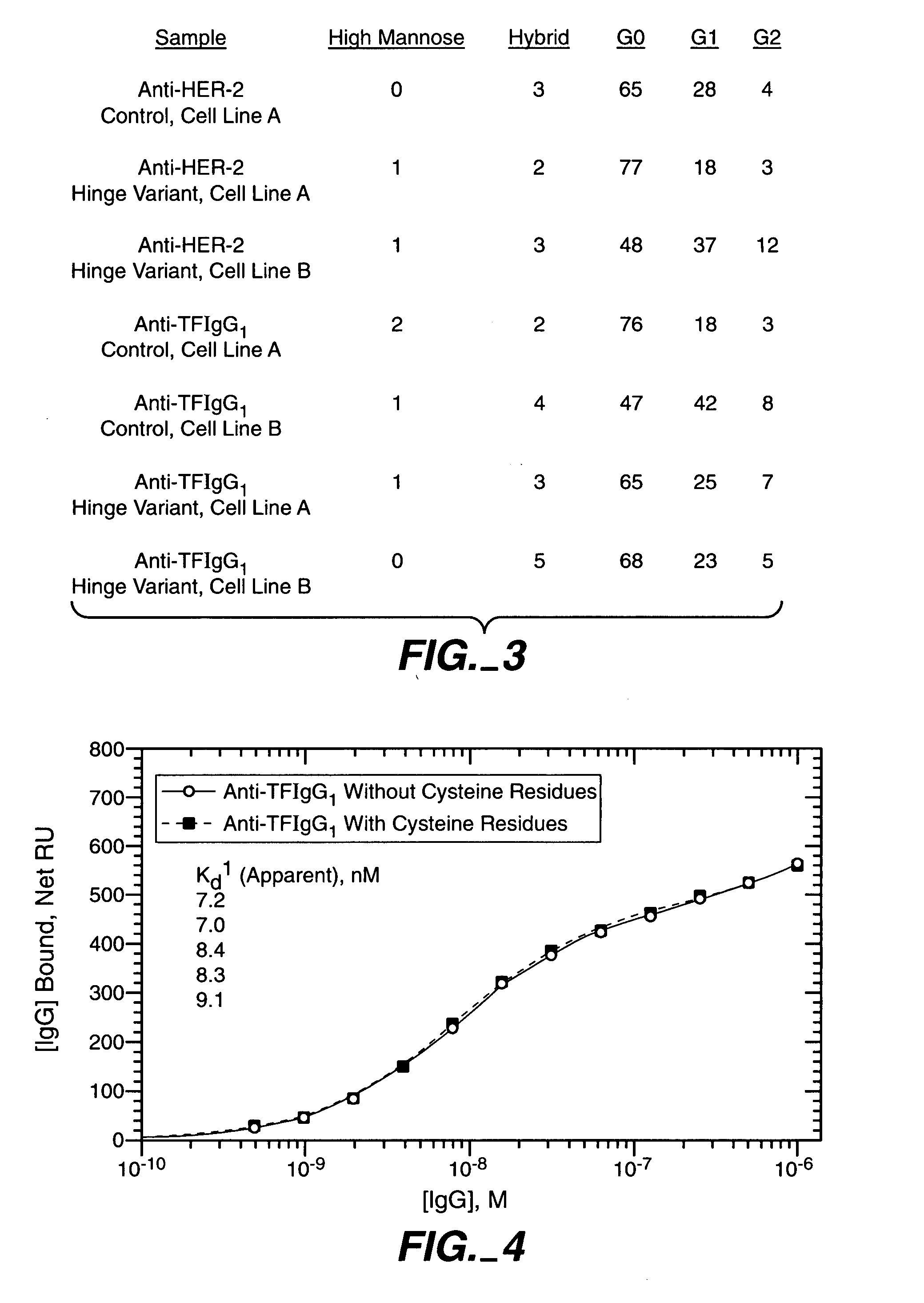Patents
Literature
164 results about "Effector functions" patented technology
Efficacy Topic
Property
Owner
Technical Advancement
Application Domain
Technology Topic
Technology Field Word
Patent Country/Region
Patent Type
Patent Status
Application Year
Inventor
Supplement. In biochemistry, an effector is that molecule that binds to a specific protein, and regulates the latter's biological activity. An effector molecule acts as a ligand that is capable of increasing or decreasing the activity of that protein. It can also regulate the activity of certain mRNA molecules (e.g.
Antigen binding molecules with increased Fc receptor binding affinity and effector function
The present invention relates to antigen binding molecules (ABMs). In particular embodiments, the present invention relates to recombinant monoclonal antibodies, including chimeric, primatized or humanized antibodies specific for human CD20. In addition, the present invention relates to nucleic acid molecules encoding such ABMs, and vectors and host cells comprising such nucleic acid molecules. The invention further relates to methods for producing the ABMs of the invention, and to methods of using these ABMs in treatment of disease. In addition, the present invention relates to ABMs with modified glycosylation having improved therapeutic properties, including antibodies with increased Fc receptor binding and increased effector function.
Owner:ROCHE GLYCART AG
Polypeptide variants with altered effector function
The present invention concerns polypeptides comprising a variant Fc region. More particularly, the present invention concerns Fc region-containing polypeptides that have altered effector function as a consequence of one or more amino acid modifications in the Fc region thereof.
Owner:GENENTECH INC
Stable Heterodimeric Antibody Design with Mutations in the Fc Domain
ActiveUS20130195849A1Improve stabilityHybrid immunoglobulinsImmunological disordersFc(alpha) receptorFc receptor
The provided scaffolds have heavy chains that are asymmetric in the various domains (e.g. CH2 and CH3) to accomplish selectivity between the various Fc receptors involved in modulating effector function, beyond those achievable with a natural homodimeric (symmetric) Fc molecule, and increased stability and purity of the resulting variant Fc heterodimers. These novel molecules comprise complexes of heterogeneous components designed to alter the natural way antibodies behave and that find use in therapeutics.
Owner:ZYMEWORKS INC
Polypeptide variants with altered effector function
InactiveUS20060067930A1High affinity bindingWeaker binding affinityCompound screeningNervous disorderEffector functionsMolecular biology
The invention provides polypeptides having IgG Fc regions with amino acid modifications that result in the polypeptides exhibiting altered Fc effector functions.
Owner:GENENTECH INC
Polypeptide variants with altered effector function
InactiveUS7183387B1Improve bindingAltered affinityAntibody mimetics/scaffoldsImmunoglobulins against growth factorsAmino acidEffector functions
Owner:GENENTECH INC
Antibodies with altered effector functions
InactiveUS20050152894A1Good curative effectEffectively treating said mammalAntibacterial agentsSenses disorderDiseaseEffector functions
The invention provides antibodies with altered effector functions, and methods of using these antibodies in the treatment of various diseases. The invention further provides compositions, kits and articles of manufacture for practicing methods of the invention.
Owner:GENENTECH INC
Variant IgG3 Rituxan and therapeutic use thereof
InactiveUS20020128448A1Prevent and reduce proliferation of cellReduce and prevent proliferationImmunoglobulins against cell receptors/antigens/surface-determinantsAntibody ingredientsCD20Antigen binding
Monoclonal anti-human CD20 antigen binding antibodies containing human IgG3 constant domains are provided. These antibodies possess effector functions that render them well suited for use in therapeutic methods, especially treatments wherein inhibition of B cell function or B cell number is therapeutically desirable.
Owner:BIOGEN INC
Antibodies comprising chimeric constant domains
ActiveUS20140243504A1Reduced effector functionAnimal cellsHybrid immunoglobulinsFc(alpha) receptorFc receptor
Antibodies, antigen-binding proteins and Fc-fusion proteins that comprise recombinant polypeptides containing a chimeric heavy chain constant region sequence are provided that bind to certain Fc receptors however have reduced effector functions. Methods of making constructs for expression of such chimeric Fc-containing antibodies, antigen-binding proteins and Fc-fusion proteins in cell systems, and methods of producing and isolating the chimeric Fc-containing proteins are provided.
Owner:REGENERON PHARM INC
Methods and Antibody Compositions for Tumor Treatment
ActiveUS20150266966A1Decreased killing of T-cellsReduce the burden onImmunoglobulins against cell receptors/antigens/surface-determinantsAntibody ingredientsDiseaseCD20
The present invention provides bispecific antibodies that bind to CD3 and tumor antigens and methods of using the same. According to certain embodiments, the bispecific antibodies of the invention exhibit reduced effector functions and have a unique binding profile with regard to Fcγ receptors. The bispecific antibodies are engineered to efficiently induce T cell-mediated killing of tumor cells. According to certain embodiments, the present invention provides bispecific antigen-binding molecules comprising a first antigen-binding domain that specifically binds human CD3, a second antigen-binding molecule that specifically binds human CD20, and an Fc domain that binds Fcγ receptors with a specific binding pattern. In certain embodiments, the bispecific antigen-binding molecules of the present invention are capable of inhibiting the growth of B-cell or melanoma tumors expressing CD20. The bispecific antibodies of the invention are useful for the treatment of various cancers as well as other CD20-related diseases and disorders.
Owner:REGENERON PHARM INC
Stabilized fc polypeptides with reduced effector function and methods of use
Owner:BIOGEN MA INC
Humanized Fc.gamma.RIIB-Specific Antibodies and Methods of Use Thereof
InactiveUS20080044417A1Good curative effectEnhanced effector functionDisease diagnosisTissue cultureFc(alpha) receptorFc receptor
The present invention relates to humanized FcγRIIB antibodies, fragments, and variants thereof that bind human FcγRIIB with a greater affinity than said antibody binds FcγRIIA. The invention encompasses the use of the humanized antibodies of the invention for the treatment of any disease related to loss of balance of Fc receptor mediated signaling, such as cancer, autoimmune and inflammatory disease. The invention provides methods of enhancing the therapeutic effect of therapeutic antibodies by administering the humanized antibodies of the invention to enhance the effector function of the therapeutic antibodies. The invention also provides methods of enhancing the efficacy of a vaccine composition by administering the humanized antibodies of the invention. The invention encompasses methods for treating an autoimmune disease and methods for elimination of cancer cells that express FcγRIIB.
Owner:MACROGENICS INC
Optimized antibodies that target cd19
The present invention describes antibodies that target CD19, wherein the antibodies comprise at least one modification relative to a parent antibody, wherein the modification alters affinity to an FcγR or alters effector function as compared to the parent antibody. Also disclosed are methods of using the antibodies of the invention.
Owner:XENCOR INC
Binding proteins comprising immunoglobulin hinge and fc regions having altered fc effector functions
Provided herein are binding proteins comprising one or more immunoglobulin Fc region hinge, CH2, and / or CH3 domain wherein one or more hinge and / or constant region CH2 and / or CH3 domain is modified to alter the binding protein's binding affinity and / or specificity for a cognate receptor (e.g., an Fc receptor) and / or to impart one or more new binding specificity(ies) to the hinge and / or constant region that the corresponding unmodified immunoglobulin does not possess (e.g., affinity for distinct class of cognate receptor distinct from the class of cognate receptor to which the unmodified binding protein specifically binds). Binding proteins according to the present invention include, for example, modified antibodies, antibody fragments, recombinant binding proteins, and molecularly engineered binding domain-immunoglobulin fusion proteins, including small modular immunopharmaceutical products (SMIP™ products).
Owner:TRUBION PHARM INC
Antibodies having altered effector function and methods for making the same
ActiveUS20070048300A1Reduce bindingReduce effector functionAntipyreticAntiviralsAntibodyGlycosylation
The invention provides a method of producing aglycosylated Fc-containing polypeptides, such as antibodies, having desired effector function. The invention also provides aglycosylated antibodies produced according to the method as well as methods of using such antibodies as therapeutics.
Owner:BIOGEN IDEC MA INC
Antibodies comprising chimeric constant domains
ActiveUS9359437B2Hybrid immunoglobulinsImmunoglobulins against cell receptors/antigens/surface-determinantsFc(alpha) receptorFc receptor
Owner:REGENERON PHARM INC
Fc Region-Containing Polypeptides That Exhibit Improved Effector Function Due To Alterations Of The Extent Of Fucosylation, And Methods For Their Use
ActiveUS20120219551A1Enhanced antibody effector functionGood curative effectImmunoglobulins against cell receptors/antigens/surface-determinantsAntibody ingredientsEffector cellEffector functions
The present invention relates to Fc region-containing polypeptides that exhibit improved effector function due to alterations of the extent of fucosylation, and to methods of using such polypeptides for treating or preventing cancer and other diseases. The Fc region-containing polypeptides of the present invention are preferably immunoglobulins (e.g., antibodies), in which the Fc region comprises at least one amino acid substitution relative to the corresponding amino acid sequence of a wild type Fc region, and which is sufficient to attenuate post-translational fucosylation and mediate improved binding to an activating Fc receptor and reduced binding to an inhibitory Fc receptor. The methods of the invention are particularly useful in preventing, treating, or ameliorating one or more symptoms associated with a disease, disorder, or infection where either an enhanced efficacy of effector cell function mediated by FcγR is desired (e.g., cancer, infectious disease) or an inhibited effector cell response mediated by FcγR is desired (e.g., inflammation, autoimmune disease).
Owner:MACROGENICS INC
Novel antibody therapies
Antibody capable of mediating effector function which specifically binds to a multiple membrane spanning antigen or to an antigen which forms dimers or multimers (i) for use in combination with a cholesterol-increasing agent in the treatment of a disease or disorder associated with said antigen, wherein antibody-induced effector function has a beneficial effect on said disease or disorder or (ii) for use in the treatment of such disease or disorder, wherein the antibody is to be administered to a subject undergoing therapy with a cholesterol-lowering agent, such as a statin, and wherein the subject is withdrawn from treatment with the cholesterol-lowering agent prior to the administration of the antibody. Furthermore, a kit of parts comprising such antibody as well as a cholesterol-increasing agent.
Owner:GENMAB AS
Effector function enhanced recombinant antibody composition
ActiveUS7994290B2Enhanced effector functionGood treatment effectAntibacterial agentsAntibody mimetics/scaffoldsA-DNAActive ingredient
Owner:KYOWA HAKKO KIRIN CO LTD
Integrin antagonists with enhanced antibody dependent cell-mediated cytoxicity activity
InactiveUS20060040325A1Enhance ADCCAltered binding affinityCompound screeningApoptosis detectionIntegrin antagonistComplement-dependent cytotoxicity
The present invention relates to novel Fc variants of antibodies that immunospecifically binds to Integrin αvβ3. The Fc variants comprise a variable region that immunospecifically binds to Integrin αvβ3 and a Fc region that further comprises at least one novel amino acid residue which may provide for enhanced effector function. More specifically, this invention provides Fc variants that have modified binding affinity to one or more FcγR and / or C1q. Additionally, the Fc variants have altered antibody dependent cell-mediated cytotoxicity (ADCC) and / or complement dependent cytotoxicity (CDC) activity. The invention further provides methods and protocols for the application of said Fc variants of an antibody that immunospecifically binds to Integrin αvβ3, particularly for therapeutic purposes.
Owner:MEDIMMUNE LLC
Antigen binding molecules with increased Fc receptor binding affinity and effector function
The present invention relates to antigen binding molecules (ABMs). In particular embodiments, the present invention relates to recombinant monoclonal antibodies, including chimeric, primatized or humanized antibodies specific for human CD20. In addition, the present invention relates to nucleic acid molecules encoding such ABMs, and vectors and host cells comprising such nucleic acid molecules. The invention further relates to methods for producing the ABMs of the invention, and to methods of using these ABMs in treatment of disease. In addition, the present invention relates to ABMs with modified glycosylation having improved therapeutic properties, including antibodies with increased Fc receptor binding and increased effector function.
Owner:ROCHE GLYCART AG
Immunoglobulin Fc fragment modified by non-peptide polymer and pharmaceutical composition comprising the same
ActiveUS8124094B2Enhances in vivo duration and stabilityReduced activityAntibody mimetics/scaffoldsAntiviralsHalf-lifeImmunoglobulin Fc Fragments
Disclosed are an Fc fragment modified by a non-peptide polymer, a pharmaceutical composition comprising the Fc fragment modified by the non-peptide polymer as a carrier, a complex of the Fc fragment and a drug via a linker and a pharmaceutical composition comprising such a complex. The Fc fragment modified by a non-peptide peptide according to the present invention lacks immunogenicity and effector functions. Due to these properties, the Fc fragment maintains the in vivo activity of a drug conjugated thereto in high levels, remarkably increases the serum half-life of the drug, and remarkably reduces the risk of inducing immune responses.
Owner:HANMI SCI CO LTD
Optimized ca9 antibodies and methods of using the same
InactiveUS20090162382A1Reduce the binding forceSugar derivativesImmunoglobulins against cell receptors/antigens/surface-determinantsEffector functions
The present invention describes antibodies that target CA9, wherein the antibodies comprise at least one modification relative to a parent antibody, wherein the modification alters affinity to an FcγR or alters effector function as compared to the parent antibody. Also disclosed are methods of using the antibodies of the invention.
Owner:XENCOR INC
Stable heterodimeric antibody design with mutations in the Fc domain
ActiveUS9562109B2Promote formationImprove stabilityHybrid immunoglobulinsPeptide preparation methodsFc(alpha) receptorFc receptor
The provided scaffolds have heavy chains that are asymmetric in the various domains (e.g. CH2 and CH3) to accomplish selectivity between the various Fc receptors involved in modulating effector function, beyond those achievable with a natural homodimeric (symmetric) Fc molecule, and increased stability and purity of the resulting variant Fc heterodimers. These novel molecules comprise complexes of heterogeneous components designed to alter the natural way antibodies behave and that find use in therapeutics.
Owner:ZYMEWORKS INC
Antibodies or fusion proteins multimerized via cysteine mutation and a mu tailpiece
ActiveUS20140037621A1Antibody mimetics/scaffoldsImmunoglobulins against cell receptors/antigens/surface-determinantsAntigenIgG.heavy chain
The invention provides constant regions incorporating a cysteine mutation and linked to a μ tailpiece and antibodies or fusion proteins incorporating the same. The constant regions include at least CH2 and CH3 regions of an IgG heavy chain constant region including a cysteine mutation and μ tailpiece. Antibodies or fusion proteins incorporating the constant regions gains the ability to form multivalent complexes, e.g., pentameric or hexameric structures. Antibodies or fusion proteins incorporating the constant regions also retain IgG properties including specific binding to protein G, which facilitates purification and may exhibit pH-dependent FcRn binding, which is associated with a relatively long in vivo half-life. Depending on the isotype and subtype, the nature of the antigen and presence of an additional IgG hinge domain, such antibodies or fusion proteins may also have properties of specific binding to protein A, and effector functions such as ADCC, CDC and opsonization.
Owner:JN BIOSCI
Antibody variants with enhanced complement activity
The present invention relates to novel Fc variants that comprise at least one novel amino acid residue which may provide for enhanced effector function. More specifically, this invention provides Fc variants that have modified binding affinity to one or more Fc receptor or ligand (e.g., Fc gamma R, C1q). Additionally, the Fc variants have altered complement dependent cytotoxicity (CDC) activity and / or antibody-dependent cell-mediated cytotoxicity (ADCC). The invention further provides methods and protocols for the application of said Fc variants, particularly for therapeutic purposes.
Owner:XENCOR INC
Altered polypeptides, immunoconjugates thereof, and methods related thereto
The present invention features inter alia altered binding polypeptides having engineered cysteine residues or analogs thereof at a predetermined site within, for example, a constant region domain or a portion thereof. The engineered cysteine residues or analogs thereof provide sites for conjugating effector moieties (e.g. diagnostic or therapeutic agents) that impart novel functionality to the binding polypeptide, preferably without interfering with a desirable property (e.g. an Fc-mediated effector function). The invention includes methods for the rational design of such altered polypeptides, as well as methods for modifying (ie. conjugating) the altered polypeptides with desirable effector moieties. Particular modified binding polypeptides (ie. immunoconjugates) of altered binding polypeptides and methods for utilizing such modified binding polypeptides as protein-based therapeutics are also provided.
Owner:BIOGEN IDEC MA INC
Heteromultimers with reduced or silenced effector function
ActiveUS20160102135A1Reduce the binding forceReduced effector functionNervous disorderBacteriaHinge regionProtein L
Provided herein are heteromultimer constructs with reduced or silenced effector function. In an embodiment is provided a heteromultimer construct comprising an IgG Fc construct having a first and a second Fc polypeptide, each Fc polypeptide comprising a modified lower hinge region wherein: the modified lower hinge region of said first Fc polypeptide comprises at least one amino acid modification, the modified lower hinge region of said second Fc polypeptide comprises at least one amino acid modification which is different from at least one amino acid modification of said first Fc polypeptide, and the IgG Fc construct displays reduced binding to all Fcγ receptors and to C1q protein as compared to a corresponding parent IgG Fc construct. Also provided are methods of producing such heteromultimer constructs, and methods of reducing ADCC for an antibody construct by reducing effector function.
Owner:ZYMEWORKS INC
Methods for Damaging Cells Using Effector Function of Anti-Dsc2 Antibody
InactiveUS20080260748A1RatioFunctionalOrganic active ingredientsPeptide/protein ingredientsCytotoxicityProstate cancer
The present invention is based on the discovery that the cytoxicity of anti-desmocollin 2 (DSC2) antibodies can be used for treating various cancers including lung, colon, pancreatic, prostate, breast, gastric or liver cancers. Specifically, the present invention provides antibodies against DSC2 that have effector function. Furthermore, the present invention provides methods and pharmaceutical compositions that comprise anti-DSC2 antibody as an active ingredient for damaging DSC2-expressing cells via the effector function of the antibody.
Owner:ONCOTHERAPY SCI INC
Stable heterodimeric antibody design with mutations in the Fc domain
ActiveUS9574010B2Hybrid immunoglobulinsImmunoglobulins against cell receptors/antigens/surface-determinantsFc receptorHeavy chain
Owner:ZYMEWORKS INC
Antibodies with altered effector functions
InactiveUS20070269371A1Effectively treating said mammalEffective treatmentSenses disorderNervous disorderDiseaseEffector functions
The invention provides antibodies with altered effector functions, and methods of using these antibodies in the treatment of various diseases. The invention further provides compositions, kits and articles of manufacture for practicing methods of the invention.
Owner:GENENTECH INC
Features
- R&D
- Intellectual Property
- Life Sciences
- Materials
- Tech Scout
Why Patsnap Eureka
- Unparalleled Data Quality
- Higher Quality Content
- 60% Fewer Hallucinations
Social media
Patsnap Eureka Blog
Learn More Browse by: Latest US Patents, China's latest patents, Technical Efficacy Thesaurus, Application Domain, Technology Topic, Popular Technical Reports.
© 2025 PatSnap. All rights reserved.Legal|Privacy policy|Modern Slavery Act Transparency Statement|Sitemap|About US| Contact US: help@patsnap.com
